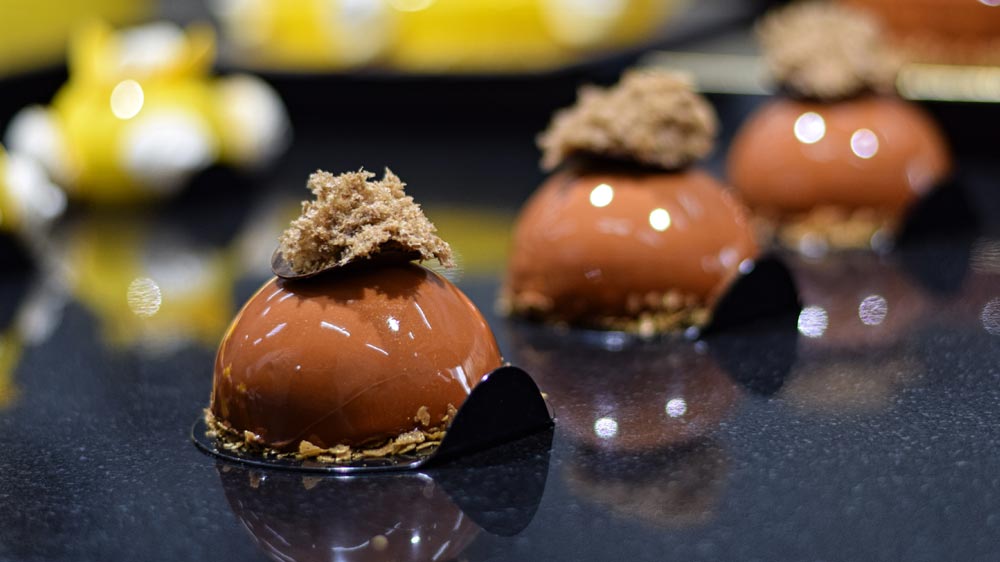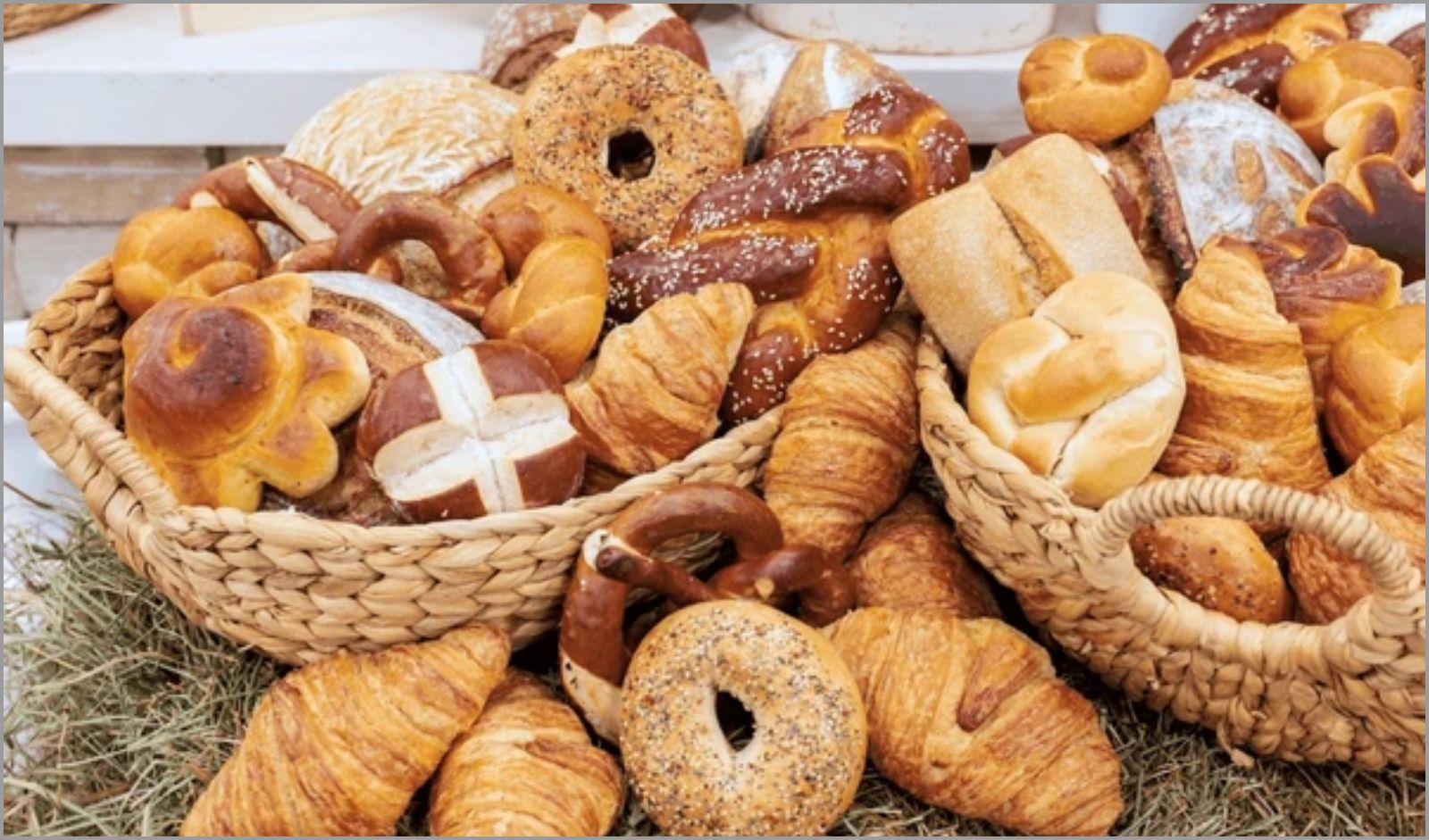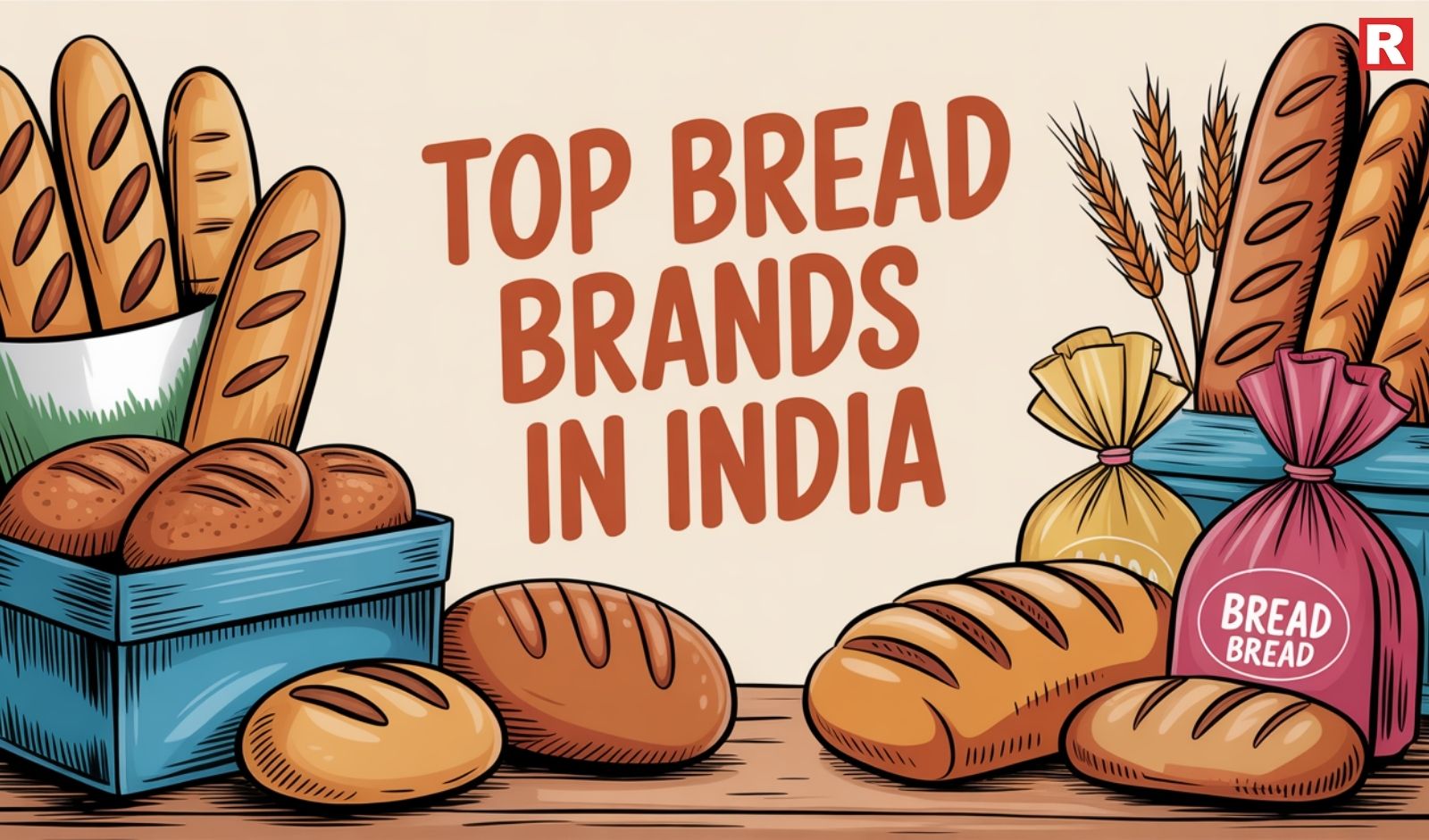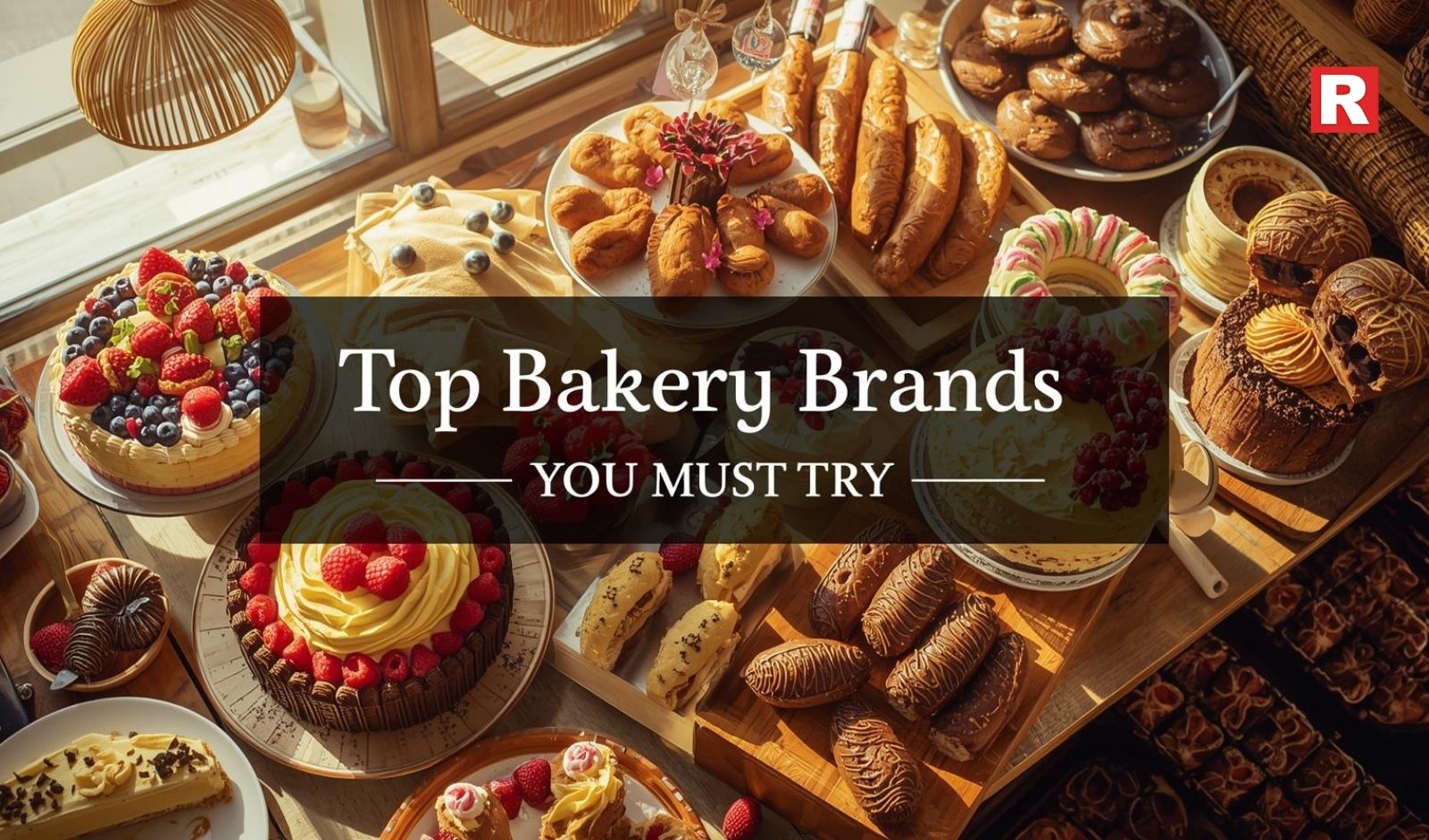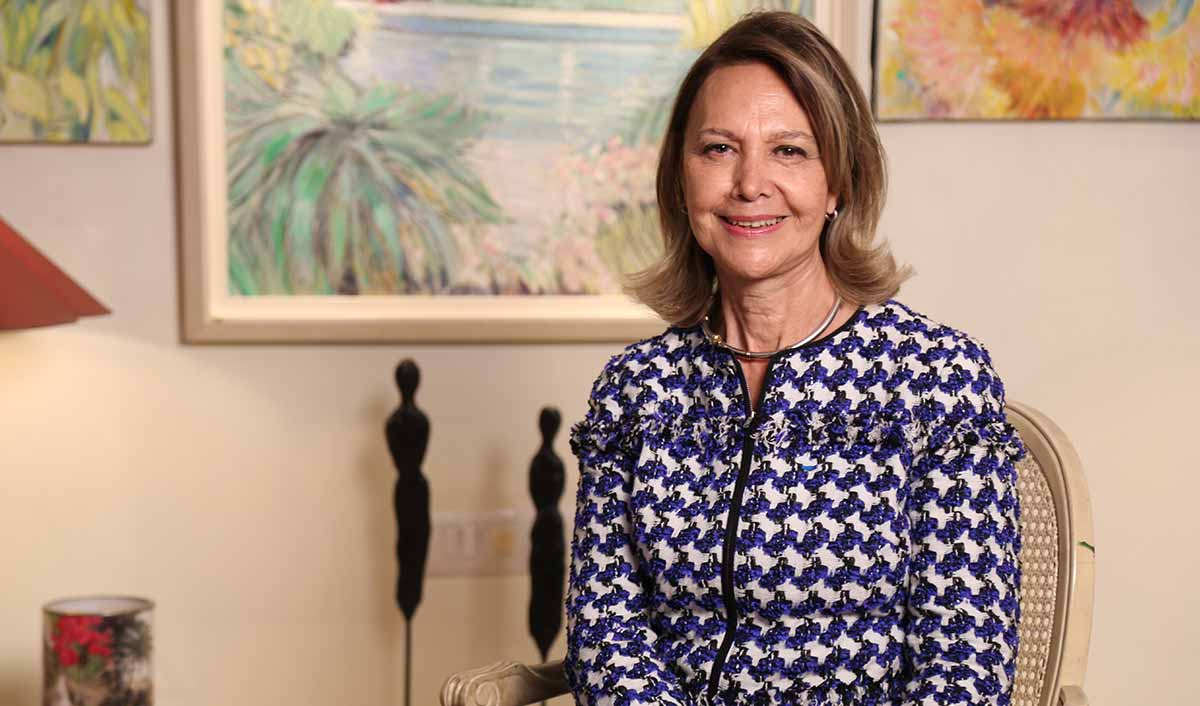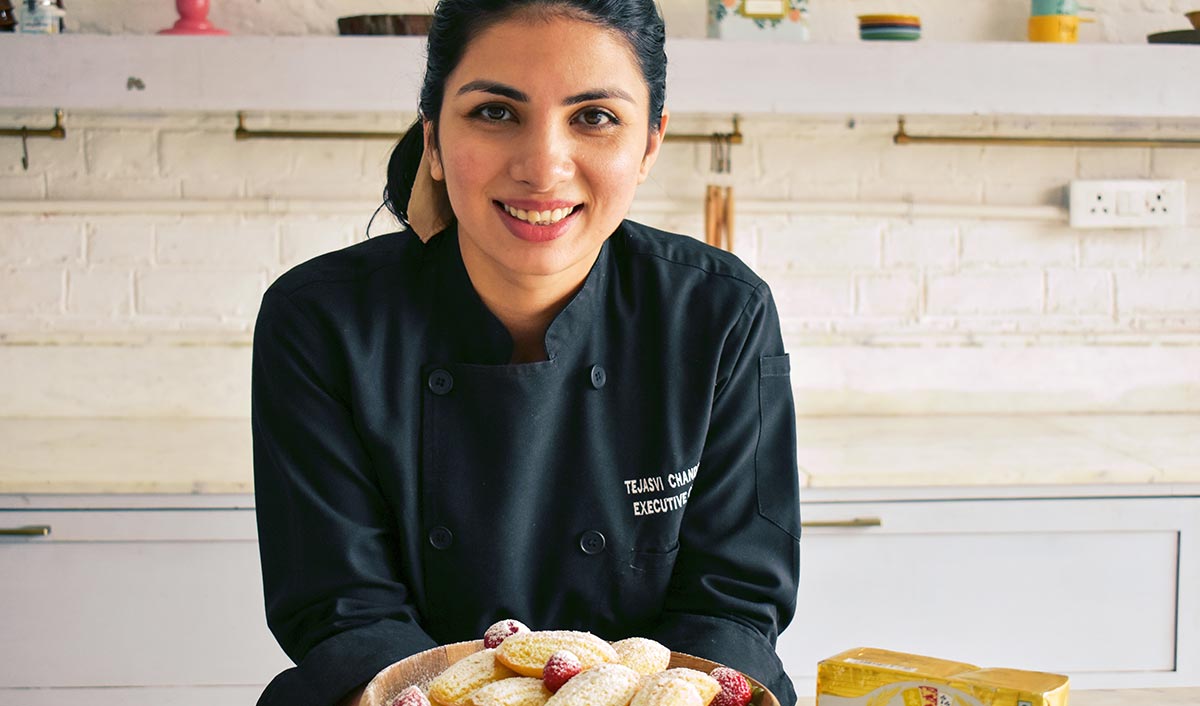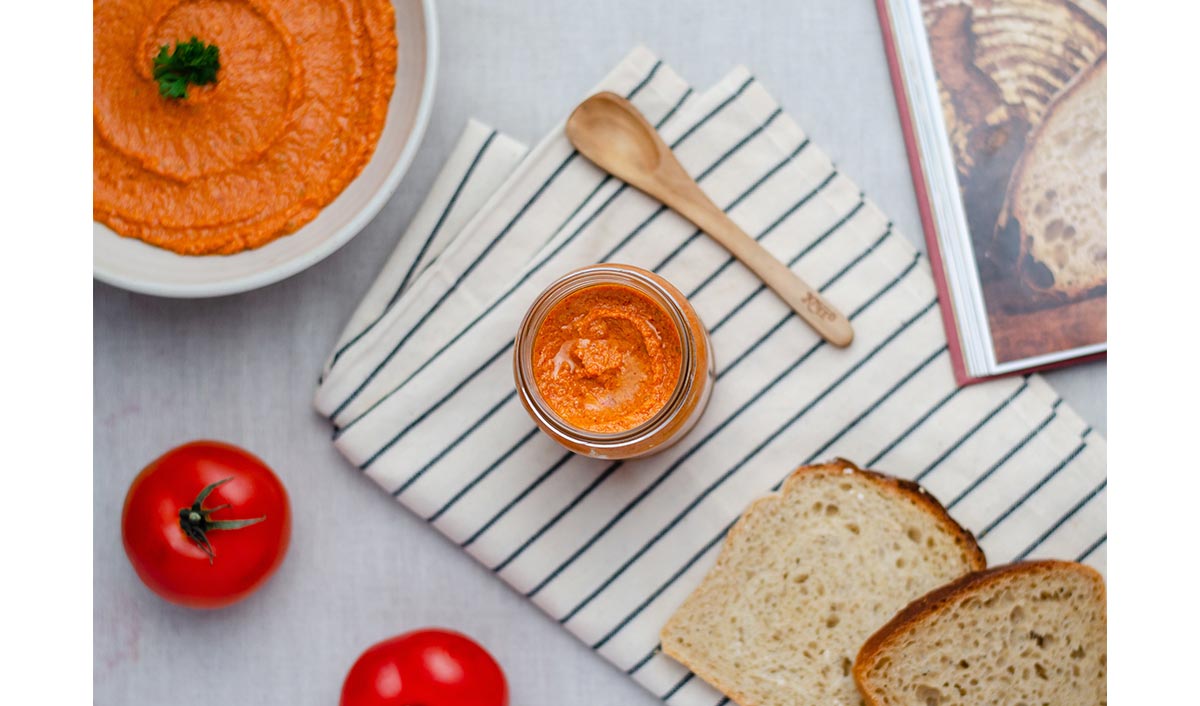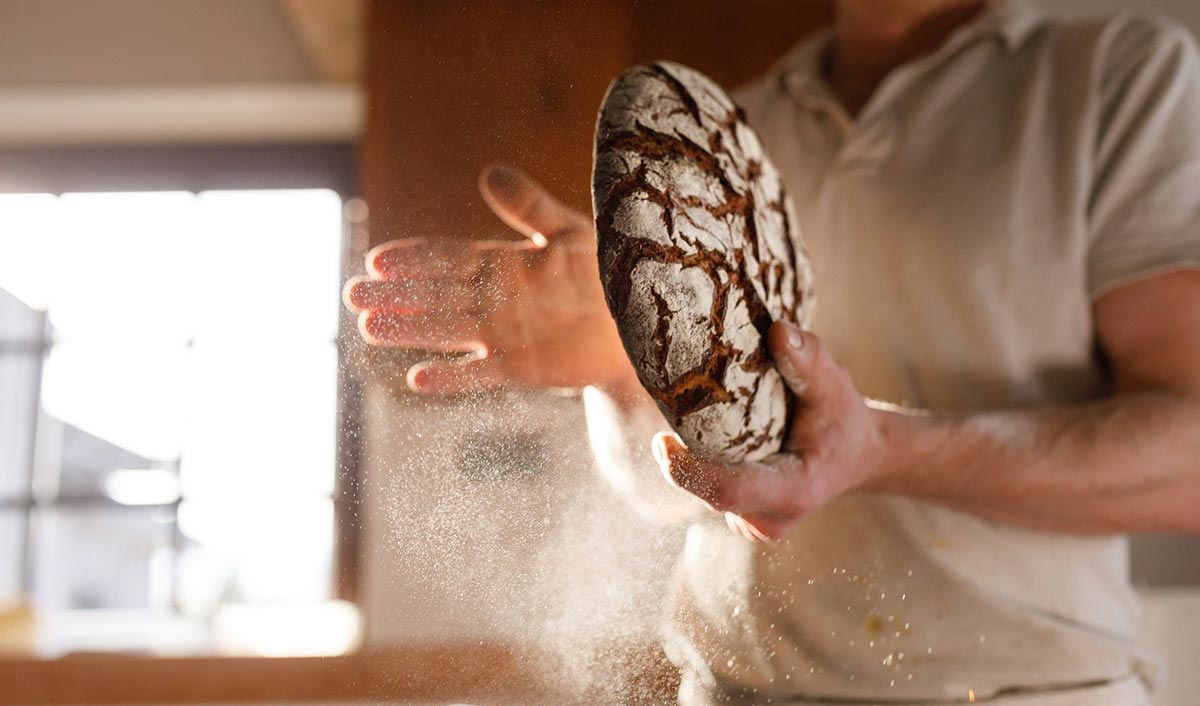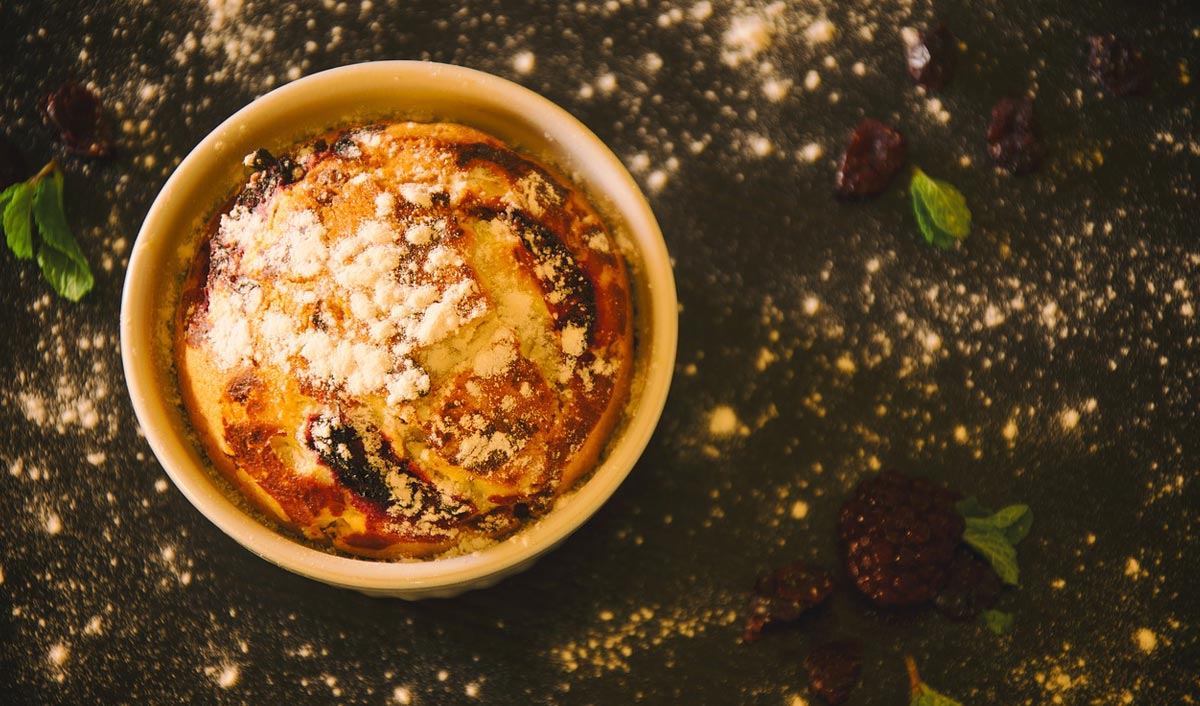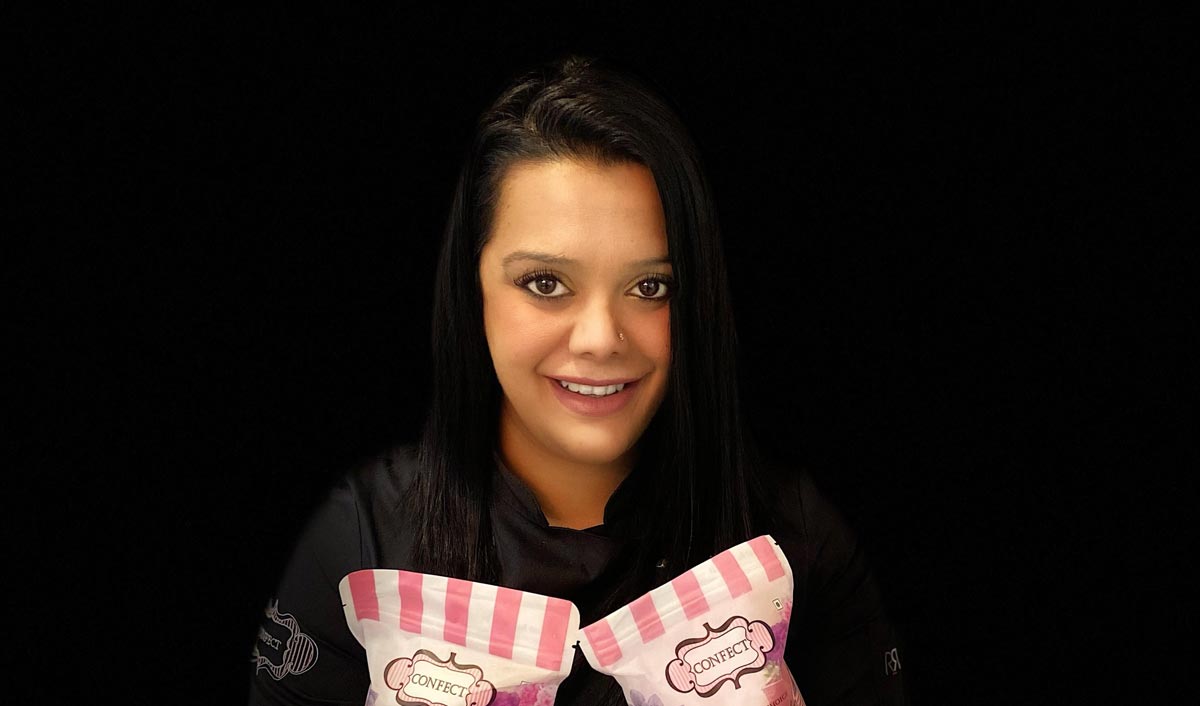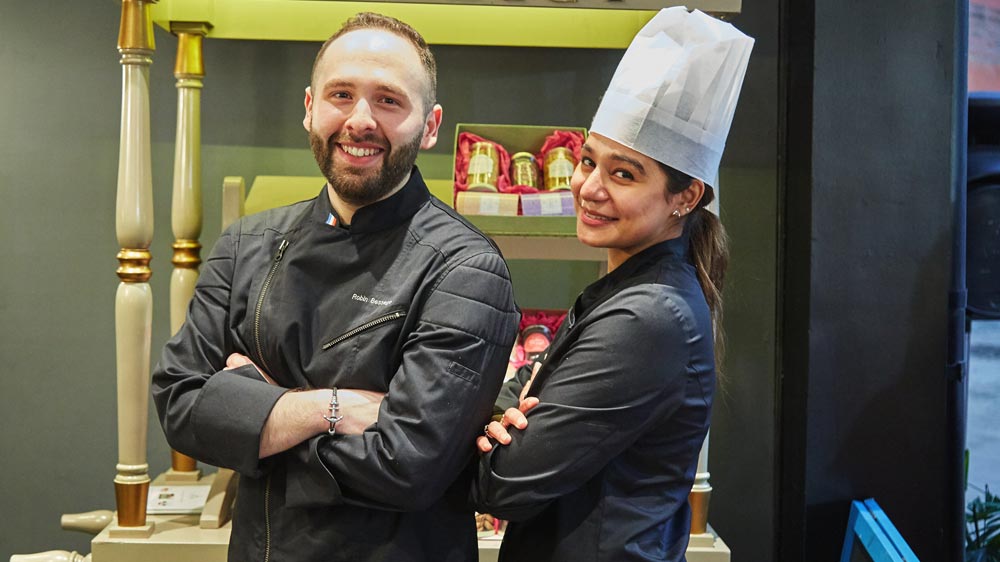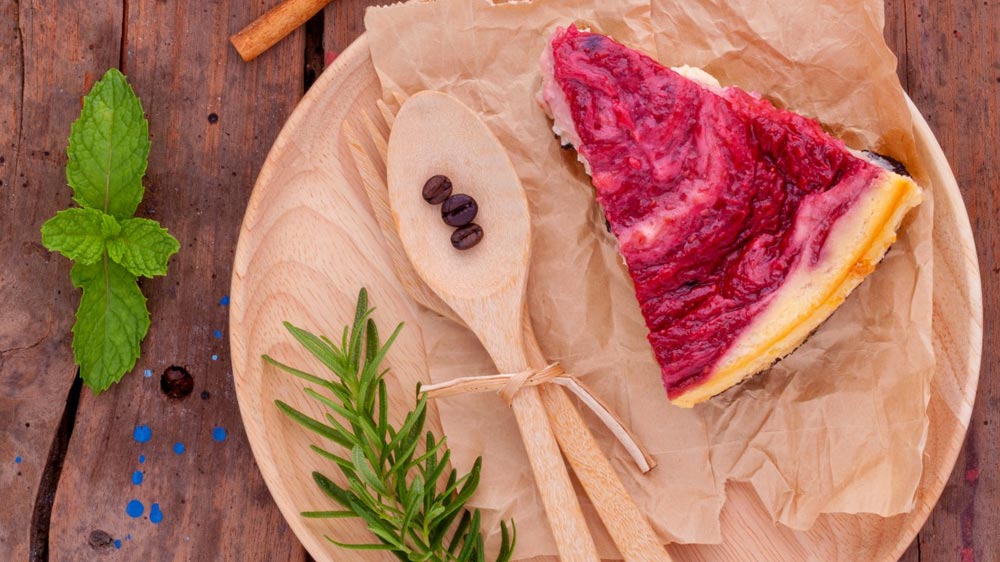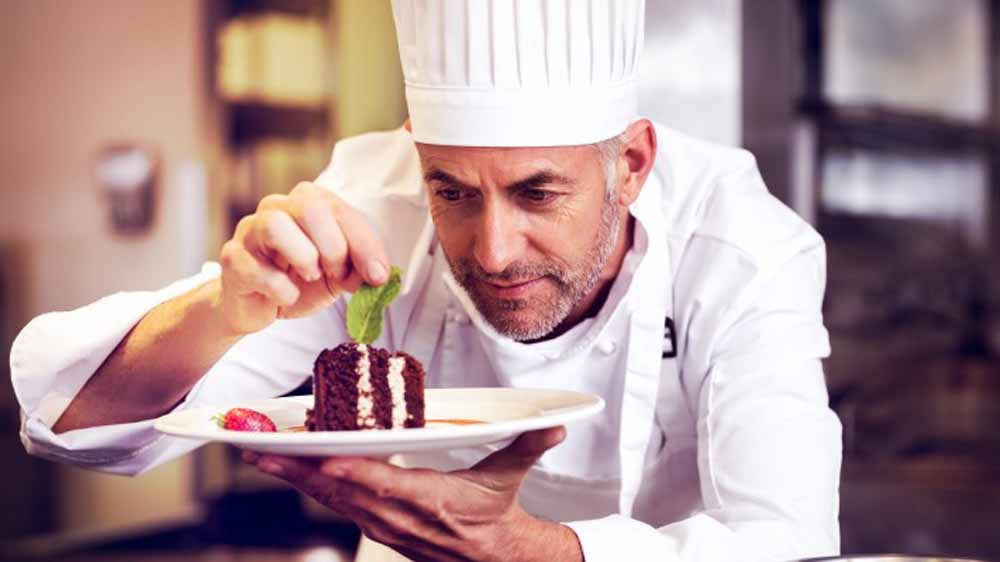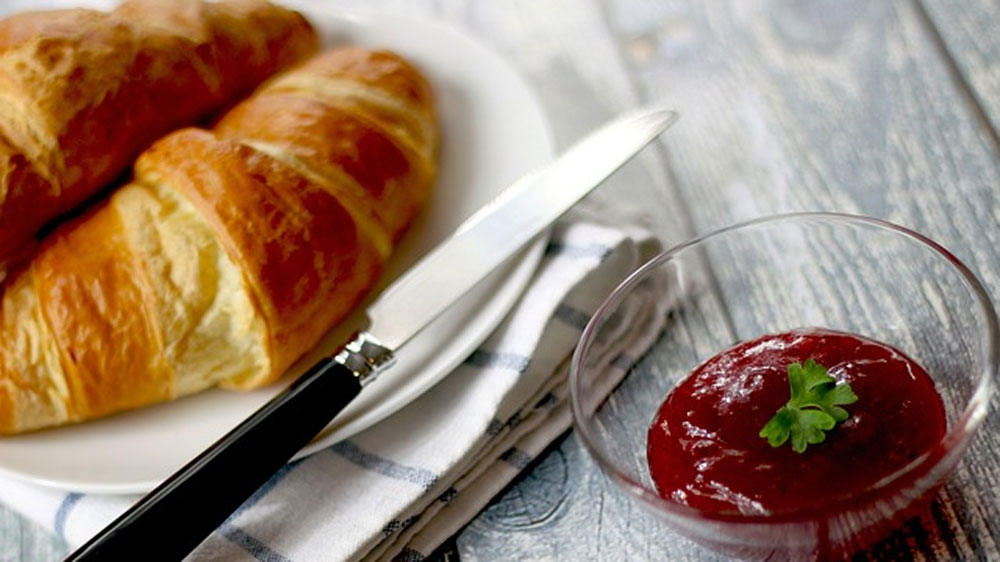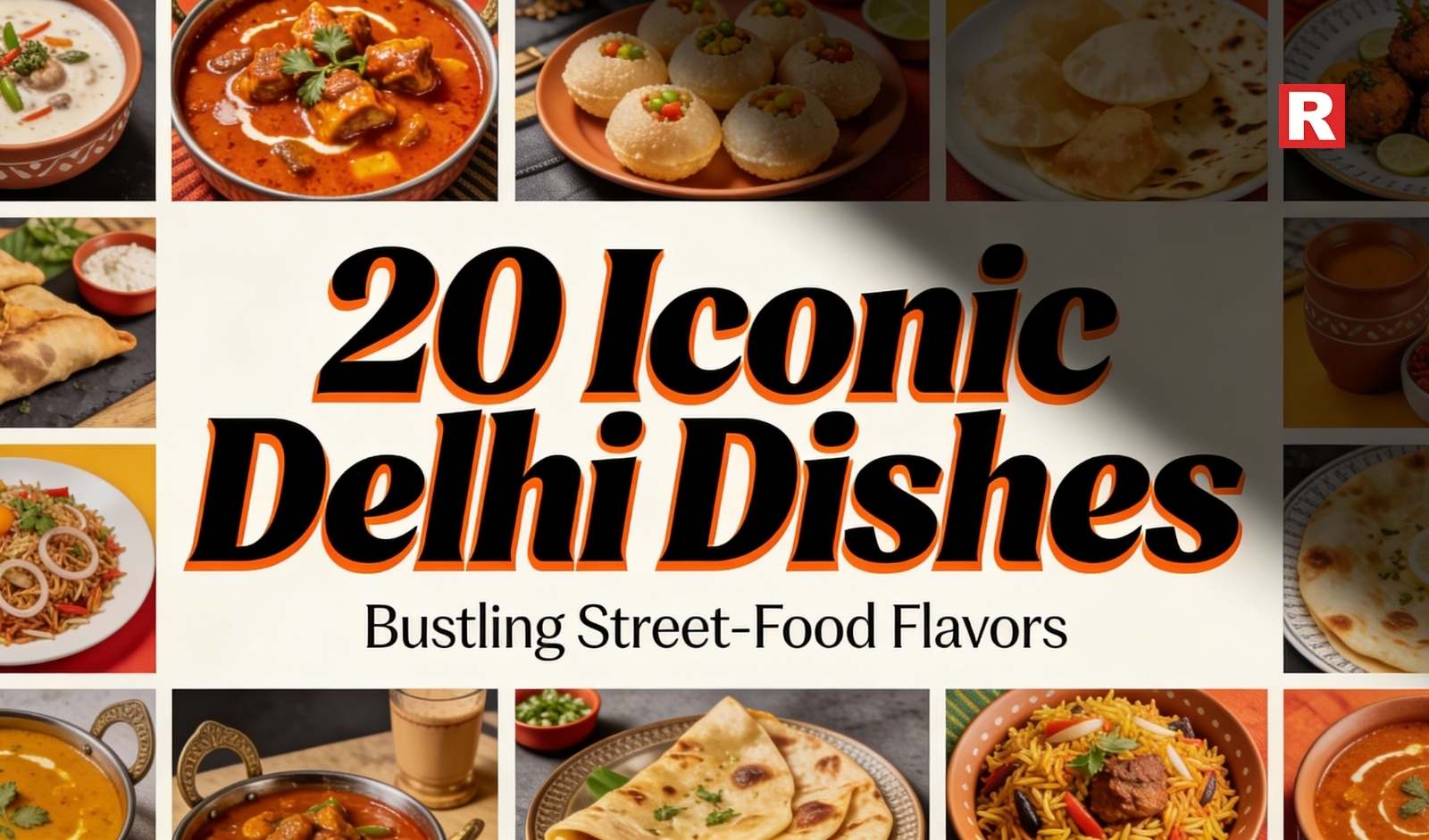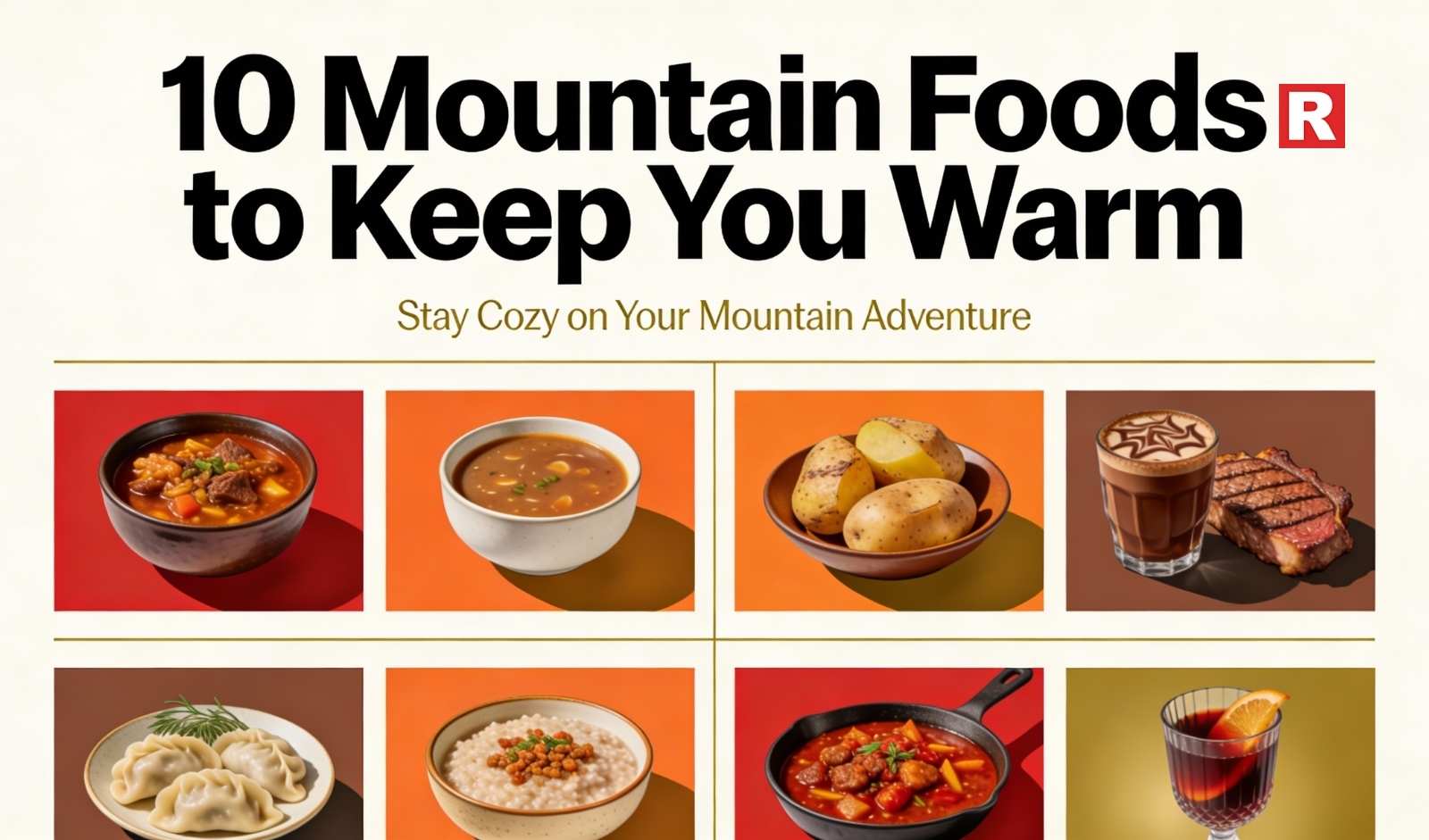
Baking is no longer as simple a thing as it was before. It now has various tastes, flavours, shapes and sizes. Restaurant India spoke to pastry chefs to know the current bakery trends
Baking in India has taken a lot of turns, and whether it is retro, fusion or keto, the art and process of baking has indeed come a long way. Moreover, with people becoming increasingly aware of their diet and health, the bakery products’ industry has moved with the times and trends to cater to the demand coming from such consumers. Here are the most prominent ones:
Tangy Touch
Tangy flavours to sweet dishes are the latest to hit the trend chart. Chefs are now curating sweet recipes which have a tangy touch to them. Chef Adnaan Shaikh, Pastry Chef, The Westin Hyderabad Mindspace, says “The tanginess flavour in desserts makes the baked products fresher, unique and flavoursome. At The Westin Hyderabad Mindspace, lovers of baked goods are treated to flavours they have rarely tasted before and can expect an extra tinge of tanginess to be added to tarts and sour cream.”
Healthy Desserts
Gluten-free desserts are the riot today across the world with an increasing number of people turning to diets. So, whether it is dairy-free desserts or sorbets, people are quite conscious of the gluten levels that they are consuming. Also, keto baking is making space in baking trends. While making keto bread or other baked recipes, the wheat is substituted with ingredients that are low in carbohydrates. People who follow strict ketogenic diet go for this baking method. It’s healthy, to say the least.
Retro Baking
“Similar to fashion, in baking as well, the older trends are making a comeback. Nostalgic baked treats like tea cakes that were frequently served a few decades ago are now once again becoming a popular product in the bakery space,” Shaikh says. Head chef and owner of The Dessert Street, Dhawal Shah, adds: “Retro baking has come back but with a modern twist. In retro recipes, modern ingredients are used. For example, instead of making a lemon tart in a traditional manner, it is made with different textures like a mousse or lemon gel.” He also adds that molecular gastronomy in pastry has increased so that the use of fresh fruit flavour is done by adding caviar to the desserts.
Miniature Desserts
Not only do miniature desserts come in a wide variety today but these savoury dishes are picture perfect for Instagram too. They are common in high tea sessions and are given various forms and flavours to match various occasions.
Sourdough Breads
Sourdough breads are currently very popular in the market. With the demand for fermented food on the rise, sourdough is experiencing greater attention than ever before. Its fermentation technique comes with benefits like Vitamin B, Omega-3 fatty acids and enzymes.

The global bakery industry is entering a new era where indulgence is defined by experience, not just flavor. Dramatic texture contrasts, globally inspired flavor narratives, health-forward formulations, and sustainability-driven innovation are reshaping bakery offerings to meet the expectations of a more informed, visually driven, and mindful consumer. Growing at a CAGR of 9-10%, it is projected to surpass $30 billion by 2033.
Texture Takes Center Stage
In 2026, texture rivals taste as the defining element of baked goods. Consumers are drawn to contrast, crackling crusts with molten centres, airy crumbs with creamy fillings and chewy bases topped with crisp layers. Fuelled by social media’s obsession with pulls, breaks and gooey reveals, texture-driven bakes go beyond visual appeal, transforming everyday pastries into deeply satisfying, multisensory experiences.
“Trends are never replicated, they are reimagined. For instance, when Kunafa emerged as a global flavour trend, L’Opéra reinterpreted it through French technique, creating L’Opéra-style Kunafa across multiple categories. This approach bridging global inspiration with French authenticity and Indian sensibilities defines how the brand continues to innovate without shifting from its principles,” shared Dr Kazem Samandari, Executive Chairman, L’Opera, New Delhi.
Pointing his views, Chef Raghav Jandroia, Corporate Chef, Harajuku Bakehouse Mumbai said, “Inspired by Japanese baking, we focus on contrast, balance, and how a dessert feels with every bite. That philosophy guides us to create desserts that are cloud-soft, airy, and gentle indulgent without ever feeling heavy.”
Sourdough has evolved
Sourdough has evolved far beyond bread, finding its way into modern bakes through technique rather than taste. Its naturally fermented profile, digestibility, and complex flavor make it appealing to both health-conscious and artisanal-minded consumers.
For L’Opéra, sourdough represents craftsmanship at its purest time, patience, and respect for process shaping a future where tradition and modernity coexist seamlessly.
“From sourdough banana or carrot loaves to brownies, chocolate cakes, and cinnamon rolls, fermentation improves texture, softness, and structure while adding depth. Even tea cakes, like matcha–yuzu sourdough, use slow fermentation to create a lighter crumb and more refined finish, showing how sourdough has become a versatile baking method, not just a bread base,” added Jandroia.
Convenience Culture
Grab-and-go gets elevated. For Harajuku, it’s about compact, perfectly crafted sandwiches and sushi-style bakery wraps become everyday essentials—fast, portable, and thoughtfully made for urban life. Around 60% of consumers prefer ordering online on a monthly basis. They prefer ordering items like cakes, puffs and croissants rather than experiencing in bakery cafes.
Visual Appeal & Sharability
In the age of Instagram and short-form video, bakery products must look as good as they taste. Visual drama is no longer optional—it’s a strategic tool. “Bold colours, graphic forms, and satisfying textures create pause-worthy moments. Every bite is an experience meant to be seen, shared, and remembered,” pointed Jandroia.
One Concept Rule
Brands are focusing on multiple items in bakeries that it becomes difficult to focus on all the SKU’s, all the time.
Adding further, Zaid Sait, CEO, Zed The Baker, Bengaluru said, “There are very few brands who focus on one concept for one brand. One can experiment a lot in one base item; create multiple items from the same with lesser SKUs. In this way, one can be stable and ensure quality and consistency remains along with scalability.”
Flavor profiling is very much common as innovation is the key in scaling up which helps the brands to grow.
Clean labels and health-conscious baking
Clean labels and health-conscious baking are now integral to premium patisserie. Almost 60% of the brands are focused on health-conscious baking and around 40% of the consumers prefer these alternate choices.
“At L’Opéra, transparency and integrity guide every product, with clear ingredient declarations and a commitment to quality sourcing. Alongside classic French offerings, the brand has developed a growing range of sugar-free desserts and healthier formats such as oatmeal biscuits, muesli bars, and nutritionally healthier products,” shared Samandari.
While Sait highlighted that replacing sugar may add value, it won’t be for indulgence. The focus remains on proper ingredients, high-quality fats, and correct techniques, without artificial substitutes or shortcuts. As global palates evolve, 2026 is set to redefine baking through intention, innovation and restraint.

Bread has become a part of everyday life in India. It is no longer just a breakfast choice but a quick meal for any time of the day. From morning toast to school lunch sandwiches and late-night snacks, bread fits every occasion. It has earned a permanent place in Indian kitchens. Over the years, bread in India has evolved from the simple white loaf to a range of healthier and tastier options. Today’s consumers are more health-conscious and prefer choices that combine flavor with nutrition. Multigrain, brown, and whole wheat breads are becoming household favorites. Many also look for preservative-free and high-fiber options that support a balanced lifestyle.
India’s bread market reflects this growing awareness. Established brands continue to dominate store shelves, while new artisanal bakeries attract urban consumers with fresh, handcrafted loaves. From affordable daily breads to premium gourmet options, the variety has never been wider. With its convenience, versatility, and comfort factor, bread remains one of the most loved and essential foods across the country.
What Makes a Good Bread Brand?
When choosing a bread brand, freshness is key. A good loaf should feel soft but not doughy, with a pleasant aroma and balanced texture. The use of natural ingredients and minimal preservatives also defines a quality brand.
Nutrition is another important factor — the best breads provide a balance of fiber, protein, and essential nutrients while keeping refined flour to a minimum. Packaging plays a crucial role too, as it maintains freshness and prevents moisture. The top brands in India continue to evolve to meet these standards while offering taste and convenience.
Explore Top Bread Brands in India
1. Britannia Bread
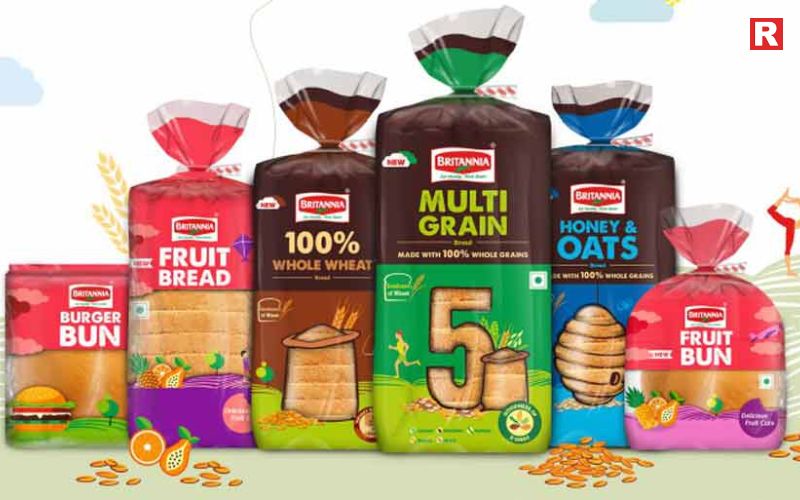
Britannia is one of the oldest and most trusted bakery brands in India. Known for quality and consistency, Britannia Bread is a staple in many households. The brand offers a wide range of options such as Whole Wheat Bread, Brown Bread, and Multigrain Bread. Britannia stands out for its soft texture and freshly baked aroma. Its breads are ideal for sandwiches, toast, or even simple butter spreads. With strong distribution across India, Britannia ensures freshness in every pack. The brand continues to innovate with healthier variants to meet modern dietary preferences.
Read more: 21 Different Types of Indian Breads and Their Benefits
Top 10 Vegan Street Foods in India Every Indian Loves
2. Modern Bread
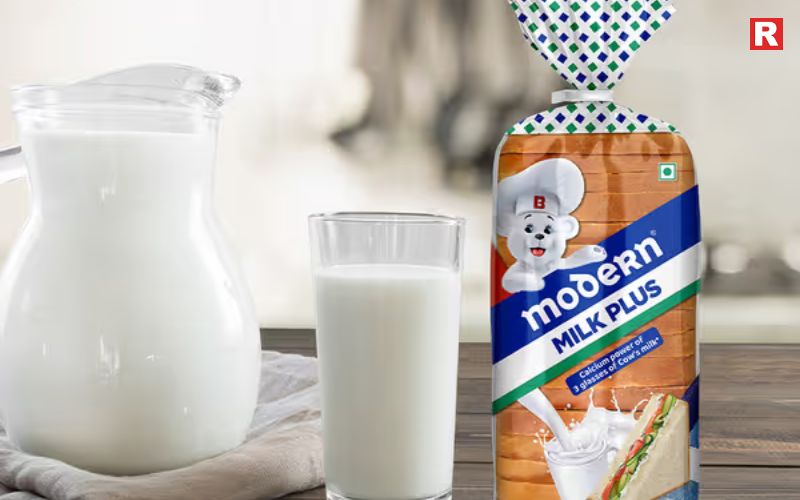
Modern Bread has been a part of Indian breakfast tables for decades. Known for its reliability and affordability, it offers a variety of options like Milk Bread, Sandwich Bread, and Hi-Fibre Brown Bread. The brand has recently updated its packaging and improved its production quality to ensure longer freshness. Modern Bread combines traditional baking expertise with new technology to deliver soft and nutritious loaves. It remains a trusted name among both urban and semi-urban consumers.
3. Harvest Gold
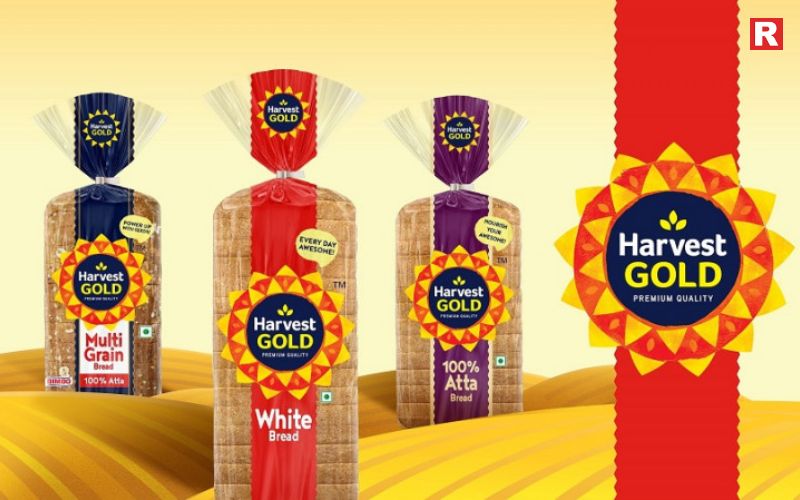
Harvest Gold is another leading name in India’s bread segment. Established in 1993, it has built a strong reputation for quality and freshness. The brand offers several variants like Atta Bread, Multigrain Bread, and Sandwich Bread. Harvest Gold’s breads are known for their soft texture and wholesome taste. The brand maintains strict quality standards and has a wide distribution network, especially in North India. It’s the go-to brand for families who value both taste and nutrition in their daily meals.
4. English Oven

English Oven, a premium bread brand by Mrs. Bector’s Food Specialities, has gained massive popularity in recent years. The brand is loved for its oven-fresh quality and rich texture. English Oven offers a range of products such as Brown Bread, Garlic Bread, Sandwich Bread, and Multigrain Bread. Each loaf is baked with precision to retain softness and natural flavor. Its thick slices make it perfect for gourmet sandwiches and hearty breakfast meals. English Oven focuses on hygiene, freshness, and taste — making it a top choice for quality-conscious consumers.
Know more: Best Instant Noodles Brands in India That Make Every Slurp Worth It
5. Bonn Bread
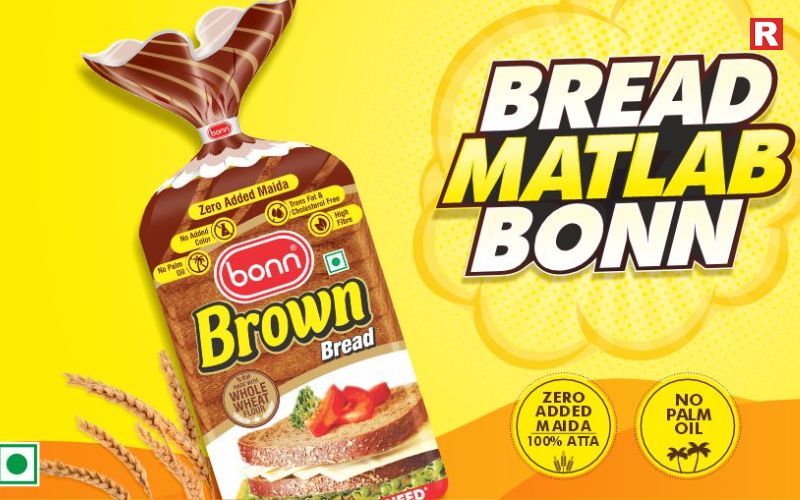
Bonn is a well-known brand from Punjab with a strong presence in North India. It offers a variety of healthy options including Whole Wheat, Atta, and Multigrain Bread. The brand is ISO-certified, ensuring top-notch quality and hygiene standards. Bonn has positioned itself as a health-focused bakery, offering products that combine traditional taste with modern nutrition. Its bread is soft, flavorful, and ideal for daily consumption. Bonn’s innovation in healthy bakery products has helped it stand out in a competitive market.
6. The Baker’s Dozen
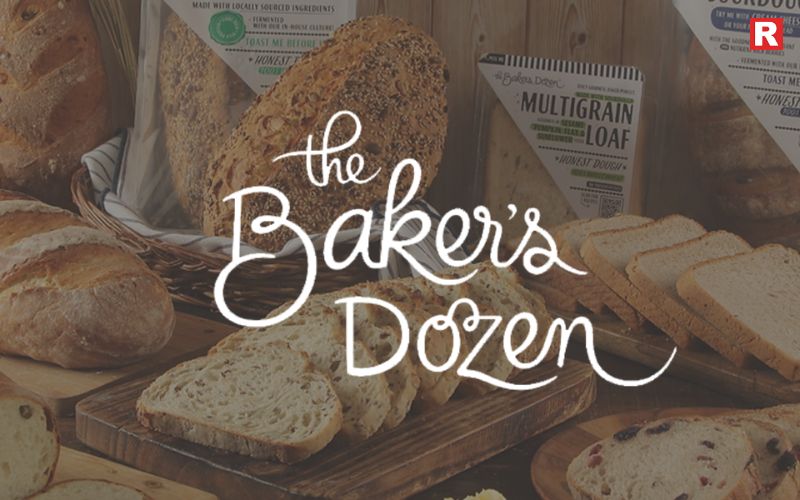
The Baker’s Dozen represents the rise of artisanal bread culture in India. This Mumbai-based brand focuses on natural, preservative-free, and freshly baked breads. It is popular among urban consumers who prefer authentic European-style loaves. Their range includes Sourdough, Rye Bread, Baguettes, and Gluten-Free options. Each loaf is made using slow fermentation techniques that enhance flavor and texture. The brand emphasizes craftsmanship and uses high-quality ingredients. For those who love fresh, artisanal baking, The Baker’s Dozen brings a touch of authenticity to the Indian bread scene.
7. Daily Bread (by Britannia)
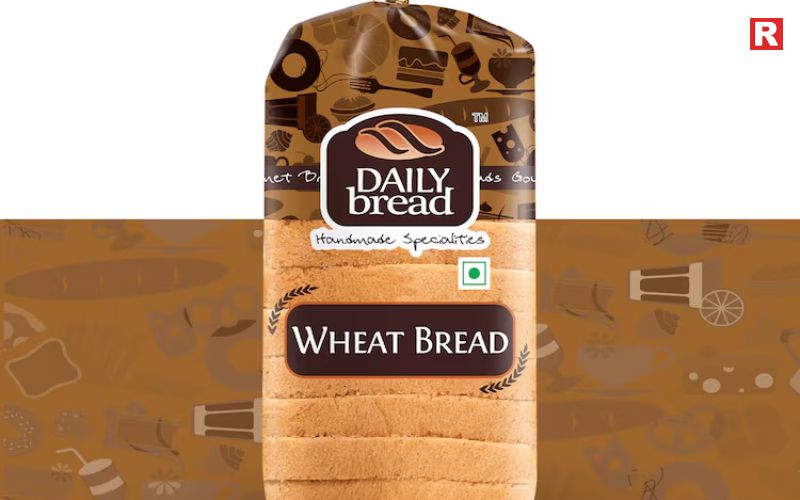
Daily Bread is Britannia’s premium bakery brand, known for fresh loaves, buns, and European-style breads. The brand focuses on using quality ingredients and traditional baking techniques. From soft baguettes to crusty loaves, Daily Bread offers a range of products that appeal to those who enjoy gourmet experiences at home. It is particularly popular in metro cities, where demand for premium and freshly baked products is on the rise.
Also check: How to Make Momo at Home for a Healthy Treat
Top Flavour Coffee Brands in India That Every Coffee Lover Must Try
Health Trends Shaping the Indian Bread Market
Health trends are driving innovation in the Indian bread industry. Consumers are becoming more aware of ingredients and nutritional content. The popularity of whole-grain, multigrain, and millet-based breads has grown significantly.
Many brands now offer vegan and gluten-free options for consumers with specific dietary needs. There’s also a noticeable rise in demand for breads labeled “no maida,” “high fiber,” and “no added sugar.” As more Indians seek healthier alternatives, brands are experimenting with flours like oats, ragi, and quinoa to create nutritious and delicious options.
Quick Treat!
Bread holds a special place in India’s diverse food culture. From Mumbai’s bun maska to Delhi’s bread pakora and Bangalore’s toast sandwiches, it appears in every region’s favorite dishes. India consumes more than 1.5 million tonnes of bread each year, and the demand keeps rising. Its simplicity and versatility make it fit into both Indian and global cuisines — from buttered pav to hearty continental toasts.
Over time, India’s bread market has grown from basic white loaves to a wide range of healthy and premium options. Brands such as Britannia, Modern, Harvest Gold, English Oven, Bonn, The Baker’s Dozen, and Daily Bread have changed how Indians enjoy bread today. Whether it’s a soft slice for breakfast or a crisp sourdough with soup, these brands offer freshness and flavor in every bite. With a growing focus on health and taste, India’s love for good bread continues to rise.

Bakeries are no longer just places to buy cakes and pastries. They have become a part of everyday life. In India, the bakery industry has grown rapidly over the past few years. People now visit bakeries not only for celebrations but also for daily treats. Bakeries offer a wide range of products. From soft breads to rich cakes and delicate pastries, there is something for everyone. The quality has improved a lot, and many bakeries now match international standards.
People often visit bakeries to celebrate special moments. Birthdays, weddings, and festivals are incomplete without a cake or sweets. Some bakeries also offer fresh bread and snacks for everyday meals. Artisanal and gourmet options are becoming popular in big cities. These include designer cakes, cupcakes, and fusion desserts. Many bakeries focus on using fresh ingredients and maintaining hygiene. Bakeries are also a place to experience joy and comfort. A simple pastry or a warm loaf of bread can bring a smile. With the growing variety and quality, Indian bakeries are now a blend of tradition and innovation. They bring happiness in every bite.
Read more: 8 Famous Vegetarian Dishes of Uttar Pradesh and Their Timeless Legacy
6 Benefits of Drinking Black Coffee
Why Bakery Culture is Booming in India
Indian bakery culture is evolving fast. Earlier, bakeries were mostly for special occasions. Today, people enjoy bakery products as a daily treat. The rise of online delivery, quick commerce, and gourmet options has made it easier for everyone to access fresh and premium products. Vegan cakes, gluten-free bread, designer cupcakes, and artisanal desserts are no longer niche—they are mainstream.
Bakeries are now a part of our lifestyle. People enjoy visiting them, tasting new products, and even gifting baked goods to friends and family. The combination of taste, quality, and innovation has made bakery brands an essential part of modern Indian life.
Find your favourite Bakery!
Here’s a look at top bakery brands in India, their specialties, and why they are so loved.
1. Theobroma
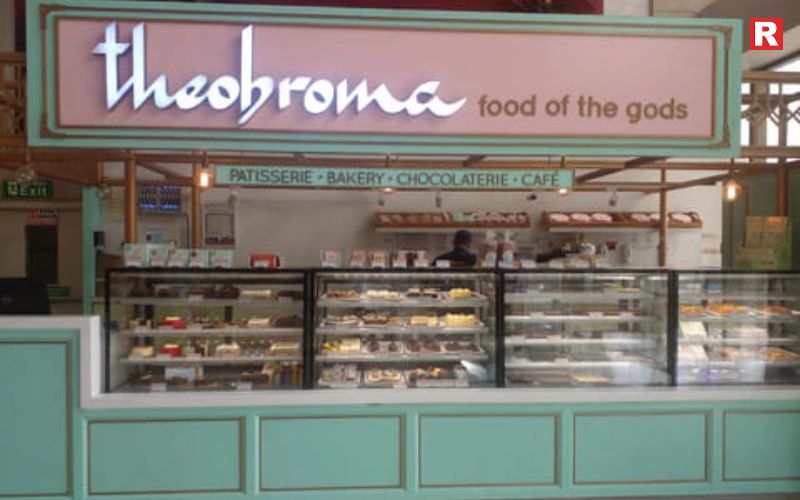
Theobroma is one of India’s most popular bakery brands. Known primarily for its brownies and pastries, Theobroma has carved a niche among chocolate lovers. The brand also offers cakes that are moist, rich, and perfect for celebrations. Theobroma pays attention to taste and freshness. Each brownie is dense, fudgy, and packed with flavor. Their pastries come in a wide range of options—from creamy chocolate to tangy fruit flavors. Theobroma also focuses on hygiene and uses quality ingredients. With outlets in cities like Mumbai, Pune, and Bengaluru, Theobroma is a favorite for both casual treats and special occasions.
2. Bakingo
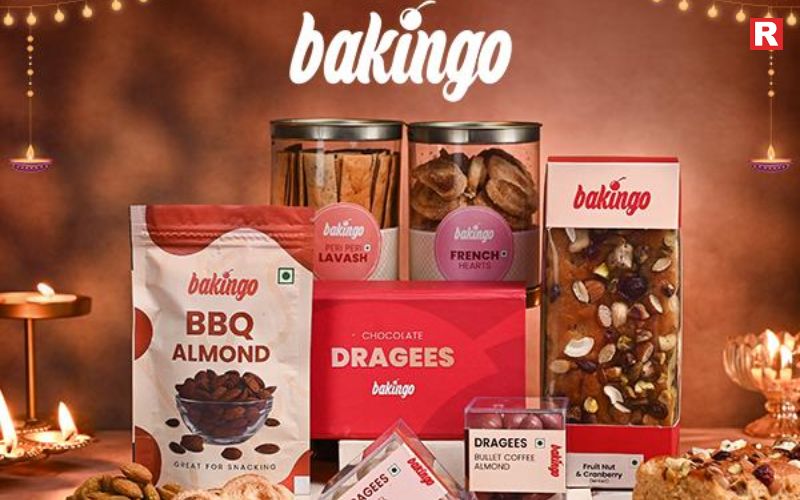
Bakingo is known for custom cakes and designer desserts. Whether it’s a birthday, anniversary, or corporate gifting, Bakingo delivers cakes that leave a lasting impression. Customers can personalize cakes with names, photos, and special messages, making them unique. Bakingo stands out for its wide variety and online convenience. You can order from anywhere in India, and the cake arrives fresh at your doorstep. From cupcakes to large celebration cakes, Bakingo caters to every taste and occasion. Their quality ingredients and beautiful presentation make Bakingo a go-to for anyone looking to combine taste and style.
3. BreadTalk
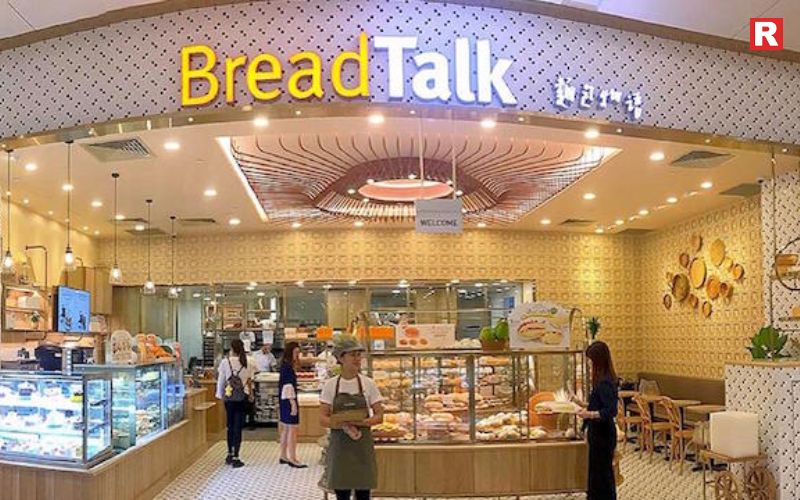
BreadTalk is an international bakery brand from Singapore, now very popular in India. It is known for innovative breads, buns, and pastries. The brand combines Asian flavors with international baking techniques, giving its products a unique twist. BreadTalk special for its variety and creativity. You can find classic options like chocolate cake or croissants, as well as experimental flavors like curry puffs or salted caramel buns. BreadTalk also focuses on freshness, hygiene, and quality. For urban consumers in cities like Delhi, Mumbai, and Bengaluru, BreadTalk has become a trusted name for both daily bread and gourmet treats.
Know more: 5 Foods to Avoid for Better Cholesterol
4. Lavonne
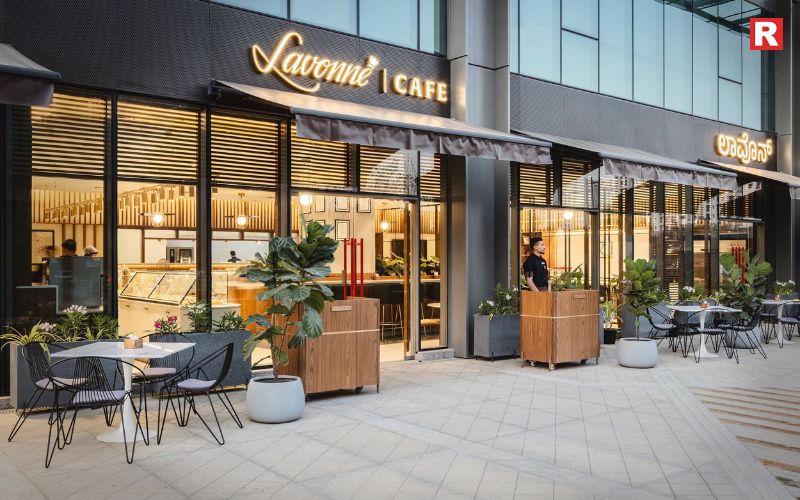
Lavonne is a premium bakery based in Mumbai. It is famous for its artisanal cakes, desserts, and bakery products. Lavonne is perfect for people who want something more refined and gourmet. Their signature cakes are visually stunning and taste equally impressive. From rich chocolate gates to delicate French pastries, Lavonne delivers both taste and style. They also offer dessert counters for events and catering services, making them ideal for weddings and celebrations. Lavonne stands out for its creativity, premium ingredients, and attention to detail, making it a favorite among those who appreciate high-quality bakery products.
5. Glen’s Bakehouse
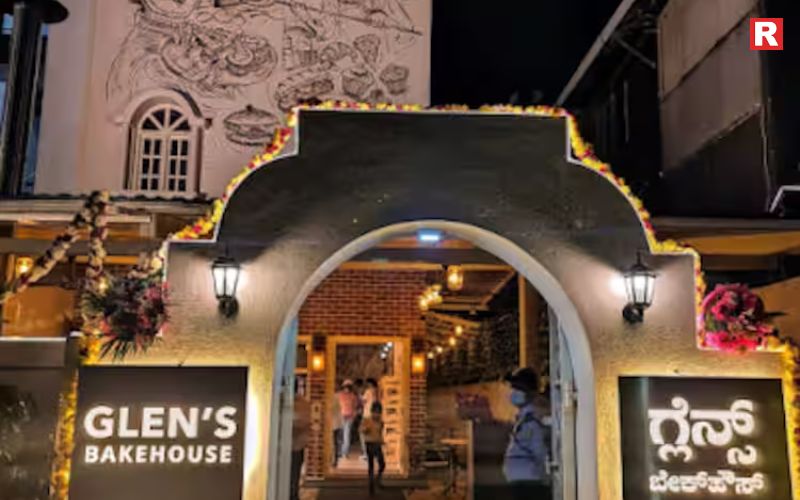
Glen’s Bakehouse is one of India’s most loved homegrown bakery chains. Known for its freshly baked desserts, pastries, and signature cheesecakes, it has become a go-to spot for dessert lovers across major cities. The bakery brings together classic recipes and modern flavors, offering everything from gooey brownies to soft cupcakes and creamy mousse jars. What sets Glen’s Bakehouse apart is its cozy café-style setup and focus on quality ingredients. Each product is baked fresh, ensuring rich taste and perfect texture. The menu also includes snacks, sandwiches, and coffee, making it a favorite for casual meet-ups and celebrations. With outlets in cities like Bengaluru, Hyderabad, and Chennai, Glen’s Bakehouse has built a loyal fan base. It offers a perfect blend of Indian warmth and international dessert craftsmanship, making every visit a sweet and memorable experience.
Also check: 6 Unexpected Benefits of Eating Jackfruit (Kathal) – Nature’s Spiky Surprise!
6. The Rolling Pin

The Rolling Pin is a boutique bakery offering artisanal breads, cakes, and seasonal desserts. Known for its creativity and high-quality ingredients, this bakery has become popular among urban food lovers. They specialize in products like sourdough breads, designer cakes, and seasonal pastries. The Rolling Pin also experiments with flavors and designs, making each visit a unique experience. The focus on freshness, taste, and aesthetics makes The Rolling Pin a top choice for gifting and personal indulgence alike.
7. Qmin
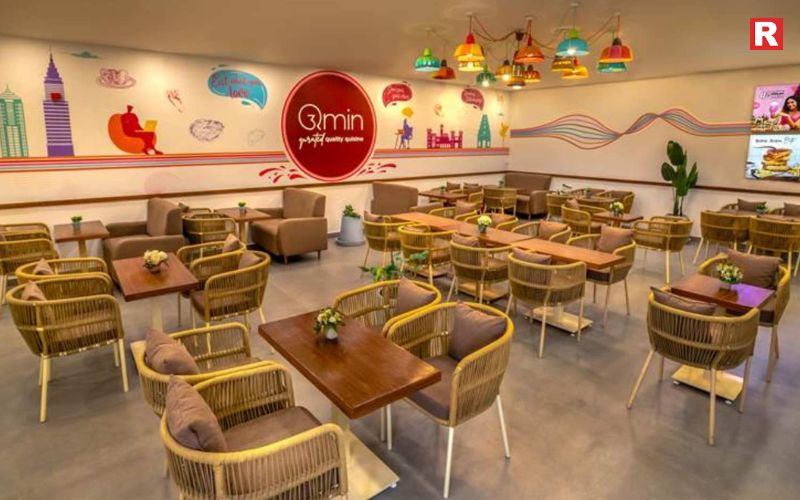
Qmin is a bakery that blends traditional Indian flavors with modern baking techniques. From cakes infused with Indian spices to fusion desserts, Qmin caters to adventurous taste buds. Their products are made with premium ingredients and innovative recipes, ensuring each bite is delightful. Qmin also offers bakery items for gifting and celebrations, making it a versatile option for every occasion. With its unique approach to flavors, Qmin has carved a space among India’s top bakery brands.
8. Monginis
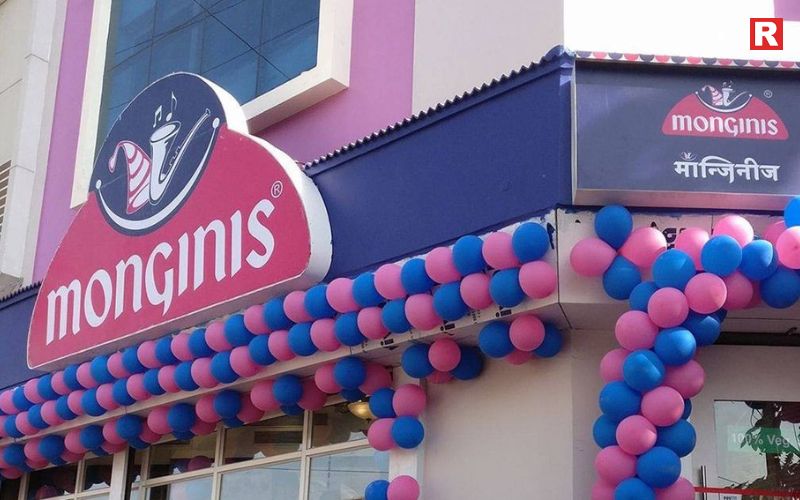
Monginis is one of the oldest and most trusted bakery brands in India. Known for cakes, pastries, and snacks, Monginis has been a household name for decades. Their signature cakes and breads are affordable, fresh, and widely available across India. Monginis combines quality ingredients with consistency, making it a go-to bakery for daily treats and celebrations alike. The brand has outlets in almost every major city, making it accessible for everyone looking for classic bakery products.
Why People Love These Bakeries
People choose these bakeries for several reasons:
- Freshness: Products are baked daily using quality ingredients.
- Variety: From classic cakes to gourmet desserts, there’s something for everyone.
- Convenience: Many offer online ordering and home delivery.
- Trust: These brands have a strong reputation for hygiene and taste.
- Celebrations: Perfect for birthdays, weddings, festivals, or gifting.
Bakeries today are not just about sweets—they are about experiences. A well-made cake or pastry can make a day special, create memories, and delight the senses.
Trends in the Indian Bakery Industry
The Indian bakery industry is growing rapidly. Here are some trends shaping it:
- Artisanal Bakeries: Handcrafted bread, cakes, and pastries are becoming popular.
- Health-Conscious Options: Gluten-free, vegan, and low-sugar products are in demand.
- Online Delivery: Bakeries are partnering with delivery apps and e-commerce platforms.
- Fusion Flavors: Traditional Indian flavors mixed with modern desserts are a hit.
These trends show that Indian consumers are not just looking for taste—they want quality, innovation, and convenience.
For the Sweet Treat!
India’s bakery industry offers something for everyone. From Theobroma’s indulgent brownies to Lavonne’s artisanal creations, each brand has its unique charm. Whether you want a classic cake for a birthday or a gourmet pastry for a special occasion, these top bakery brands ensure freshness, quality, and taste.
Exploring these bakeries is not just about satisfying your sweet tooth—it’s about experiencing a tradition of quality, innovation, and celebration. Next time you crave something baked and delicious, you know exactly where to go.

Keish Hospitality, founded by Niketa Sharma and Dilip Rawat in 2021 has quickly become a driving force in Mumbai’s hospitality landscape. Known for its creativity, quality, and vibrant dining experiences, the group is steering Keish Hospitality into its next era - defined by innovation, expansion, and national growth.
With a dynamic portfolio including The Thane Club, Blah BKC & Santacruz, Vivi Italian, South Stories India, Masaledar, and Magna Bar & Kitchen, the brand is now set to unveil an exciting concept ‘Iti’, a bakery brand, focused on hyper-local ingredients. In an exclusive chat with Restaurant India, Niketa Sharma, Managing Director of Keish Hospitality, spills the bean regarding her latest bakery venture ‘Iti’ in Mumbai. Excerpts:
What’s in the Name?
Iti is a common word used in Sanskrit which means ‘wanting more.’ We named as ‘Iti’ because we want people to try more items and want more from our brand. This name will resonate with the audiences.
Why Iti?
Iti is a clean sustainable Indian café, which will be a mix of café and retail gifting concept based on hyper local Indian ingredient-based desserts and savories. Whether it is the French patisseries or bakery or bread or the cookies, we are using modern techniques to redefine the bakery industry. Iti is an Indian farm to fork and clean-eating oriented brand where we are bringing back the Indian flavours in a fusion form.

 (Representational images)
(Representational images)
What’s on Offer?
We have Gun Powder Podi Masala Bagel with Mirchi & Curry Leaves Cream Cheese in it, Magic Masala Bagel with Thecha Cream Cheese in it, 70% Calibu Dark Chocolate Truffles with Filter Coffee Flavor, Parle G Biscuit Crumble with Masala Chai Flavoured Truffles, Triphala and White Chocolate Truffles. We are doing Ukidiche Modak Bapka, the filling for this will be authentic filling of modak, and if you steam this bapka, it will exactly taste like steamed modak, amongst others. We are not using refined sugar; we are using jaggery in our products.
‘Iti’ a creative shift or a challenge?
We have been working to launch this brand for a year now. I have been studying about flavours and told my chefs about this idea. We brainstormed a lot to come up with various dishes and did a lot of tastings to understand how these fusion tastes, works. Right now, we have done 70% of the trials. The packaging will be extremely sustainable like hyper local wood being used; we are focusing on re-usage of things.
What will be the Shelf life of your products?
We are trying not to use any preservatives. The shelf life for buns, breads, croissants will be of 3-5 days, while the hamper-based product will have 15-30 days shelf life. 80% of the products will be vegetarian and 20% will have eggs.
Why Bakery as Biz?
Being a passionate home-baker, I wanted to bring uniqueness to the platter and that’s how Iti came to the picture. We have 15-20 items in sweet section. My target audience will be millennial and Gen-Z and even families.
The Investment
We have invested more in R & D, menu and the branding and we will be investing more in QSRS and other format outlets.We are focusing on 3 models currently. In the phase 1, we will be focusing on Retail and hampers, phase 2 will be QSR, and phase 3 will be Café model. The brand is planning to open their first outlet in July.
Trends you Foresee
- Focus on Seasonal menu
- Bakers are moving towards ingredient focus baking Eg: essence or vanilla beans being added

Dessert Therapy is one of Mumbai’s luxury dessert dining restaurant chains founded in 2016 by brothers Nisarg and Harsh Shah who started their journey from home baking, venturing into first outlet in 2020. The brand grew entirely through word-of-mouth and organic growth on social media, offering high-quality vegetarian desserts without using palm oil, gelatine, or artificial colors.
In an exclusive interview with Restaurant India, Harsh Shah, Co-Founder, Dessert Therapy talks about their brand journey, innovations and much more.
Riding on Uniqueness
Dessert Therapy has redefined indulgence in Mumbai with 20+ varieties of cheesecakes, specialty desserts, sundaes, and a curated selection of rich chocolates, craft coffees, and iced teas. With outlets in Malad, Juhu, Bandra, Fort and Ghatkopar, the brand continues to expand, bringing luxury dessert dining to more locations. Each outlet is designed with a unique ambiance, offering a fresh experience at every visit.


What’s in a Name?
We feel desserts are therapeutic and it can calm your mind and soul that’s why we named it as ‘Dessert Therapy’ as it resonates with the audiences.
USP of the Brand
We add 30% less sugar in our desserts and make our base with less sugar as dry fruits and fruits have sugar content which we use for plating and filling or for presentations. The shelf life of our desserts is 4-5 days, and we don’t use preservatives. One thing is that we don’t sell the desserts from the display shelf.

Innovation is Key
We have our central kitchen in Borivali from where we make the desserts, and then we supply to our outlets where plating is done as per the requirement. Every sauce is prepared in-house.
For us, every recipe is a result of experimentation, precision, and passion for dessert innovation—whether it’s developing over 20 unique cheesecake varieties or crafting seasonal collections that resonate with Indian palates. We have monthly specials, other than that we keep changing the menu once in 6 months.


The Challenges
The main challenge was staffing and educating the customers. Choosing a right location was one of the major issues knowing that every location has its own set of challenges.
Top 3 dessert trends
• Quick desserts are gaining popularity. Eg: Strawberries with Chocolate sauce
• Innovations in French patisseries, Kunafa, Baklava is seen
• Healthier dessert options are on rise
Expansion plans
We are a boot-strapped company. We have plans to open our outlets outside Mumbai. It can be in Thane, Navi Mumbai, Bangalore or in Pune.

Founded by a mother- daughter duo, nutritionist Simran Bapu and head pastry chef Tina Bapu in 2019, Paleoo was born from a simple desire to eliminate the doubt between craving a treat and caring for your health. Paleoo bakes offers refined sugar-free, gluten-free, and maida-free confections. With a ₹1 crore investment secured on Shark Tank India recently, Paleoo Bakes is accelerating its expansion, catering to the growing demand for functional, nutrient-dense alternatives to traditional desserts. In an exclusive interview with Simran Bapu, Co-Founder, Paleoo Bakes talks about their journey, Shark Tank experience, expansion plans and much more. Excerpts:
Why Paleoo
Paleoo is a diet wherein you avoid grains and dairy products. So, this name resonates with the brand, and we have added the nutritionist guide which gives more weight to the brand name. There are bakeries that are doing gluten-free desserts but having a nutritionist to guide rightly is very much needed to run a segment like ours. Paleoo Bakes has 80 SKUS. The best-selling products are Hazelnut Crunch Cake, Banana Walnut Teacake and cookies.
Challenges Faced
The pricing of our products is on higher side compared to the local bakeries. So, the main thing which we faced was educating our consumers about what we do and its significance. It did take time for people to understand but since last few years, healthy eating is a trend, and people are aware about clean eating which helped our brand grow. The brand did a lot of free sampling in gyms and in other places to attract consumers.
Growing trend of clean-label desserts in India
The trend is on higher side as many actors and brands are promoting clean eating in India. Consumers are eager to know about what they consume, the nutritional benefits and much more. Earlier, we never added the calorie count for our products as we were scared that people will not buy low calorie products. But that’s not the case with us now, as consumers are keen on knowing the ingredients and consuming the same. So, we started adding the nutritional information in all the platforms.
Innovations and Pricing
We are working on millet-based desserts, cookies and new flavours; I give the recipes to my mom Tina Bapu, after guiding her about the nutritional aspects. FMCG is a competitive market, so before launching there we need to slash down the cookie prices. We want to make the brand accessible to all the consumers.
Social Media Promotions
Actress Shilpa Shetty has promoted our brand organically in many platforms that really helped us. We are educating people through our reels and posts on instagram. We are doing Google ads, Youtube ads and more. We invest a lot in social media these days. We have a team onboard, and they manage it all.
Quality & Consistency
We have made premixes in-house and have standard SOPS to follow. Even a layman can come and make the cake with the premixes. So, even if a new person joins us, they can bake easily.
After the Shark Tank episode, 60% of the revenue comes from food delivery platforms, while 40% of the revenue comes through Instagram/Website.
Expansion Plans
The Sharks guide us in expansion and give their feedback. We will be launching in quick commerce platform so people can order from any locations in India. They structure the business, and we run it. The brand started their pan-India shipping after the Shark Tank deal. We will be opening cloud kitchens in Peddar Road, Bandra, BKC and some other places. The major announcement is we are entering in the food market; we will have food space as a cloud kitchen which will focus on healthy food by 2026. For this, we have a chef on board who will curate the recipes, and he will look after all the elements.

Bread is one of the oldest and most loved foods in the world. Almost every culture has its own version of bread, made with different ingredients and techniques. From soft white bread to crispy baguettes and fluffy naan, bread comes in many forms. Each type of bread has its own unique taste, texture, and health benefits.
In this article, we will explore different types of bread and how they can benefit your health. Whether you love classic white bread, whole wheat, or something more exotic like babka, this guide will help you understand what makes each type special.
Read more: Top 7 Bread Brands in India: India’s Bread Basket
What’s the Healthiest Bread for You?
Choosing the right bread depends on your dietary needs and preferences. Whole wheat, sourdough, and rye bread are excellent choices for fiber and digestion, promoting gut health. If you prefer a softer texture, pita and chapati are great alternatives. For those following a gluten-free diet, corn tortillas and certain rye breads provide nutritious options. Multigrain bread offers a mix of seeds and grains for added nutrients, while brioche and babka can be enjoyed as occasional treats. Select wisely for a balanced diet.
Know more: Boutique bakery industry gaining ground across tier-1 cities in India
1. Yeast Breads (Leavened Bread) – The Classics We Love

Yeast breads are made using yeast, which helps the dough rise and creates a soft and airy texture. These breads are popular worldwide and used for sandwiches, toast, and more.
-
White Bread – Easy to Digest but Lower in Fiber
White bread is made from refined wheat flour, giving it a soft, fluffy texture. It is one of the most commonly consumed breads globally. Due to the removal of the bran and germ during processing, white bread is lower in fiber and nutrients compared to whole wheat bread. However, it is easy to digest, making it a good option for people with sensitive stomachs or digestive issues. It also serves as a quick source of carbohydrates, providing instant energy. While it can be enjoyed in moderation, opting for whole wheat alternatives is generally a healthier choice.
-
Whole Wheat Bread – Rich in Fiber and Better for Digestion
Whole wheat bread is made from whole grain flour, meaning it retains the bran, germ, and endosperm of the wheat. This makes it higher in fiber, which is essential for good digestion and gut health. Fiber helps keep you full for longer, supports healthy bowel movements, and can aid in weight management. Whole wheat bread is also packed with essential vitamins and minerals, including iron, magnesium, and B vitamins. It is a healthier alternative to white bread and is recommended for those looking for a nutritious daily bread option.
-
Sourdough – Great for Gut Health Due to Its Natural Fermentation
Sourdough bread is made through a natural fermentation process using wild yeast and bacteria. This fermentation makes it easier to digest and improves nutrient absorption. The probiotics and prebiotics in sourdough promote gut health, making it a great choice for those with digestive sensitivities. Additionally, sourdough has a lower glycemic index compared to white bread, which means it has a milder impact on blood sugar levels. With its slightly tangy taste and chewy texture, it is both delicious and nutritious.
-
Baguette – Low in Fat and Perfect for Sandwiches
The French baguette is known for its long, crispy crust and chewy interior. It is typically made with simple ingredients—flour, water, yeast, and salt—without added fats or sugars. This makes it a low-fat option among breads. Baguettes are commonly used for sandwiches and pair well with cheese, butter, and spreads. While they are lower in fiber than whole wheat bread, they provide a good amount of carbohydrates, making them a good energy source.
-
Brioche – Soft, Buttery, and Energy-Packed
Brioche is a rich and buttery French bread, known for its soft and slightly sweet flavor. It is made with eggs and butter, which give it a tender texture and a high-energy content. While it is not the healthiest option due to its higher fat and calorie content, brioche provides essential nutrients such as protein and healthy fats. It is often used for making French toast, gourmet burgers, and desserts.
-
Ciabatta – High in Protein, Perfect for Paninis
Ciabatta is an Italian bread with a crispy crust and a light, airy inside. It is high in protein, making it a great choice for those looking to add more protein to their diet. This bread is commonly used for paninis and sandwiches because of its sturdy texture, which holds fillings well. Ciabatta is made with simple ingredients and pairs well with healthy toppings like avocado, lean meats, and fresh vegetables.
-
Challah – Contains Eggs, Making It a Rich Source of Protein
Challah is a traditional Jewish bread that is slightly sweet and beautifully braided. Unlike other breads, challah contains eggs, making it a good source of protein and healthy fats. It has a rich, soft texture, making it perfect for eating on its own or using in dishes like French toast. Although it contains more calories than plain bread, it is a nutritious option when eaten in moderation.
-
Focaccia – Infused with Olive Oil, a Heart-Healthy Fat
Focaccia is an Italian flatbread that is baked with olive oil and often topped with herbs and sea salt. The olive oil gives it a rich flavor while also making it a heart-healthy choice. Olive oil contains monounsaturated fats, which help reduce bad cholesterol levels and support heart health. Focaccia is a great bread to enjoy on its own or as a side to soups and salads.
2. Flatbreads – The Thin, Crispy, and Chewy Wonders

Flatbreads are either unleavened or made with very little yeast. They are popular in many countries and are often eaten with dips, curries, or fillings.
-
Naan – A soft, flavorful Indian bread.
Naan is one of the most popular Indian breads, known for its soft texture and rich flavor. It is traditionally made in a tandoor, which gives it a slightly smoky taste. Naan is usually prepared with all-purpose flour, yogurt, and sometimes butter or ghee, making it softer and more flavorful than other flatbreads. While it is delicious, naan is higher in calories compared to simpler breads like chapati. It is often served with curries, kebabs, and rich gravies, making it a staple in Indian cuisine. Adding garlic or whole wheat flour to naan can enhance its nutritional value.
-
Pita Bread – Low in fat and high in protein.
Pita bread is a Middle Eastern staple, recognized for its round shape and pocket-like interior. It is made with simple ingredients like flour, water, and yeast, making it a healthy and versatile bread. Pita bread is low in fat and high in protein, making it an excellent option for those looking to maintain a balanced diet. The pocket inside the bread makes it ideal for stuffing with vegetables, hummus, lean meats, or falafel, creating a nutritious and filling meal. Whole wheat pita is an even healthier choice, as it adds fiber and essential nutrients to the diet.
-
Tortilla – A healthy, fiber-rich base for wraps.
Tortilla is a thin, flat Mexican bread that serves as the base for many dishes like burritos, tacos, and wraps. It is available in both corn and wheat varieties. Corn tortillas are naturally gluten-free and high in fiber, making them a great option for digestive health. Wheat tortillas, on the other hand, are soft and more flexible, making them ideal for wraps and quesadillas. Because they are thin and lightweight, tortillas are a great alternative to heavier breads, providing a healthy and fiber-rich base for various meals.
-
Lavash – A low-calorie, crispy option for healthy snacks.
Lavash is a traditional Armenian flatbread that is thin and crispy when baked. It is a low-calorie bread that is often used as a wrap or a healthy snack. Because of its light texture, lavash is a great alternative to heavier breads, making it ideal for those looking to cut down on excess carbohydrates. It can be used to make roll-ups with lean meats and vegetables or simply enjoyed with dips like hummus or tzatziki. When baked until crispy, lavash becomes a great substitute for chips, making it a healthier snack option.
-
Chapati/Roti – Made with whole wheat, great for digestion.
Chapati, also known as roti, is an essential part of Indian cuisine. Made from whole wheat flour and water, it is one of the healthiest breads available. Since it does not contain yeast or added fats, it is a light and easily digestible bread. Whole wheat chapati is packed with fiber, which aids digestion and helps in maintaining steady blood sugar levels. It is commonly eaten with vegetables, lentils, and curries, making it a nutritious and well-balanced meal component.
-
Paratha – A flaky, rich bread, best when eaten in moderation.
Paratha is another Indian flatbread, but unlike chapati, it is made with ghee or butter, giving it a flaky and rich texture. Parathas are often stuffed with ingredients like potatoes, paneer, or radish, making them a filling meal. However, because of the added fat, parathas should be consumed in moderation. They provide a good amount of energy, making them a popular breakfast choice in India. Opting for less oil or using whole wheat flour can make parathas a healthier option.
-
Matzo – A simple, unleavened bread with religious significance.
Matzo is unleavened bread with deep religious significance, especially in Jewish traditions. It is made from flour and water and baked quickly to prevent fermentation. Since it lacks yeast, matzo is crisp and flat, resembling a cracker. It is often eaten during Passover as part of Jewish customs. Nutritionally, matzo is lower in fiber compared to whole wheat breads but serves as a simple and light option for those looking for a plain and easily digestible bread.
3. Quick Breads – No Yeast? No Problem!

Quick breads use baking soda or baking powder instead of yeast, making them easier to prepare.
-
Banana Bread – Packed with potassium and fiber.
Banana bread is a delicious and nutritious quick bread that is loved for its sweet taste and soft texture. It is made with ripe bananas, which are an excellent source of potassium, an essential mineral for heart health and muscle function. The natural sweetness of bananas reduces the need for added sugar, making banana bread a healthier dessert or snack option. Additionally, banana bread contains fiber, which helps in digestion and keeps you feeling full for longer. Adding nuts or whole wheat flour to banana bread further enhances its nutritional value, making it a great energy-boosting treat.
-
Zucchini Bread – A sneaky way to eat veggies!
Zucchini bread is a clever way to incorporate vegetables into a sweet and moist loaf. Zucchini is packed with vitamins, minerals, and antioxidants, making this bread a nutritious choice. It is high in water content, which helps keep the bread soft while also providing hydration to the body. Since zucchini is mild in flavor, it blends well into the bread, making it perfect for picky eaters who may not enjoy vegetables. This bread can be made healthier by using whole wheat flour and reducing sugar, making it a great option for breakfast or an afternoon snack.
-
Cornbread – Gluten-free and rich in antioxidants.
Cornbread is a staple in Southern cuisine and is naturally gluten-free, making it an excellent choice for those with gluten sensitivities. Made from cornmeal, this bread is rich in fiber and antioxidants like lutein and zeaxanthin, which support eye health. Cornbread has a slightly sweet and crumbly texture, making it perfect as a side dish for soups, stews, or barbecue meals. Because of its high carbohydrate content, cornbread provides a quick source of energy. Using less butter and sugar can make it a healthier version while still maintaining its delicious taste.
-
Soda Bread – Easy to make, great for digestion.
Soda bread is a simple and traditional Irish bread that uses baking soda as a leavening agent instead of yeast. This makes it quicker to prepare and easier to digest. Soda bread is typically made with basic ingredients like flour, baking soda, salt, and buttermilk. The buttermilk adds a tangy flavor while also helping to keep the bread soft. Since it does not require yeast, soda bread is a great option for those with yeast sensitivities. It is often enjoyed with butter, jam, or cheese and can be made even healthier by using whole wheat flour for added fiber and nutrients.
4. Specialty & Regional Breads – The Fun and Unique Ones

Specialty and regional breads offer unique flavors and textures, reflecting diverse cultures. From dense rye bread to sweet babka, these breads bring rich traditions and health benefits to every meal.
-
Rye Bread – A great source of iron and fiber.
Rye bread is a dense, flavorful bread made from rye flour, which gives it a distinct, slightly sour taste. It is an excellent source of iron, which is essential for oxygen transport in the body and preventing anemia. Rye bread is also packed with fiber, making it a great choice for digestion and gut health. Unlike white bread, which can cause blood sugar spikes, rye bread has a lower glycemic index, helping maintain steady energy levels. This bread is commonly used in European cuisine and pairs well with meats, cheeses, and spreads, making it a nutritious and filling option for sandwiches.
-
Multigrain Bread – Full of seeds, grains, and nutrients.
Multigrain bread is made from a combination of different grains and seeds, such as oats, flaxseeds, sunflower seeds, and barley. This variety makes it one of the most nutrient-dense bread options available. The combination of grains provides essential vitamins, minerals, and fiber, which support digestion and heart health. The seeds in multigrain bread add a crunch and provide healthy fats that are beneficial for overall well-being. Since it is rich in complex carbohydrates, it keeps you full for longer and provides sustained energy. Choosing whole-grain multigrain bread over refined versions ensures maximum health benefits.
-
Bagel – Dense, chewy, and high in protein.
Bagels are dense, chewy bread that originated in Jewish communities and have now become a popular breakfast staple worldwide. They are traditionally boiled before baking, which gives them their signature chewy texture. Bagels are high in protein, especially when made with whole wheat flour or combined with toppings like seeds. While they are more calorie-dense than regular bread due to their compact structure, they can be a great source of sustained energy. Pairing a bagel with cream cheese, smoked salmon, or nut butter adds extra protein and healthy fats, making it a balanced meal option.
-
Pretzel – A crunchy, satisfying snack.
Pretzels are a classic German snack known for their crunchy, salty exterior and soft interior in the case of soft pretzels. They are often enjoyed as a snack or appetizer and can be served with dips like mustard or cheese. While pretzels are primarily made from refined flour and do not offer as much fiber as whole grain bread, they are a satisfying and low-fat snack. Opting for whole wheat or sourdough-based pretzels can increase their nutritional value. Soft pretzels, when made with minimal salt and butter, can also be a hearty and flavorful treat.
-
Babka – A dessert bread filled with sweet swirls!
Babka is a rich, sweet bread with swirls of chocolate, cinnamon, or fruit fillings, making it more of a dessert bread than a traditional loaf. Originating from Eastern European Jewish communities, babka has gained worldwide popularity due to its soft, buttery texture and indulgent taste. Though babka is higher in sugar and fat than other breads, it can be enjoyed in moderation as a special treat. Homemade versions can be made healthier by reducing sugar and using whole wheat flour. Babka pairs well with coffee or tea, making it a delightful choice for breakfast or dessert.
Final Thoughts
Bread is a staple food enjoyed worldwide in many forms, from soft brioche to hearty rye. It provides essential nutrients like fiber, protein, and healthy carbohydrates, depending on the type. Whole wheat and multigrain breads support digestion, while sourdough promotes gut health. Rye bread is rich in iron, and bagels offer protein-packed energy. For those who prefer lighter options, pita and lavash are great choices. Even sweet breads like babka can be enjoyed in moderation. Choosing wisely allows bread to be a delicious and nutritious part of a balanced diet. Explore different varieties and enjoy their benefits.

What if every bite of a cake, every sprinkle, and every fondant you taste could feel like a magical treat made just for you? Enter Confect, the brand that’s redefining the world of confectionery with its unmatched quality and innovation. Launched in India in 2018, Confect quickly expanded to international markets, capturing hearts and taste buds alike. With a commitment to revolutionize the industry, the brand embraced food technology to create a wide range of products, including fondants and sprinkles. Boasting over 800 SKUs, Confect is now set to scale even greater heights globally and in India.
Chef Gauri Varma is the driving force behind Confect. Armed with an Honours degree from Lady Shri Ram College and a postgraduate degree from Oxford University’s business school, she possesses a wealth of knowledge and experience. Starting her career at Deloitte and later working as a buyer in India, Gauri’s turning point came after her disastrous wedding cake experience. This inspired her journey into the confectionery industry and the eventual launch of Confect.
Confect’s business model is as innovative as its products. Surprisingly, the brand generates more sales in the US market than in India.
The financial journey of Confect has seen its share of ups and downs. In FY 2018-19, while catering primarily to B2B clients, the brand earned Rs 24 lakhs. By FY 2019-20, sales rose to Rs 1.2 crores, and in FY 2020-21, revenue reached Rs 3.4 crores. The growth continued in FY 2021-22 with Rs 5.6 crores. However, FY 2022-23 witnessed a dip to Rs 4.5 crores. The turnaround came in FY 2023-24 when sales doubled to Rs 8 crores. Looking ahead, Confect has already crossed Rs 7.5 crores in FY 2024-25 and aims to close at an ambitious Rs 15 crore.
The Journey to Shark Tank
Gauri Varma, a Delhi-based entrepreneur and founder of Confect, pitched her brand on Shark Tank to a panel of sharks that included Aman Gupta, Vineeta Singh, Peyush Bansal, Anupam Mittal, and Namita Thapar. During her pitch, Gauri shared a personal anecdote about her wedding in Las Vegas, where Rs 36,000 wedding cake turned out to be a disaster. This experience inspired her to launch Confect, ensuring that no one else would face a similar disappointment.
Valuing her company at Rs 100 crore, Gauri sought Rs 1 crore investment for 1 percent equity. Her presentation highlighted the brand’s expansion to over 800 SKUs. However, the pitch became emotionally charged as some sharks questioned her decisions and strategies.
Peyush Bansal critiqued her approach, calling it a mistake to diversify so quickly instead of focusing on core products like fondants.
Sharks’ Concerns
Anupam Mittal raised concerns about Gauri’s restless nature, which he believed drove her to frequently pursue new ventures. “It’s your fitrat [nature] to get restless,” he remarked, expressing hesitation about investing in her company.
He also questioned her decision to prioritize the US market, where Confect achieved Rs 8.5 crore in sales in just 18 months, over the Indian market. Aman Gupta echoed this sentiment, asking, “Where will you run away to when you sense trouble in the US?”
Vineeta Singh added, “As investors, we need to understand why you shut down operations in India to target the US market.” To this, Gauri admitted, “There is something missing from my end in the Indian market. I’ve struggled to understand, sustain, or build it effectively.”
The Deal Breaker
Despite the skepticism, NamitaThapar stepped forward with an offer of Rs 1 crore for 2 percent equity and 2 percent royalty. She advised Gauri to focus equally on both Indian and US markets to unlock the brand’s full potential. Although this halved her original valuation, Gauri accepted the offer, viewing it as an opportunity to scale with Namita’s mentorship.
The partnership with NamitaThapar marks a transformative phase for Confect. With Namita’s guidance, the brand plans to focus on Indian markets while continuing its global expansion. Together, they aim to redefine their target audience and strengthen brand building across geographies.
Speaking exclusively with Restaurant India, Chef Gauri shared her ambitious plans:
“We are looking at massive expansion this year, focusing on Tier-1, Tier-2, and Tier-3 cities, as well as modern trade. The US expansion will grow threefold, with additional warehouses being opened. We are also planning a European launch, starting with Germany, while continuing to grow in India. Confect will introduce more product categories tailored to different cities. We are committed to maintaining top-notch quality across all locations.”
With its innovative product range, ambitious goals, and a new partnership, Confect is poised to sweeten the confectionery market both in India and abroad.

Artisan baking is experiencing a revival, driven by consumer demand for quality, authenticity, and craftsmanship. In contrast to mass-produced baked goods, artisan baking emphasizes traditional methods, natural ingredients, and small-batch production. This shift has fueled the demand for skilled bakers and pastry chefs, whose expertise in slow fermentation, sourdough starters, and handcrafted techniques sets them apart in the culinary world.
Since bread was a staple food in ancient societies, artisan baking has its roots there. Nonetheless, the industrialization of food production sparked the start of the contemporary artisan baking movement in the late 20th century. All they want was to reclaim the traditional methods.
Who were the pioneers?
Pioneers of the artisan baking movement included American and European bakers who emphasized natural leavening agents, delayed fermentation, and stone-ground flours in their efforts to bring back traditional methods and ingredients. This move towards artisanal methods was a response to the public's increasing desire for real, handcrafted goods that prioritized flavor and quality. A growing desire for real, homemade goods with an emphasis on flavor and quality led to this trend towards artisanal methods.
Demand of Skilled Artisan Bakers
The demand for skilled artisan chef is increasing day-by day. Many culinary schools and other organizations have expanded their baking programs due to the increased demand for talented artisan bakers. These courses now focus on the artisanal aspect of the profession, providing specialized training in pastry arts, sourdough baking, and traditional bread-making methods from other countries.
The Market Size
The market for artisan bakeries is expected to expand at a compound annual growth rate (CAGR) of 4.80% between 2024 and 2032. In 2023, the market had a valuation of $5.1 billion. The market is expanding due to customers' growing desire for bread that tastes better and is made more authentically around the world.
What’s shedding the limelight?
Chef Manish Khanna, Founder, Noir by Chef Manish Khanna & Brownie Point said, “As consumers are getting more informed and conscious of eating habits, artisanal bakers are slowly stepping into the limelight. They are working hard to cater to the demand for products which are both delicious and rooted in tradition. Artisanal bakers use the ingredients available and take care during every step of the baking process, from mixing dough to finally baking it.
Talking about the methods, he added, “This was considered as a niche market, artisanal baking has recently seen a surge as consumers are increasingly seeking locally sourced products having a unique flavor profile and higher quality than mass baked goods. Bakers use organic and locally sourced produce for it resulting in products free from chemicals, preservatives and other additives. The use of sour dough cultures and fermentation techniques also adds to the health benefits of artisanal baling, as it improves digestion and increase the bioavailability of nutrients. The process is labor intensive with emphasis on traditional techniques and handcrafted methods. Bakers control temperatures and humidity to ensure proper fermentation of the products and baked perfectly. These methods require high levels of skills and the new bakers’ are upgrading skills to cater to this demand.
“Unlike commercial baking, which prioritizes efficiency, artisan bakers focus on slow fermentation, using natural starters and long proofing times to develop deep flavors and textures. They avoid artificial additives, opting instead for organic flours, heirloom grains, and locally sourced ingredients,” commented Chef Sunil Singh, Bakery Chef, The Bluebop Café who added that each product is crafted with attention to detail, from shaping the dough by hand to adjusting hydration and temperature to achieve perfect results.
Trends & Costing
Trends such as sourdough, gluten-free options, and sustainable practices are shaping the artisan baking industry. However, challenges persist, including the labor-intensive nature of the craft, high ingredient costs, and a shortage of skilled bakers. Despite these hurdles, the future of artisan baking looks promising. Advances in baking technology and a growing demand for health-conscious, locally sourced products will likely fuel continued growth.
Emphasizing more on costing, Ayush Piplani, Director & Head Chef at Brijwasi Bakery, “Modern methods, such baking bread with steam to aid in its more efficient rising, are to blame for the surge in artisan baking. The sourdough technique is another important approach; instead of adding commercial yeast to the dough, naturally occurring yeast is cultured from the environment. The more individuals learn about this technique's special benefits, the more commonplace it becomes. But one of the greatest challenges is educating customers about the process and explaining the more expensive price of these goods when compared to regular baked goods. The longer preparation time is essential; sourdough baking takes around two full days, in comparison to regular baking's three to four hours, which adds to the final product's greater cost.”
The Future
With consumers increasingly valuing handcrafted foods, the artisan baking movement is here to stay, offering exciting opportunities for bakers and chefs to showcase their skills and creativity.
Important things to focus on for the future are:
1. Working together with nearby farmers: To support sustainable agriculture and advance local food systems, artisan bakers may establish deeper ties with nearby farmers and grain growers.
2. Using ancient grains: Due to their distinctive flavors and health advantages, ancient and heritage grains are becoming more and more popular. These grains can be experimented with by artisan bakers to produce unique bread and pastry recipes.
3. Adopting technology: Although traditional methods are stressed in artisan baking, technology can improve consistency and efficiency without sacrificing quality. To improve productivity, bakers might use equipment such as temperature-controlled ovens, proofing rooms, and dough mixers.
4. Awareness among the consumers:
Conducting workshops, teaching consumers about the art of baking, and creating community bonds via shared food experiences.

Aspect Hospitality is thrilled to announce the highly anticipated arrival of Brunch & Cake to the bustling city of Mumbai, set in Raheja Altimus, Lower Parel.
This unveiling marks a significant stride as the renowned all-day dining concept sets its roots in this vibrant metropolis, promising an experience reminiscent of 'Grandma's Goodness’.

The first store in Mumbai is now open to public 11th September, 2024 onwards.
Originating from the heart of Spain in Barcelona, Brunch & Cake has evolved into a globally beloved brand, renowned for hosting in iconic locations with beautiful interiors, wholesome dishes, generous portions & a place which provides one of a kind experiences that embody the essence of 'Grandma's Goodness.' Founded in 2010 as Cup & Cake, the brand underwent a transformative journey, culminating in its rebranding to Brunch & Cake in 2012. It made it’s next move into the UAE in 2019, followed by a wave of global expansion which was initiated by Amjad Barakat and Jamal Wick in a reverse acquisition, establishing Brunch & Cake as a leading culinary force with now 19 restaurants worldwide, spanning from Spain to Dubai, Kingdom of Saudi Arabia, Bahrain, and Egypt.
“At Aspect Hospitality, we are dedicated to redefining dining experiences, where every dish and sip is a masterpiece of flavour and artistry. We are excited to partner with UAE based Global Restaurants and work closely with Amjad Barakat and Jamal Wick, two visionaries who have played instrumental roles in Brunch & Cake's journey, to bring their culinary magic to Mumbai,” shared Hitesh Keswani, MD, Aspect Hospitality.
Global Restaurants is dedicated to the worldwide expansion of Brunch & Cake, with 19 stores currently open and 34 more signed and in development. Madrid is set to welcome Brunch & Cake in September 2024, while six new regions are expected to experience the brand's unique dining in 2025.

Stepping into Brunch & Cake in Mumbai, guests will be captivated by interiors that blend iconic design elements with a warm, inviting ambiance. Known for its beautifully curated spaces in landmark locations worldwide, Brunch & Cake’s Mumbai outpost is no exception. The foundation of the design begins with soft, pastel hues—summer pastel yellow, seafoam greens, sandy beiges, and gentle peaches—creating a calming atmosphere that flows throughout the space.

With a legacy of culinary craftsmanship and exceptional service, Brunch & Cake promises to become a cornerstone of Mumbai's dining scene, embodying values of comfort, unconditional love, and generosity. Guests can anticipate a hearty food journey with Brunch & Cake signature dishes, including Next Level Avo Toast, Eggs Carbonara, B&C Scramble, Super Sandwich, Neapolitan Pizza, Cheesecake, Honey Cake, and Carrot Cake, crafted with care and passion using natural ingredients and high-quality flavours. Brunch & Cake Mumbai will also introduce a variety of vegetarian dishes specifically for the region as well as a cocktail menu to compliment the dinner experience.

Aspect Hospitality, a subsidiary of the esteemed Aspect Group, boasts successful restaurants across the city of Mumbai, including Akina, Estella, Coconut Boy, and Tuya’s. With a strategic focus on quality, service, and innovation, the group is poised to grow Brunch & Cake across major destinations in India, including Goa, Bangalore, Hyderabad, Delhi, and more.

Grill Splendour Services Private Ltd. was incorporated in November 2019 as a hospitality company to acquire the brand Birdy’s Bakery and Patisserie from another company. The brand acquisition was completed in January 2020 via a slump sale agreement. The company proceeded to invest in the business and grow the brand. The brand Birdy’s was originally set up as “Birdy’s by Taj”. But over a period, it was sold to other investors due to which the reputation on the brand suffered. The primary kitchen was divested to the future group and hence production control was lost by the brand. In an exclusive interview with Restaurant India, Srinidhi Rao, Managing Director, Birdy’s shares about his expansion plans, exploring in to healthier options, focusing more on pet-friendly treats and many more.
In April 2024, Grill Splendour Services (Birdy's) successfully raised ₹16.47 crore through its IPO, marking a significant milestone in its growth journey. Can you comment on the same?
Birdy’s as a brand is there in Mumbai, since 1990’s. Over the period of time, the brand did face ups and downs. Now, it is the good time to leverage the brand name. Birdy’s 2.0 are ready and we would like to capture the market in Mumbai as a whole. That’s the reason we have raised the money. Our shops are easier to do. We can make a shop ready in 20 days. In June 2024, we have opened 10 shops in Mumbai.
Recently, it was announced that you will be opening 15 stores in Mumbai soon. What’s your plan expanding to other regions?
Mumbai has geographies with various markets like South Bombay, North Bombay, Central suburbs, Thane, Navi Mumbai, Kalyan, Dombivli, Badlapur, Virar and all. In next two years, we can plan over 100 stores focusing in all these regions. We want to be a well-known brand in Mumbai in all the places before we expand in other cities.
How have you brought innovation into your stores and products?
Innovations are two kinds, one is changing lifestyle. Eg- Earlier, people use to eat more pastries, but these days’ people follow social platforms and trends wherein they are focused on smaller portion, more variety. Recently, we have launched Cheesecake shots like 60ml shots of various varieties. So, we are focusing on smaller portion items with more variety of products.
We are also launching wellness products which include Brownies with jaggery, Cookies without sugar, Chana-jor baked, Sugar-free cakes and many more in wellness range. We also make products especially for pets. We are also planning to launch products with plant-based items. The healthier options are available in most of our stores in Mumbai. We have launched the wellness options a month back.
What has been your USP in over 3 decades that has set to apart from others?
We were the first premium cake shop. The quality was same since all these generations. We make sure that the taste remains same in all our stores. The staff has been there for 25 years with us.
What’s your expansion plan (new products, cities and innovation)?
We are focusing on expanding in Mumbai as a whole. We are planning to come up with more bakery café wherein we can serve coffee, other beverages. We are coming up with Lobby Birdy’s Café in Time Square in Andheri soon. We have a takeaway Birdy’s. We have stores in different formats. I want to saturate with 150 stores and above in two years. And if we get a local partner in other cities who can handle the customer centric part, then we can invest in the kitchen so that products is consistent everywhere and we can expand accordingly.
5 trends you see in the bakery and patisserie space.
- People are getting more aware about the wellness and healthier options.
- People want smaller portion sizes, more variety
- People wants to have different varieties of cheesecake.
- Social media also plays an important role. People are more focused on the packaging of the product, the presentation and like to take eye-catchy images.

Sourdough bread, with its ancient roots dating back thousands of years, has recently experienced a resurgence in popularity, particularly in regions like India. While once the primary method for leavening bread, it gradually took a backseat to other techniques involving commercial yeasts and beer remnants.
In 2012, Sujit Sumitran made a pivotal career shift, leaving behind his corporate job at the age of 50 to pursue his passion for cooking. Settling in a quaint Goan mansion, he delved into the art of baking, focusing on sourdough bread. By utilising natural starter cultures instead of conventional yeast, he aimed to revive the traditional method of bread-making and infuse it with his own unique flair.
In India, where fermented foods like idlis, dhoklas, and curd hold a cherished place in the culinary landscape, sourdough bread has found a welcoming audience. Its tangy flavour and wholesome profile resonate with those seeking both taste and nutrition in their meals. As more people prioritise health-conscious eating, sourdough's popularity continues to grow, serving as a symbol of culinary tradition and innovation.
From bustling city kitchens to serene countryside bakeries, the aroma of freshly baked sourdough bread captivates food enthusiasts and health-conscious individuals alike. Its timeless appeal transcends generations, offering a taste of history and a glimpse into the future of wholesome eating. So, whether it's enjoyed as a hearty breakfast staple or as part of a gourmet meal, sourdough bread remains a beloved and versatile culinary delight.
Increase in customer Preferences
Sourdough bread is experiencing a surge in popularity across the culinary landscape, and there are several factors contributing to this trend. First and foremost, sourdough offers a distinct flavour profile that sets it apart from conventional bread. With its tangy taste and chewy texture, sourdough appeals to a wide range of taste preferences, making it a versatile choice for bread lovers.
As the Indian economy continues to grow and lifestyles evolve, there's a noticeable shift towards healthier food choices. Consumers are becoming more conscious of what they eat and are seeking out options that not only taste great but also offer nutritional benefits. Sourdough bread, with its reputation for being easier to digest and potentially more nutritious than bread made with commercial yeast, is emerging as a popular choice among health-conscious individuals.
“There's a growing interest in artisanal and traditional food preparation methods, and sourdough fits into this trend, as it requires patience, skill, and attention to detail to produce. Overall, the increase in preferences for sourdough pizza reflects evolving tastes and a desire for high-quality, flavorful, and possibly healthier food options,” Ayush Jatia, Founder of Si Nonna's stated.
The rise in popularity of sourdough bread is evident in the increasing availability of sourdough options in bakeries and restaurants. Many establishments now offer sourdough bread alongside traditional bread varieties, catering to the growing demand from consumers. In cities like Bangalore, where food culture thrives, there's a strong appreciation for sourdough's qualities, both in terms of taste and potential health benefits.
Amit Ajwani, the CEO of Nomad Pizza, highlights the growing preference for sourdough bread among consumers. He notes that customers are drawn to the unique flavour and texture of sourdough, as well as its potential health benefits. With more people recognizing the value of sourdough bread as a flavorful and nutritious option, its popularity is expected to continue to rise in the coming years. Whether enjoyed as a simple slice with butter or used as the base for a gourmet sandwich, sourdough bread is carving out a special place in the hearts and stomachs of food enthusiasts everywhere.
Catalyst to the customer demand
Customers, even in the fancy food scene, are all about staying healthy these days. They're paying attention to what's good for their tummies, which is a big reason why there's been a boost in demand for sourdough bread. And with top notch food brands jumping into the game, you can bet they're keeping the quality top notch too.
Eesha Sukhi, the founder of The BlueBop Cafe, thinks there are a few things driving this demand. For one, there's the influence of Western countries where sourdough has been a hit for ages. Plus, thanks to social media and food trends, people are getting curious about traditional bread making methods. The COVID 19 pandemic might have played a part too, pushing more folks to try their hand at baking and seek comfort in homemade goodies.
And let's not forget about social media, it's like a crash course in food education for Indian consumers. They're learning about all sorts of food choices, both local and global, right from their screens. Plus, they're big on knowing where their food comes from and what's in it. All this buzz is spreading the word about sourdough bread, making it more popular than ever.
Is sourdough a comprehensive business prospect?
Jatia believes that sourdough isn't just about making bread, it's a whole business opportunity waiting to happen. With its wide range of products, from bread and pastries to pizza crusts, sourdough appeals to a broad audience. Its reputation for being good for you and its artisanal charm make it a hit with customers. By building a strong brand and using smart marketing, a business centred around sourdough could win over loyal customers. And because you can play around with flavours and ingredients, there's plenty of room for creativity and standing out in the market.
Sukhi agrees with Jatia, seeing sourdough as a complete business opportunity on its own. It's so versatile that a bakery could offer all sorts of goodies, like pastries, sandwiches, and even pizza crusts, to cater to different tastes. By focusing on quality, craftsmanship, and the health benefits of sourdough, businesses can thrive in today's food scene.
Beyond pizza, brands are getting creative with sourdough. They're adding paninis and panozzos to their menus, all made with that delicious sourdough base. As customers catch on to the taste and health perks, this category is sure to grow beyond just pizza. "Some brands are even trying out burgers with sourdough buns. This not only keeps customers coming back but also boosts sales per order," Ajwani pointed out. With so much potential, sourdough is proving to be more than just a passing trend; it's a recipe for success in the food business.

In a recent talk show with Nikhil Kamat, Pooja Dhingra, the founder of Le15, reflected on her journey in the culinary world, highlighting the notable shift in the availability of pastry and bakery education in India. Dhingra recalled a time when, during her formative years, there were no dedicated culinary institutions in the country specializing in patisserie or bakery arts. The absence of such institutions compelled her and others in her generation to travel abroad for fine bakery education.
However, Dhingra noted the changing landscape, citing institutes like Whitecaps International School of Pastry and Lavonne Academy of Baking Science and Pastry Arts. These establishments now offer international-level exposure, enabling aspiring students who may prefer not to go abroad to receive a high standard of education right here in India. This shift marks a significant evolution in the accessibility and quality of bakery education within the country.
Culinary Excellence in Europe: A Tradition Passed Down
For decades, culinary enthusiasts and aspiring pastry chefs have flocked to countries with rich culinary traditions, such as Italy and France, to immerse themselves in the art of baking. The allure of learning from renowned chefs, using high-quality ingredients, and experiencing the cultural nuances associated with these regions has been a driving force behind the decision to study abroad.
Italy and France, with their rich culinary heritage and traditions, stand as epitomes of culinary excellence, where the time-honored techniques passed down through generations are considered indispensable by those aspiring to master the authentic art of baking and pastry. Moreover, the diplomas and certifications obtained from prestigious culinary schools in these European culinary hubs carry global recognition, affording graduates a distinct competitive advantage in the international culinary arena.
The allure of international exposure is further heightened by the diverse culinary environments in Italy and France, allowing students to work with a broad spectrum of ingredients and learn under the guidance of seasoned professionals. This exposure contributes to a comprehensive skill set that transcends cultural boundaries. Additionally, the networking opportunities provided by culinary schools in Europe, boasting strong connections with the industry, play a pivotal role in shaping the future careers of aspiring chefs, creating a bridge between education and professional success.
Transforming Culinary Landscape in India
“In recent years, the culinary landscape in India has undergone a significant transformation. With a burgeoning interest in culinary arts, including baking and pastry, several institutes across the country now offer specialized courses. Notable institutions such as the Institute of Hotel Management (IHM), Culinary Academy of India, and Lavonne Academy of Baking Science and Pastry Arts have emerged as key players in providing quality education,” Rajesh Sahni, Head Pastry Chef from Lamara Patisserie stated.
Indian culinary schools are gaining recognition for their commitment to providing high-quality education. Collaborations with the industry ensure that students receive hands-on experience and exposure to real-world scenarios.
Recognition for Domestic Excellence
As the culinary scene in India evolves, there is a growing emphasis on incorporating global techniques into traditional Indian recipes. This fusion allows students to develop a unique skill set that reflects both local and international influences. In the 1990's, the presence of leaders of culinary arts in Indian baking schools were unimaginable and today it's a commonplace.
Educationalists in India emphasize the importance of a holistic approach to bakery education. A strong foundation in theoretical knowledge, coupled with practical skills, is considered crucial. They stress the significance of exposure to global culinary trends, internships, and collaborations with industry professionals.
“We realised the gap that exists in hospitality skilling programmes in India. From the very beginning we focused on specialisation. Our training method is 100 percent practical oriented. We don’t have theory classrooms in our institutes,” says Major Dinesh Sharma, the co-founder and director of APCA (Academy of Pastry & Culinary Arts), who along with Chef Niklesh Sharma and Hemant Kumar started the academy in 2010.
Future Trends and Prospects
The landscape of bakery education in India is poised for exciting transformations, influenced by evolving culinary preferences, technological advancements, and global sustainability trends. As we look ahead, several future trends and prospects are likely to shape the trajectory of bakery education within the country.
Anticipate a surge in specialized and niche bakery programs catering to specific interests and trends within the industry. With the growing popularity of health-conscious and artisanal baking, institutes may introduce programs focusing on areas such as gluten-free baking, plant-based pastries, and traditional regional specialties. Specialization will allow students to carve unique niches within the bakery landscape.
“Future bakery education in India is likely to witness increased international collaborations and exchange programs. Institutes may partner with renowned culinary schools abroad, offering students the opportunity to gain global exposure, experience diverse culinary traditions, and foster cross-cultural collaborations. These initiatives will contribute to a more globally aware and competitive pool of pastry chefs,” Bhupesh Kumar, Principal of IHM Ranchi stated.
The evolving landscape of bakery education in India reflects a shift from the traditional narrative of traveling abroad for comprehensive training. With the establishment of high-quality institutes within the country, the emphasis on global techniques, and a holistic approach, India is positioned to become a hub for aspiring pastry chefs, offering them a rich tapestry of opportunities right at home.

In the world of bread, there's one variety that stands out for its unique flavour, texture, and health benefits - sourdough bread. Ancient in origin, sourdough is made through the fermentation of dough using naturally occurring wild yeast and lactobacilli bacteria. This fermentation process not only imparts a tangy taste but also gives rise to a plethora of health benefits. But why is sourdough good for your health and, in particular, how it nurtures a healthy gut?
Sourdough's Fermentation Process
The magic of sourdough lies in its unique fermentation process. As mentioned earlier, wild yeast and lactobacilli bacteria are responsible for the fermentation. During this process, these microorganisms break down complex carbohydrates and proteins present in the dough into more easily digestible components. Moreover, the extended fermentation time of sourdough allows the breakdown of gluten, which is beneficial for those with mild gluten sensitivities.
Improved Digestibility
One of the significant advantages of sourdough is its enhanced digestibility compared to conventional bread. The fermentation process helps reduce the content of phytic acid—a naturally occurring compound that binds to minerals like iron, zinc, and calcium, inhibiting their absorption. By decreasing phytic acid levels, sourdough ensures better mineral absorption in the gut.
Promotes Gut Health
The lactic acid produced during sourdough fermentation has a dual role in promoting gut health. Firstly, it creates an acidic environment in the gut, which aids in the digestion of food and prevents the growth of harmful bacteria. Secondly, the friendly bacteria in sourdough, particularly lactobacilli, act as probiotics when consumed. These probiotics help in balancing the gut microbiome and contribute to improved gut health.
Supports Immune Function
A healthy gut is closely linked to a robust immune system. The gut microbiome plays a crucial role in training the immune system to recognize and respond to potential threats appropriately. By consuming sourdough regularly, we introduce beneficial bacteria to our gut, thereby reinforcing the immune system and reducing the risk of certain infections and inflammatory conditions.
Regulates Blood Sugar Levels
Sourdough bread has a lower glycemic index compared to many other bread types, including white bread. This means that it causes a slower and steadier rise in blood sugar levels after consumption, promoting better blood sugar regulation. Stable blood sugar levels are not only beneficial for individuals with diabetes but also for overall energy levels and long-term health.
Rich in Nutrients
Apart from its gut-friendly properties, sourdough bread is also a good source of essential nutrients. It contains vitamins and minerals such as B vitamins, iron, magnesium, and selenium, which are essential for various bodily functions. The fermentation process further enhances nutrient availability and absorption.
May Reduce Gluten Sensitivity
Gluten, a protein found in wheat and related grains, can be difficult to digest for some individuals, leading to gluten sensitivity. While sourdough bread is not entirely gluten-free, the fermentation process breaks down gluten proteins to some extent. As a result, individuals with mild gluten sensitivity might find sourdough easier on their digestive system compared to standard bread.
From promoting a balanced gut microbiome to improving nutrient absorption and supporting immune function, sourdough offers numerous advantages for overall well-being. Embracing this ancient and wholesome bread variety can be a step towards nurturing not only our taste buds but also our gut health. So, the next time you indulge in a slice of sourdough, savor the goodness it brings to your body and mind.

A lot has been happening in the baking ecosystem across the world. Nothing short of a Renaissance, there are innovations, experimentation, and transformation, where leading brands are re-jigging their products and many international brands are making entry into the Indian market. The bakery industry in India too is poised to flourish in the coming years. As per Expert Market Research, a world-renowned market research company, the bakery industry in India is pegged to grow at a CAGR of 8.5% between 2021 and 2026 and reach a value of USD 12.39 billion by 2026. As the second-largest producer of biscuits after the USA, the world is watching the Indian baking industry with renewed interest. From well-known professional bakery brands to home bakers who are driven by creative passion, the overall bakery industry in India is evolving fast and quickly.
Shift towards healthier options
The Indian consumer today is well-travelled and that’s why they have a more mature and exposed palate. Simultaneously, the customer today is faced with many health issues and hence is moving towards healthier options in snacking as well. They are already aware of the healthier snacking options available elsewhere and is always on the lookout for healthier bakes. A plain loaf of bread - the quintessential morning breakfast of almost every household has been replaced with healthier options like brown bread, multi-grain loaves, millet bread, and the like. From millet cookies, and multi-grain biscuits to whole wheat loaves; consumers' tastes and preferences have increased the demand for healthy bakes, and the brands and bakeries are not disappointing their customers in any way. While the top Indian brands have come up with digestive bakes and gluten-free options, bakeries too are offering many healthy alternatives to their customers. These customized healthy products are the real trendsetters in the baking space.
Old wine in a new bottle
India is a land of sweets, where every region/state has its own delicacies that has been popular for generations. However, with changing preferences, they are gradually losing their popularity. Many bakeries have gone that extra mile and with smart innovation restored the glory and popularity of these traditional delicacies making them popular once again. So, today we have many varieties of sugar-free and gluten-free mithais that are very popular among customers. The top brands have joined the bandwagon and brought out these healthy variants which the consumers are lapping it up. The traditional Indian delicacies too have been launched with a modern and healthy twist. The very popular gujiya of northern India in its new avatar - baked gujiya, is fast gaining popularity and has again become the quintessential Holi mithai for all. The rasagulla, the all-time favourite sweet from Bengal too is received with equal gusto in its remake baked version, and the list is endless.
Driven by passion
While commercial baking is going through a paradigm shift, home bakers too are rocking the boat. Many home bakers are experimenting and innovating widely to the liking of their happy customers. What started as a passion for many has slowly but steadily turned into small businesses where these home bakers are selling to their community of friends and family, and in many cases, they have been successfully able to partner with bakeries or cake shops and reach out to a wider customer base. From muffins, and sugar-free millionaire bars to gluten-free ragi cakes, the choices are endless. Overall, it is a welcome change for the consumers who are being spoiled with choices of good quality gourmet bakes.
Though baking has predominantly been a European tradition, today the world over is baking with more enthusiasm than ever before. The Indian baking industry too is in a very interesting space at this moment when it is adapting to fast-changing customer preferences. From mithai, laddus, jalebis and modaks to gourmet bakes that are guilt-free, sugar-free, and low on calories, it is a great opportunity to try different bakes with an Indian touch and without any guilt trip. Experimenting with new ingredients and new flavors, the Indian baking industry is set to boom with renewed demand for bakery products.

Aavika Chhawchharia used to like a bakery chain a lot in Chandigarh that made her wonder why there is no pan-bakery brand in Delhi. This compelled her to launch Honey & Dough with her husband. Honey & Dough is a friendly neighborhood bakery that offers scrumptious baked goodies, a hot cuppa & toothsome nibbles. “Equipped with the latest technologies; it proudly boasts the highest quality and hygiene standards. No special order is beyond our bakery's capacity,” shared Aavika who began her journey in 2016 with their first outlet in Defence Colony to fulfill the need for a quality bakery that would address the requirements of every customer by being a one-stop shop for a range of products. “From ambrosial desserts to appetizing savories, we serve it all,” she added. And, what started, as the bakery is now full fledged Café. Excerpts from the interview:
How does it feel to run one of the most successful bakery concept in India?
We started with Honey and Dough at a time when not too many cafes thronged the market in 2017. However, we grew gradually out of our own experiences and mistakes. Simultaneously, we learned about the tastes of Delhiites and the changing trends. Participating in food festivals gave us monumental exposure. Today, after six years and with ten outlets, we feel over the moon when people revisit our cafes and relate to our culture.
What was some of the hurdles that came on the way?
Like every business or establishment, we had our initial hiccups. Our biggest challenge was when we were setting up our team with like-minded people who could work in harmony and grow together. In addition, we also had to put deep thought into the locations of our cafes and their décor. Finalizing the menu was also a challenge but then we hired the best in the industry for the same. Now that we are ten cafes and six years old we understand what goes behind. We are on our toes constantly, devising strategies to serve our customers better.
What has kept you going?
It is encouraging to see customers return to our cafes for our food and coffee. Their appreciation and suggestions empower us to serve them better. This has helped us in building our name and goodwill. Our cafes are now bigger and people can host their private celebrations there. Hence from a small bakery, we grew to a café and now we also host events. All this wasn’t possible if our customers didn’t back us up.
What’s your expansion plan?
The plans to expand and reach out to the masses have always been our priority. We would love to expand to other cities but right now our focus is on Delhi and NCR primarily.
Tips for fellow women restaurant owners.
Firstly, be prepared for challenges but do not let them pull you down. Challenges come in plenty. Secondly, study the trend more and do not be repetitive in the menu. Thirdly, invest in the right people with the expertise to suit your establishment. Fourthly, invest gradually, not in one go. Play safe. Lastly, believe in yourself and take the leap.
Top Trends that you foresee.
Trends change, flavors change and food habits change too. Matcha coffee, flavored coffees, specialty drinks, and artisan coffees are ruling the café culture these days. With people moving towards more organic meals and diet-specific, cafes have incorporated specialized keto meals on their menus. Nobody knew sourdough bread a few years back, but now it’s choice at most cafes.

“In April 2012, while I was learning to shape one of my first sourdoughs (a French Pain aux Cereales) at the French Culinary Institute in New York, I felt a love for baking like never before, and since then I have never looked back,” remembers Aditi Handa, Co-Founder & Head Chef at The Baker’s Dozen who has brought a revolution in the sourdough business in India. She together with her co-founder, Sneh Jain launched The Baker’s Dozen, in 2013 with the aim of drawing attention back to the age-old goodness of sourdough bread and putting it on every dining table as an essential commodity. “Since our inception, we've been operating in this sweet spot known as Artisan@scale. The Baker's Dozen today is India's largest artisan bakery brand, producing breads, cakes, cookies, crackers, and premixes from natural ingredients. We are fortunate to stand strong in the bakery industry, having crossed the milestone of selling 1 million pounds of sourdough in the year 2021, complemented by serving 2 lakh orders every month. Nothing can match the vibe of a happy customer,” she proudly shared. Know her exciting journey this Women’s Day.
What were some of the hurdles that came along the way?
Struggles and Challenges have always been a part of my day-to-day professional life, right from keeping the product preservative-free to ensuring the authenticity of the product. Mentioning the top challenges which were faced in my life and the solutions applied to overcome them:
Being true to the product and the brand ethics – While adding preservatives was an easier way to enhance shelf life, it was against our principle of ‘no preservatives’ in our products. Hence, we chose to research extensively and adapt a unique packaging technology that increased the shelf life of the product without adding preservatives to it. It was also for the first time in India that this method was used for packaging bakery products.
Transformation from a Chef to an Entrepreneur – As a Chef, I would always believe that my product is the best and I would be skeptical of customer feedback. But as an entrepreneur, I learned to listen to a customer’s views and adapt products and techniques accordingly without compromising on my fundamental principles.
Starting with a novel product - Starting with a unique novel product such as sourdough, it took us time to win customer loyalty. Extensive product trials and customer education have helped us be the protagonists of the sourdough revolution in India.
What has kept you going?
It’s not been an easy journey but entrepreneurship never really is. We get into this not to make a quick buck or to exit or to have an easy life. We are here to make a brand make a product we believe in even when no one else does. This journey has far more lows than highs. But when you see your product on a retail shelf and a child picking it up and saying “mumma I want this”…the kick of it is good enough to last you through the troubles.
What’s your plan to expand the brand to other cities/countries?
Operationally and marketing-wise, we plan to expand our reach to Tier 1 and Tier 2 cities, strengthen brand awareness, fortify marketing and distribution efforts (both online and offline) across geographies, and reach 2,000 touch points with more than 100 standalone stores across the country. Our aim is to expand our product portfolio in the bread category, introduce tea-time toasts, different cookies, etc. For new product development, taste, convenience, authenticity, and nutritional quality are the factors that we will be focusing on. With the aim of reaching INR 200 Cr ARR by FY24, and making The Baker’s Dozen India’s fastest growing D2C bakery brand.
Tell us about your other businesses and brands.
A lifetime goes in building a brand and The Baker’s Dozen is our mission in life.
5 tips you would want to share with fellow women entrepreneurs?
Treat yourself as an equal: We hear and even experience “I get treated differently because I am a woman”, this treatment may be good or bad. However, I have always believed that when I am at work, dealing with my vendors or colleagues we should always think of ourselves as equals, we should judge ourselves on the skill set and not on the gender.
Don't do it alone, Find a Co- Founder: This is something every entrepreneur should do, find a co-founder with a complimentary skill set. Entrepreneurship is a long, difficult journey which requires an array of skills. Everyone needs a partner who will be your shoulder to lean on.
It’s ok to drop a few things: As someone who wants to be successful we are always trained that we must always be on it, be the best and do it all. That’s never true, the only way to do it all is to accept that I will have to drop a few things. If I need to be at the plant today, i won’t be able to put my kids to sleep. If i want to vacation with my family i won’t be able to resolve all work concerns that day. The day we accept it will always be a give and take we will be far more content and successful. And you know what…it’s not a compromise or a shortcoming. It’s a balance way to live life.
Delegate but always be aware of the last detail: I think as one chooses to grow, delegation is very important, almost critical. However I feel a lot of us go wrong in thinking delegating means disconnecting or being less aware of the work. With my teams when I delegate we sit down together to structure reporting formats in a way where I have very detailed visibility even on the smallest task. The same is available to entire team so we are always on the same page.
Get your ecosystem on board: I feel as women we always have and will continue having a multitude and diverse set of responsibilities on our plate. To be able to do these well its important for our ecosystem which could be our immediate family, close friends and even close work colleagues understand the complexity of it. They will need to help pitch in as and when required, sometimes to cook a meal, to pick up kids from the school, to give a download of a meeting we had to miss, etc.
Top Trends that you foresee
Considering today’s scenario, consumer centricity is at the core of any brand, and keeping up with consumer trends and needs can be tricky at times. There is a major shift in consumers’ purchasing habits, and there is increasing awareness among people regarding their well-being, to which the pandemic has contributed to a very large extent. People are now very concerned about what they buy and consume. Ready to consume food segments such as bread and sourdough have suddenly witnessed a swelling demand in the last couple of years. People now look forward to products that are accessible and easy to prepare. ‘Good for you’ indulgence will be a key bakery habit developing in the future.

Christine Samandari’s story began in early 1970s as a young researcher in sociology and anthropology, and not just that today she is a baker, an author and good successful restaurant owner. “It is both rewarding and humbling. Rewarding since you feel the satisfaction of every entrepreneur who can witness the results of years of hard work, sacrifice, perseverance, innovation, large investments and witness a dream come true,” she shared by adding that when you see the happiness and gratitude of over 1000 customers who each day demonstrate their appreciation of what our family has created together with the hundreds of L’Opéra collaborators. It is interesting to note that some 90% of our daily business is interacted by repeat customers. Read her journey in India as a bakery brand.
What was some of the hurdles that came on the way?
All those that any new venture in India has to overcome plus some very specific ones which are associated with our line of business: identifying and training suitable staff; securing a reliable flow of highest quality raw materials and ingredients; finding creative solutions to face extreme climatic conditions prevailing in Delhi such as high and low temperatures, extreme humidity and almost dry weather depending on the season; regulations concerning the circulation of refrigerated vehicle in Delhi NCR; ensuring the highest standards of quality and consistency of products and services we need to deliver day after day, just to name a few.
What has kept you going?
Total commitment to the objectives we set for ourselves and for the company; considering that failure and giving up was never an option; the continuous encouragement of our customers and patrons and not to forget the unfailing support of the French institutions particularly the Embassy of France through its successive ambassadors.
What’s your plan expanding the brand to other cities/country?
I know that everyone and every brand wishes to expand and so do we, however, we do not want this to come at the expense of our quality and reputation. This means that we are very mindful of how, where and when we expand. For the next 12 months, we are mainly concentrating on Delhi NCR, which is our home market without neglecting the investigations and preparations for opening new geographies. We already have 4 new outlets in the works as we speak.
Tell us about your other businesses and brand.
Our business is both simple and complex. We are in the business of providing an authentic French experience of bakery and pastry products and creating the “salon the thé” (tearoom as one would translate in English) environment and products. This entails serving light French meals in addition to bakery and pastry products.
As everything French, it is never just about food but also the elegance, chic, class, aesthetics and experience which transports our customers to the heart of France and Paris for as long as they are in any of our outlets or are savouring our products in the comfort of their homes.
As to our other activities, my husband Kazem who is an engineer by training with decades of professional experience, advises technology start-ups in their quest for developing their businesses and opening new markets, particularly in Asia, the Far East as well as in Australia and New Zealand.
5 tips you would want to share with fellow women restaurant owners
It is never about gender alone, but women entrepreneurs have an advantage over most of their male colleagues since they have a stronger intuition, more compassion, higher endurance, are often more detail-oriented and can use their soft power. They are more used to facing and solving problems, are usually better in communicating with others and less inclined to controversy and confrontation and more open to listening and cooperation.
So, my fellow women restaurant owners should never doubt themselves, they should apply sound business and management concepts and practices and then work hard, hard and hard with determination and passion to realise their goals and dreams.
Top Trends that you foresee.
The café culture which L’Opéra pioneered over a decade ago will no doubt become more and more popular in India as lifestyles change and professionals as well as other segments of the society experiment with more modern and Western-style habits. Gradually, customers will look for higher and higher quality products and will come to distinguish between the authentic and the lookalikes…

World -famous French confectionary brand Ladurée, the best-known producer of macarons, opens at Ambience Mall, Gurugram
Adding a French touch to the culinary experience, Laduree, France’s iconic patisserie woos the gourmet lovers of Gurugram.

After almost a year of opening its first outlet at Khan Market, Laduree has opened its second Salon De Thé in Ambience Mall Gurugram.
Also Read: Ladurée opens first Salon De Thé in Khan Market, Delhi

With a beautiful classic interior, the Salon is crafted in an 1186 square feet area spread at the main atrium, Ambience Mall Gurugram, echoing the refined style of Ladurée India.
The newest location offers atrium seating, accommodating a total of 32 guests.

“We are so excited to have Ladurée at Ambience Mall, Gurugram, adding a warm touch to our clean and classic space. Its immersive, opulent and dreamy environments are closely aligned with the brand and its vision. We have Chef Julien Alvarez, a pastry world champion on board who will bring his creations to India” shared Chandni Nath Israni, Co-Founder, CK Israni Group.
The menu of Salon De Thé, features their classic egg dishes, a variety of avocado toasts, salads, sandwiches, burger, pasta and their iconic desserts. Included in the line-up of sweets, from its macarons to puff pastries, is a creation made exclusively for Ambience Mall, Gurugram.

Brought to India in collaboration with the CK Israni Group, Ladurée and they plan to expand outlets in other Indian cities gradually.
Laduree at the Ambience Mall, Gurugram will be the first atrium model in India.

Director and Chief Tasting Officer, Dough and Cream Aug 17, 2022 / 24 MIN READ
India is a country of many religions but none bigger than cricket and food. And at some point in our lives we have all wished, desired and dreamt of running a cafe business. The joy of feeding people, being praised for our taste and choice of food, fun and glamour of the food business makes it a very attractive business option for many, but only few take the plunge. And rightly so because it is estimated that 94% of new food businesses shut down before turning a profit.
The reason behind this failure can be attributed to various factors, this could be wrong product market fit, high prices of products, not enough branding and thus not enough footfall causing high operational costs. Before creating a checklist to build up a successful bakery cafe business, it is essential for us to have clarity on certain points such as finalising the concept of your bakery cafe such as Takeaway, QSR or Dine-in setup, finalising the location & layout basis this.
Once finalising the concept of your bakery cafe business is done, you can start the preparation and put focus one these 5 points-
Finalising the location & getting the permits sorted: In order to attract footfall and order for your customers to find you or locate you, your bakery cafe should be at a spot where your customers are able to reach to you, locality and people in it plays an important role in setting up the image of your cafe. After deciding the location your focus should be shifting towards the Permits, for running any eatery business there are certain compliances that the food industry needs to follow to ensure goods that are safe, hygienic, and suitable for human consumption. Startups entering this sector need to obtain permits like
⁃ FSSAI license
⁃ Health Trade license
⁃ Eating house license
⁃ Insurance(s)
⁃ Fire security certificate
⁃ pollution board certificate
⁃ Shop and Establishment license
⁃ depending on the legal nature of the business, They require GST registration If the café has an annual turnover exceeding Rs. 20 lakhs
Figuring out what you’ll serve - Most fun part :) Bakery cafe business can serve many cuisines along with the staples like cakes, desserts & breads, such as Lebanese, Italian or Continental. Once you know what you’re cooking its important to create a menu linked procurement checklist, you’ll have to list down: raw material, consumables and packing material required.
Eg- if basic bakery menu - desserts, cakes, breads & cookies - is your aim then the raw material to serve the menu will be flours, oils, fats, sugar of different kinds, whipping cream and heavy cream etc. Availability of materials at whole-sale prices can be a challenge & figuring out the supply chain (vendors & markets) is a key operation before starting out.
Equipping your bakery with the right equipment: The cafe business now is a lucrative business opportunity, being in a highly competitive market, Getting the right equipment can help you produce good quality products and set you up for success. (Need some equipment suggestions). Majorly cafes are now considered coffee houses, According to a July 2020 report from Research and Markets, the global coffee shop market is expected to be worth $237.6 billion by 2025. So investing in a high-quality espresso machine can help you stand out over your competitors. Expert suggestion is to not invest immediately a lot in equipment but to go as you grow. Some of the basic equipment one can bring in order to run the bakery cafe business can be-
⁃ Oven
⁃ Refrigeration
⁃ Blenders
⁃ Coffee machines
⁃ Display counters
⁃ Cold storage set-up
⁃ Dough sheeter
Right People & Skilled Labour: You really want individuals who are focused on your vision, objectives, and values. Extraordinary café staff have a few normal qualities that make them a solid match inside the way of life of the business. Abilities can be educated, however values can’t be; this is the very thing you ought to search for while employing staff for your eatery.
Assuming that you’ll be setting up with one outlet in the very start you’ll be needing the basic staff which will include a team of 3-7 chiefs depending on the menu mix, followed by sales crew, backhand team which includes supporting staff, accounts, purchase and inventory team and moving on you’ll require a team of marketing. However, it is not necessary for you to have everything from the very start, these can be added to your business with gradual progression.
Marketing and Social media: In today’s developing world and the technology, marketing is one of the most important aspect to promote your business and compete with your competitors, therefore setting up or having a marketing crew onboard will be a plus point in setting up your image on all sorts of platforms. From setting up a website to push your business online, to promoting your brand and brand deals on all social media platforms, marketing is one of the most useful aspects in your business.
All this checklist pointer may look overwhelming but the joy you derive out of creating a successful food brand is unparalleled, the bakery industry is a business of celebration and happiness and living amidst it is bound to give you a lot more smiles and some more kilos! The brand recognition, happy customer reviews and satisfying returns on your investment are all worth the hustle that you put in to make it all work.
Happy Baking & Happy Feeding!

There was never really a plan B for chef Tejasvi Chandela who was always gravitated towards baking. During her undergrad in London, she spent most of her time making food for her friends. “After university everyone else was applying for masters, I on the other hand was applying to pastry schools,” she remembers by adding that she has learnt pastry techniques from schools like Leith school of food & Wine, Le Cordon Bleu Paris. She also did a masters in chocolate making and opened her own patisserie Dzurt in Jaipur when she was just 21. Read what she has to say on her baking journey:
We have seen that the patisserie scene in India has changed in last 4-5 years and not just metro cities but cities like Pune, Jaipur, Indore also has lots to offer. What has brought this change?
The bigger cities developed the patisserie culture long before the tier two cities. Jaipur didn’t have a standalone patisserie until Dzurt and people would have to go to five star hotels and pick up pastries from there. The lack of accessibility & affordability for all made me realise that my city needed a patisserie that could serve modern and classic pastries to everyone. The biggest shift in people’s perception for patisseries started a couple of years ago. People are well travelled now and understand the difference between a bakery & a patisserie. They try out pastries from around the world, hence crave it once they return home. The people of Jaipur have been amazingly open towards my creations at Dzurt.
How unique is Dzurt from other patisseries/bakery/cafes in Jaipur? What is the USP?
I suppose our ability & passion to constantly create something new. We introduce 10-15 new pastries every year and use ingredients from the season to play with. And I put my heart and soul into creating them. We keep reinventing ourselves from the interiors to our menu. The overall ambience plays a huge role. Dzurt has the ability to transport you to a beautiful patisserie in France for a moment. It does that for me too. It’s peaceful and aesthetically pleasing. You can enjoy a cup of coffee with a slice of opera by your side while reading a book. Dzurt is my first baby and I treat it like that too. As I’ve evolved as a person so has the menu and the interiors at Dzurt.
I was going through your few interviews and found that you love playing with local ingredients and flavor. But there is a baking myth that top patisserie ingredients is imported. What is your say?
Yes and no both. There has to be a balance between using both local and imported ingredients. For eg: if I am making puff pastry I use good quality dry butter from president because there aren’t a lot of local brands making it but at the same time the flavour pairings can be local. The fruits and spices or even chocolate are generally local. I am a chocolate maker too and at All Things we make bean to bar chocolate using Indian Cacao. It tastes great in desserts. These days there are amazing local cheese brands that are thriving so I’ll experiment with them in my kitchen.
Also, artisan products, sour dough has become so revolutionised especially we saw new players, restaurateurs experimenting with sourdough. What has brought this revolution?
I saw a lot of people getting into artisan breads during Covid times. Sourdoughs were and still are trending. I feel with more people travelling and exploring food from different origins, their palete is also developing and evolving. People are understanding the value of artisanal produce. Sourdough is just one such thing.
What all new innovation can we see in this segment?
I am not a bread maker and I don’t have the patience to nurture starters. I have great friends in my city who are creating next level sourdoughs and I love picking up my weekly stash from them. I am a pastry chef and a chocolate maker and I enjoy experimenting & innovating within my space. However, never say never. As a creative person I may just wake up one day with the urge of learning the art of bread making in depth.
How many outlets you are running as of now? What’s your expansion plan?
Currently there’s just one and might I say it’s a handful. I’ve been juggling with two full time brands both Dzurt and All Things Chocolates need my constant attention. However I am looking to hopefully open one more outlet by next year. I’ve honestly been very satisfied with the way things are currently and I choose to concentrate on one and give it my best. Quality control is a lot more manageable but since Dzurt is almost on auto mode now and we’ve established a brilliant team, I think we can start thinking of opening one Dzurt soon. Fingers crossed.
How about delivery because going forward we see delivery taking over dine-in?
We have an in-house delivery team and they take care of logistics really well. We’ve also tied up with third party delivery channels such as Swiggy and Zomato. So far things are in control from all ends and yes there’s definitely way more traction coming in from the delivery side.
What’s your expansion plan?
Currently I am working on a non-edible gifting range for Dzurt. I’m working on creating a stunning collection. Which will hopefully launch before September. There are talks of opening another outlet too.
Food trend you foresee.
It’s hard to predict food trends. Hopefully zero waste will start trending in the pastry world too. I see more and more vegan patisseries opening in the future.
What is your view on the growth of restaurant and food culture in Jaipur? How is it changing?
It’s changing rapidly but sadly every year there are more than 10 cafés opening but not more 2 survive in the market. That has a lot to do with quality control and lack of innovation. But there are a few really interesting eating options in Jaipur now. People are becoming more and more experimental. They want something new every month. The challenge level has definitely gone up in the last few years. I am currently enjoying the food scene in Jaipur and I look forward to seeing new and specialised places opening. Jaipur food scene has a lot of potential and there are Lots of talented chefs coming out to showcase their best work.

Uday Malhotra’s journey started way back in his childhood while growing up in a Joint family set-up where meals were generally eaten together. “From my Dadi making a curry out of leafy vegetables to my Nani’s best rajma chawal ever, there was so much food happening around, I found myself hovering around the kitchen many times during the day,” he remembered as his interests landed him to IHM-Aurangabad. As college began, he was exposed to the basics & then advanced cooking skills as he moved forward.

In 2017 when he was working at a 2 Michelin starred restaurant named “TERRA by Paco Perez”& saw things that he never could have imagined. “It was almost as if I had never really discovered my truest potential. That became a driving force for my learning days in TERRA and I started enjoying the profession way more than before because everything was just perfect, it had to be,” he pointed as these experiences made him a tough man to begin with and also very humble. Excerpts from the interview:
How it all began?
While I was doing food styling professionally, the creatively hungry man in me wanted to explore brand designing and brand management. I went to Florence, Italy to pursue my masters in brand design and management related to food, wine & tourism from IED College in February 2020. Now as we all know, the pandemic got the best of all of us at that time and Italy was shut down. My college had shut down within just 2 weeks of its commencement & I was stuck, paying heavy rents and sustaining myself for 4 more months until I flew back to India in a rescue flight.With so much fear and anxiety around things not working out, my college friend and now more like a brother & partner at KNEED , Arjun Sethi connected with me and proposed to me this idea to make healthy breads. As I was already baking them so much at home and the feedback had been great, we both started to work on an idea that would not only fuel my own passion for food that had been dying to come out in some or the other way, but also develop recipes which would be Vegan and would support the environment.

You both got exposure across the globe working with top chefs and hotels. What are the key learnings you are incorporating in Kneed from these experiences?
Learning experiences are something that happened to us every day and what I learned back in Spain and Mumbai was punctuality, sincerity, perfection& honesty. Without any of these, there are very sleek chances for as an aspiring Vegan brand to become admirable by the masses.
We see that the pandemic has given birth to so many bakery, home chefs. Why so?
The pandemic, while it has had its share of negatives, it has also given so much more time to people where they have explored some of the most great things about themselves. This has not only led them to invest in new things and hobbies but also to probably cook & bake something new with friends and family at home. With platforms like Youtube & Pinterest, there is hardly anything you can’t do or find that you could probably enjoy doing once in a while. You see, food unites us in ways that is almost magical & to convert that into something professional, it could be a dream come true for many who were clueless before or during the pandemic.
What’s the future of bakeries in India?
According to me, we are going to see a rise in health conscious bakeries in the coming time and moreover a drastic change in perception as to how we look at bakeries.
What are the different kinds of products available at Kneed? Is it freshly made daily or does it come with a shelf life?
We have a wide range of offerings at KNEED which range from artisanal breads, buns, panini’s, pull-apart breads, pita’s, hummus, stone-ground nut butters, spreadips ( Spread+dip) , granolas & bliss bars ( Energy bars ). Everything at KNEED is made fresh on order and not pre-stocked. It would defeat our purpose to make fresh clean food. Once we receive an order, we process it and deliver it the next day which carries a date of expiry which is different for each product.
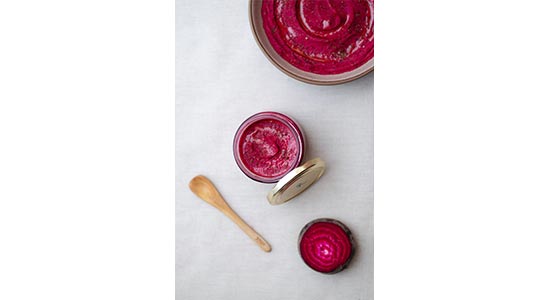
Where do you source your ingredients from as we see that customers’ are growing their interest in locally sourced, sustainable products?
We are the happiest to see this wave of demand already grow, with people wanting to buy local. Locally sourced sustainable products are majorly free from chemicals and grown organically/ sustainably. We at KNEED follow the same values and source our products locally from different local brands & farmers markets that suit our requirements. Like our flour, the most important ingredient for any bakery, comes from TWF. Which is the world’s first flour company that provides unbleached & unadulterated premium flours which are ground fresh on order, based out of Noida, UP. Like this, we have tie-ups with Organic brands like Organic Tattva , Organic Pure & sure and so on to meet our daily KNEEDS.
What’s your expansion plan?
As of now, we are building awareness about KNEED and in the future, we are planning to venture out in Vegan experiential dining under the name of “THE KNEEDY TABLE” and also have an all-in one store for all artisanal bakery needs, from flours to tools and special equipment’s under the name of “KNEED ESSENTIALS”.

Inviting people crossing the streets with happy colors and cosy interiors, there has been a sudden rise in pâtisseries and gourmet bakery brands across India. Especially in major cities, the bakery business is on a rise moving ahead from mom and pop neighbourhood cake shops. As per the website of Expert Market Research, Bakery Industry in India stood at a value of nearly USD 7.60 billion in 2020. The market is further estimated to grow at a CAGR of 8.5 percent between 2021 and 2026 to reach a value of USD 12.39 billion by 2026. But veterans believe that the Covid scenario changed the whole aspect of having a cup of coffee with freshly baked cakes in bakery outlets.
Talking numbers, the average profit margin for a bakery depends on the overhead and materials cost of producing bakery goods. But, bakery owners should make at least a 30 percent profit margin to cover operational costs and earn income. A speciality bakery that uses more labour-intensive techniques and high-quality ingredients to produce goods could make a 50 percent profit margin or more with a price markup of 100 percent. In normal cases, the bakery businesses mostly depended on walk-in customers, because guests would like to have their cakes and pastries at the shop. But with life moving towards virtual reality, can patisserie businesses survive the online battle?
The online gameplay
Aditi Handa who owns The Baker’s Dozen brand feels that the pandemic triggered the digital and e-commerce turning point, hence the bakery business and pandemic bakers witnessed great success and growth considering the business model had to be all digital to help mitigate the economic downturn caused in the situation.
“One of the reasons is also the change in consumer habits and preferences, as we were confined to our homes, we have gotten used to receiving our products at our doorstep. Besides, with work from home, consumers were also finding joy in experimenting with their daily essentials and indulgence, while keeping a check on their health, this further helped online Indian bakery brands and bakers to grow and simultaneously widen their product portfolio,” she added.
Adding to Handa, Shivan Gupta, Founder of Cafe Monique commented that pâtisseries, in general, have always had a soft corner in people's hearts, from their being their go-to place for desserts to being their comfort space in times of stress and anxiety. The pandemic might have impacted the business temporarily but with the changing industry dynamics, pâtisseries have evolved and established their online presence.
Advantages of going online
The reasons are very intriguing and made a lot of positive impact on the growth of the food industry. The online business generates more sales, as this helps in catering to a wider audience through digital presence.
“Higher on demand ordering facilitates and smoother availability of the products which results in better customer experience. Also, there are hassle-free customisations. Businesses get 24/7 business which eventually boosts their revenue and allows a person to order at his/her convenience without any physical effort. Patisseries businesses make exciting offers, promotions for the consumers and also messages can be conveyed at one click of a button. Due to the pandemic, it is an easier way of communication and avoids unnecessary public visits,” Chef Arjun Sethi, Co-Founder of Kneed listed out some advantages.
People further have an option of subscriptions as they can enjoy hassle-free deliveries by placing orders for a longer period of time. This ensures customers retention and makes it easy for customers to enjoy baked goods on daily basis.
The sudden growth of patisseries
There are multiple factors behind the sudden hike, one of the primary reasons being the quick and easy purchase process with brands being accessible on various marketplaces. The second driving force is the desire for visually appealing baked products, today the consumers are not just looking for treating themselves but also how they can optimize the “instagrammability” of their consumption/ordered products. Lastly, customers are seeking authentic and products with high-quality ingredients with a desire to pick a healthy lifestyle and indulge in guilt-free consumption on a regular basis giving rise to vegan options.
The Baker’s Dozen for instance is experiencing a phenomenal success rate, at their recently launched experiential store ‘The House Of Sourdough’ in Delhi. “We have already touched 250 percent growth this year earmarking the revenue of INR 17 crore and we further expect this to go to INR 30 crore by the end of the coming year, and 100 crore by FY25. We are right now serving our country with five brand experiential stores and approx. over 40 micro fulfillment units, our future plan to expand this network is to enter the North market in the coming year with six more stores and close the final presence tally to 100 stores pan India in the next 8-9 months,” Handa informed.
Cafe Monique has also experienced a massive amount of growth since May after they initiated during the peak time of the pandemic.
However, physical business is here to stay with people wanting to spend time in bakeries which has given a rise to the launch of many high end, up scale patisseries across cities. Bakery-turned-cafe Honey & Dough still believes in the traditional business as the company didnt witness a good response through online sales. The brand has decided to expand through a physical route aiming 30 outlets by 2022.

Dhruv Lamba is the 3rd generation leader in the family business that was started by his grandfather Peshori Lal Lamba 60 years ago when he first opened the Kwality restaurant in Connaught Place. Today, Kwality Restaurants has become a name synonymous with north Indian cuisine. A Bachelor’s in Business Administration from Les Roche, Switzerland, he has taken on the task of streamlining all company functions and re-organizing company cadres to implement best business practices within the company. He has also setup a bakery café Bread & More few years back and since then there is no looking back. Excerpts from the interview:
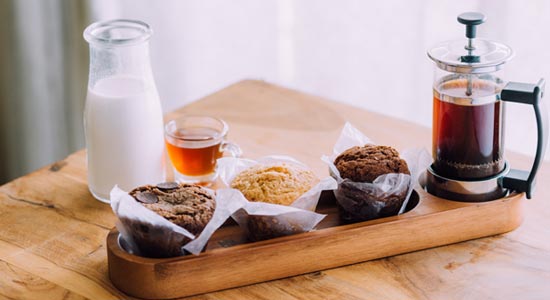
How it all began?
When we launched Bread & More, we had spread out too fast. Eventually, we realized that the segment is too niche and it’s a specialized industry. So we decided to consolidate. We are not a mass brand, we developed our USP and narrowed it down to the target audience we wanted to cater to. We select the areas where we know the people will understand the brand and products. With over 80yr of legacy and history in the food business, Kwality has expanded and multiple restaurants across segment. It operates 17 restaurants and retail ventures including two in London.
Also Read: Finding the perfect ‘Loaf’: The sourdough revolution in India
Running a restaurant business is not everyone’s cup of tea if we look at the numbers of closures, you being a 3rd GEN restaurateur what changes you have done to your restaurants?
The hospitality business runs in the family’s blood. Started by my grandfather, then my father, and then was passed on to me and my brother. It has been in our DNA. We knew we had to manage our family business and we have been excited about it since our childhood. My brother went to Cornell and I went to Les Roches which are the best hospitality schools. We knew that we had to take it forward and excel in it. Over the years, there have been many changes that we introduced to our restaurants. Technology has really made things easy for us. From the administration level to maintaining stock it has made our lives easy. We can monitor things easily sitting at any corner of the world. Various systems like SAP, POS are all integrated into our main software to keep a check on sales, raw materials, inventory, etc. With everything sorted, we can then focus on expansion and running the business smoothly.
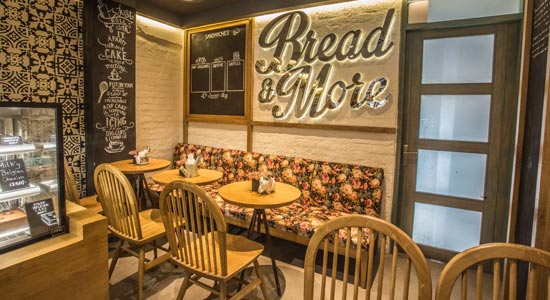
Delivery as a game changer
During the pandemic, there has been complete lockdown and no one was coming out. Our delivery business took a boom and it has really helped us sustain in this tough time. Dine-in has really picked up in these last 2-3 months and we are making sure that we are following all precautionary measures, maintaining distance between tables, testing our staff every 10 days. People are very cautious after the second wave as it created a lot of havoc. They do ask for vaccination certificates and notice what the entire restaurant is doing in terms of their customer safety. Our clientele has a trust factor in the brand and has been loyal to us for a long time.
Talk to us about Bread & More. How has the bakery industry changed in the last 20 years?
The trend is changing in terms of preferences; people have become more aware and are health conscious. They have a better understanding of ingredients and expect transparency about what goes into the product. The terms, gluten-free, sugar-free are understood well. The demand for sourdough and sugar-free products has gone up as our customers are knowledgeable and have product understanding.
From normal bakery products to the sourdough revolution, customers are now looking for value products. Tell us something about innovation you have done at Bread & More.
Due to the constant demand and increase in awareness, we have been working on different varieties. Sourdough bread has been our best-seller even before the pandemic. Our breads are made in special stone ovens and we pay attention to customer’s feedback and their trust in our brand.
Riding on loyalty
Our target is our loyal customers. We make sure that our service is always on point and there is consistency. But, after the second wave, we have seen new customers who had never come to our restaurant before. This is also because of the number of restaurants that have shut down in the vicinity, especially Connaught Place.
What’s the average footfall vs online orders you do on an average?
Our restaurants are dependent on dine-in, delivery, and takeaways. On average, Kwality has 94% sales of dine-in and 6% of takeaway. Similarly, Gaylord Bombay 82% on dine-in and 18% delivery & parcel whereas Bread & More sales are divided as 50% dine-in and 50% delivery & takeaway. With so much home delivery demand, we have been supplying our products through Milkbasket and Dotpe.

Bakery trend to look forward
There has been a demand for a specific product line- Cakes. We have been getting a lot of orders for cakes. People are celebrating more now and things are going back to normal. People are paying more for their daily bread. Sourdough sales have really boomed over the last 2 years. We have introduced 8 bite-size desserts which are healthy and delicious. Nobody wants to consume 300 calories for desserts. With healthy ingredients like dark chocolate, fruits, and nuts, we have made having desserts healthy. Also, we have a range of gluten-free, sugar-free cookies, biscottis, and cakes which are our best sellers.
May Interest: Bakery trends to watch out in 2021
What’s your expansion plan?
We are looking for a large online structure. The cost of the store model is quite high. The rents and operational costs can be a big concern for every brand. Online channels have more reach and we want to reach every part of the city with the right distribution channels.

2020 could be termed as ‘Year of Health Awareness’ and with this awareness we have seen many businesses change its colour. The COVID-19 pandemic has impacted the complete food and beverages industry and bakery industry is one of them. This pandemic has resulted into mass production shutdowns and supply chain disruptions which has also affected the economy as well. Similarly, we have seen that customers have also realized the importance of healthy eating and lifestyle, giving rise to an alternate of normal cake that we have been consuming for ages, and the result healthy, vegan and gluten-free cakes in the market.
Also Read: Bakery trends to watch out in 2021
“It's a myth that one could not get all their favorite dishes with healthy ingredients, Thanks to growing awareness among our audience. People are trying healthy ingredients to make their favorite food. It's an era where customers understand the importance of alternative flours as well, and the best part is it makes zero difference to the cakes,” shared Gunjan Batra of Bakehouse Comfort who has been customizing and baking cakes for customers as per their need and demand. “We are baking Vanilla Cake, Dates & Walnuts, Chocolate cake and more,” she added.
Commenting on the same Namita Zutshi of Namz Bakehouse who started baking during the pandemic said, “Its experimental, and I say all of us, the pâtissiers are amazing, to fuel the demand for healthy vegan cakes there is now a deluge of options right across the board. This truly is the year of mainstream veganism, all the trends and market feedback seem to point towards this, hence to cite one or more of the three principle motives for becoming vegan, animal sensibilities., environmental factors and personal health (the Covid pandemic has put the spotlight on this as never before).”
She further pointed that what is further pushing this trend is the incredible investments by VCs in this space, new business start-ups focusing on vegan products, cookbooks, YouTube channels, events and documentaries. The traditional food industry is desperately trying to catch up with the flourishing grassroots demand for Vegan products.
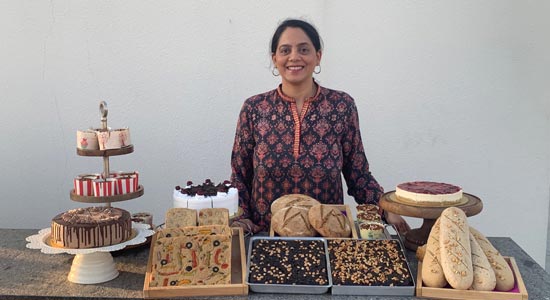
“Veganism or a plant based diet/lifestyle is gaining momentum the world over as it’s better for the health of our planet and is more sustainable. This pandemic has proven that we, as a race, need to make a shift in the way and rate at which we are using/abusing the natural resources, else it's not just more pandemics but other natural calamities may be waiting for us in the near future,” added Nutritionist and Dietician Kanupriya Khanna who is also the founder of Karamele that is all into healthy food products and cakes.
Targeting the right customers
According to a report by Data Bridge, Sales in the bakery aisle sector increased by 62.3% over the week ending March 15, 2020 and it has also been found an increase of approximately 44.3% for combined cookies and crackers in food sector. With people who are inclined towards adopting healthy lifestyle and willing to experiment new, healthier alternatives, these kind of trend is already pushing the growth not just in India but also at the global market.
“Overall, the health and immunity benefits of a plant-based diet are being widely recognised. To that end, even while indulging in dessert, which is traditionally considered sinful, some people look for vegan alternatives,” pointed Pragati Mitta, Chef at L’Opéra that has introduced a range of vegan products that include three flavours of vegan macarons, offered at the same price as the regular macarons at Rs 125.
The bakery café has also produce vegan tarts in chocolate and almond flavours and two kinds of vegan verrines, all of which are priced around Rs 250 to 300. Apart from these they have also recently developed a sugar-free pastry.
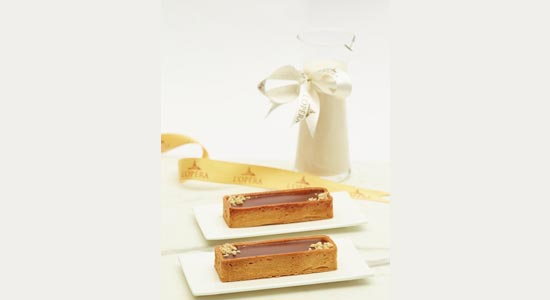
Replacing it with the best
There are variety of Flours like Almond Flour, Oats flour, Ragi flour etc that are nutritious and lends fantastic flavour and taste to the Cake as well. “We use almond, oak, Ragi and buck wheat flour. Also Maida or white flour can be replaced with whole wheat flour. Since whole wheat flour is light, we can add only half the required amount. Margarine and butter can be substituted with apple/maple sauce or prune puree. Refined sugar has absolutely no nutritional value, so we replace it with natural honey, jaggery, brown, raw or Demerara sugar to sweeten the cakes,” added Zutshi whose Almond Walnut Cake which is also gluten free is the top ordered food from the healthier menu.
May Interest: People are bias to old favourites in bakery: Survey
Priced anywhere between Rs 300 to Rs 1000, these alternative options have been attracting not only people who prefer healthy eating but also has become a huge hit among children, families who want to feed their children with new and healthier options.
Similarly, for Khanna, sorghum flour, quinoa flour or oats flour is a better replacement. “We use organic jaggery instead of refined sugar; rice bran or canola or olive oil instead of butter. Our food items are made either with almond milk or coconut milk instead of dairy. These ingredients are not only plant based but richer in nutrients as well,” she added by pointing that her orange cake, carrot cake, plum cake etc are some of the top ordered cakes depending on the time and festival.
Hence, we can say that in years to come vegan, healthier and gluten-free cakes wouldn't be an option, rather it will hit the restaurant and cafe business like any other trend that we have witnessed in last few years.

2020 and the pandemic has given birth to many new concepts, all thanks to the people who were sitting at home, generating some unique ideas and converting it into a concept/model. When we talk about the food industry alone, the pandemic has given birth to many new concepts especially the rise of home bakers and home chefs. One such story came from educationist Namita Zutshi who used to run & manage franchisees of a pre-school brand. Namita always loved baking cakes for her family and it was in July 2020 that she got a kick to transform this passion into a business. “Pandemic was the time when many of us in majority were relaxed.We didn’t have daily schedules or commute rush in mind and people thought that this time can be utilized doing things they have loved for years,” she added by pointing that she now delivers 75 k -1 lac order per month. She has recently tied up with Zomato & Swiggy and through these aggregators expects biz volumes to triple.

Excerpts from the interview with the effervescent Namita Zutshi:
How it all began?
I had a lot of time now as my son is now in college. It was one day that we were just sitting and thought of doing something that was more productive. And, I knew what to do as I have always loved baking for myself and family. Also, I always wanted to do something from home. This was the combination that allowed me to do something while being at home and a passion that I have enjoyed doing for a couple of years now.
Also Read: How promising is bakery franchising in India?
What was the motivation behind Namz Bakehouse?
It was in the July last year that my husband; Mr. Sanjiv Zutshi who himself is working as Chief Operating Officer for a K 12 school franchise Chain encouraged me to do it professionally. Also, my in-laws were very supportive in bringing this concept live. And, luckily it has been doing well and that’s very encouraging for me taking baking as a profession going forward.
The first order
I remember last year I baked a cake for my husband and just after two days one of the people who saw it on Facebook asked me if we take orders. And, that’s where t started. My response came as Yes although I was not doing it professionally or taking any orders. When things have to happen, your minds go in certain ways and that’s how Namz Bakehouse came into being.

Baking sweet success
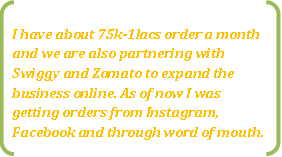
What are the different varieties of cakes you do?
I love doing Fondant cakesthatcome between Rs 3000& more, specialty cakes that is anywhere in the range of Rs 800- 1000, and healthy cakes that comes for Rs 600-800.
How is the delivery managed as you haven’t partnered with any online aggregator?
I have two drivers and dedicated cars for the delivery of fondant and cream cakes order’s but if I have a order for healthy cakes and dry cakes that goes in two-wheelers as we have our dedicated biker’s also. We haven’t tied-up with any third part delivery as we make sure that the cakes is delivered in its true condition, with no damage.
How has been the experience?
The journey was beautiful and was little unexpected. Everymonth I had a doubt that how would the next month go but God has been very kind and I have been keeping very busy. And, it was somehow better than what I expected.

High on expansion
I am also trying to get a chef now as I am expanding the business on Zomato, Swiggy because online orders won’t give much time to prepare a cake and I won’t be able to do that single-handedly. I will be taking a professional chef and not a home baker because I am very focused on designing and finishing of the cake.
USP of Namz Bakehouse
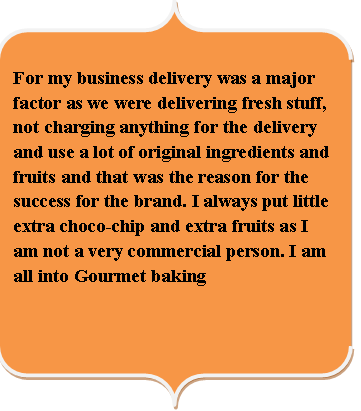
Top trends in Baking
I think hygiene and healthy cakes are the biggest trend going forward. The cholesterol free cakes, diabetic free cakes etc will rule the sector aspeople are very health conscious now. Also use of locally sourced material and seasonal products.

Food happened by accident to Chef Gauri Varma who had a terrible personal experience back in 2013, despite taking all the measure and steps to ensure that the end product was what she wanted - this was a massive fail which got her thinking that there is a huge vacuum in this industry between what she wanted and what she got to add. Excerpts from the interview:
Also Read: How this French-bakery chain has approached to the Covid-19 situation
We see that Indians have matured when it comes to consuming bakery and bakery products. What has given this sudden change in consumption?
Bakery has always been a part of our daily needs since the inception of this industry - it's one that has grown out of need - for instance we have always had bread and cookies with tea as far back as we can remember. It's become bigger, gotten more recognition and more people who have genuinely realised the importance as well as the necessity of this sector. Today it is the fastest growing segment within the industry. Also, with the increased exposure to netflix, movies, amazon prime and in general being one of the youngest nations in the world - we have a long way to go - but the road ahead looks promising to say the least.
Tell us something about G’s Patisserie and confect. With whom you are competing in the segment?
To be honest, my biggest competition is unregulated imported products that are coming into the country - products in this segment are being imported for more than a decade and sadly trading companies and not brands are establishing this industry's benchmarks. I’m in the cake decorating raw materials segment today and the reason was that there are only SUBSTANDARD products being sold even today products that are not fit for our weather storage or environmental conditions; the battle is against 'imported better'
From chefs like Pooja Dhingra to Vinesh Johnny, who have completely changed the bakery industry in India. What new innovation can we see from you?
Like them I too have made great strides in ensuring we get an international standard quality product within India for this industry. I have managed to successfully stand tall against most of the leading importers and have been voted as the best product in the country in my segment. I run India's only chef headed manufacturing company of bakery and confectionery cake decorating ingredients. We are doing a better job quality and safety wise than any other in the segment in the country. I would be the first chef to put India on the map for exports within this category of product.
What according to you would be the biggest bakery trend in the near future?
Cakes for every occasion, we would creep into the mithai and traditional India sweets segment and soon see bakery items in each and every kirana store
When did you know that you wanted to be a bakery queen?
It's humbling to be nicknamed the fondant queen in India - I strive towards a good product and quality - something I find safe to feed my own child. I feel I am on the right track but still have a long way to go.
What are some baking tools that pastry chefs can't do without?
So many! My set of palette knives would be the first followed by my rolling pin - since it is something I use the most!
May Interest: People are bias to old favourites in bakery: Survey
How has the pandemic affected your business?
The pandemic has grown the business, more home bakers have risen during this year. People want a quality product today and don't want to waste money on gimmicks or just cheap alternatives. There has definitely been a shift in the mental focus as far as consumers are based and it not always 'cheaper is best' home bakers as a segment has risen the fastest in this industry
What’s your plan expanding the brand?
Dominate each state and then export worldwide.

With the COVID-19 lockdown gaining steam, many people started learning new hobbies and skills. One that witnessed a huge spike among the young generation was baking.
Even before the pandemic, many had let go their cushy jobs to follow their heart and whip up breads, cakes, desserts and more. A humongous change in consumer habits and lifestyles has shaped the baking industry in India. One of the largest segments in the food processing sector, baking, is witnessing a robust growth recently. There has been a proliferation of bakery chains and a myriad companies that offer baked products alongside a line of biscuits. With huge growth potential, capacity for innovation, and job opportunities, a career in the industry is rapidly becoming more feasible and rewarding in India.
Also Read: How bakery industry is innovating during the Covid-19 pandemic
Some of the different types of breads that are mostly in demand are :-
Sourdough Sandwich Loaf: Sourdough sandwich is a bread which is completely yeast free. There is yeast in this loaf, but it's the wild kind, seduced from the air around your kitchen by the flour and the water and by the potent chemistry they create together. Research shows that the healthiness of white sourdough bread far exceeds that of wholegrain and multigrain breads. That's because sourdough has a powerful effect on blood sugar: when left to work its fermenting magic, it breaks down the starches in the foods it's added to, making them easier to digest. Sourdough is also probiotic, which means it is packed with healthy gut bacteria
Sesasme Semolina Sourdough: Delicious nutty semolina sourdough bread made with golden semolina and both black and white sesame seeds. It goes well as toast with butter or jam. Semolina is one of the most common ingredients you can find in Indian kitchen. Yes, we make breakfast with it. Earlier I have tried bread with Semolina too. But I didn’t try it in sourdough bread. Finally, I decide to make semolina sourdough bread. I love the nutty bites semolina gives to bread along with sesame seeds.
May Interest: How Varun Tuli of Yum Yum Cha is baking success with his new venture
Spiced Ragi Sourdough Loaf: Sourdough bread made with non conventional flours is nutritionally superior. The wild yeast strains that make the sourdough ferment the dough to release nutrients that are otherwise difficult to get from our food and we often have to resort to supplements. Sourdough breads could be that supplement if we bake the sourdough breads with millets of different types. I have always been saying on this blog that we must include several types of millets in our diet for better reasons and not just to stay away from excessive gluten.

L’Opéra, the French Pâtisserie, Boulangerie and Salon de Thé (Tea Room), which is known for bringing the bakery and pastry flavours of France to India launched its sixth Salon de Thé and the first-ever outlet across two floors at Basant Lok, Delhi.
The event was inaugurated by H.E. Emmanuel Lenain, the Ambassador of France to India on Saturday. The launch witnessed over 100 guests including Ambassadors, personalities from the world of business to arts and fashion.

Located in the heart of Basant Lok (Priya Market) and situated close to various embassies in Vasant Vihar, it is an authentic French style Salon de Thé spread over two floors that can accommodate up to 42 seated guests. The mezzanine floor comprises comfortable seating arrangements featuring leather-like sofas, bar chairs and tables that lend an elegant touch to the space.
Fitted with Louis XVI style furniture in carved wood and marble top tables adorning carnations in pastels, the outlet exudes Parisian refinement. From the beautiful chandelier to the framed portraits on the wall depicting the city of Paris, everything adds to the plush décor and ambience. The glass mirrors make the space look virtually bigger while the woodwork accentuates the walls. Meanwhile the stunning pendant lights over the counter make the space even brighter and livelier.
Kazem Samandari, Executive Chairman, L’Opéra said, “L’Opéra is becoming bigger and even more beautiful with each outlet. It is overwhelming to enter the Basant Lok Market with a two-floored outlet. We will also have our outlet in Civil Lines and our first-ever outlets in Mumbai and Chennai coming up very soon.”
He further added that by the end of the current financial year, L’Opera shall operate over 20 outlets in Delhi-NCR.
At the event there were various ambassadors and eminent personalities of the town including the Ambassador of The Czech Republic, H.E. Milan Hovorka, the Ambassador of Greece, H.E. Dionussios Kyvetos, the Ambassador of Chile H.E. Mr. Juan Angulo, Ambassador of Columbia H.E. Mr Alvaro Sandoval Bernal, Deputy Chief of Mission, South Africa Mr. Ben Joubert.
"From doing our initial product trials in the kitchen of the French Embassy to opening over a dozen outlets and a production facility in Noida, we have always worked towards making the brand one of the best French bakery and pastry chains in India”, says Laurent Samandari, Managing Director, L’Opéra. “There are so many achievements we had along the way such as making eight thousand macarons for a wedding, catering for the international Formula one race, hosting the MBA students from Oxford University at our production facility which keep us all motivated,” he added.
At L’Opéra’s Basant Lok outlet, one can enjoy the aroma of the freshly baked croissants, artisanal breads and a whole range of traditional French specialities wafting through the air. The menu caters to a diverse range of food palate. For those looking for classic French quick bites, there’s Croque Monsieur (made with in-house bread and filled with béchamel sauce, ham and cheese), Vol-au-Vent, Onion and Tomato Tarts with Goat Cheese and healthy soups such as Pumpkin and Coconut Milk soup. Partake in the newly-launched products such as the brand’s maiden Vegan Range, Chocolate Tart and the much loved Orange and Almond Tart that one can pair with an impressive selection of juices and freshly brewed coffee, teas and infusions while soaking in the beautiful ambience.
La’Opera also offers a gourmet breakfast menu that features classic French breakfast options such as French Toast with organic honey, fluffy French omelette with luxurious fillings and hot croissant sandwiches to name a few. For the health-conscious, there is a range of fresh juices, cereal breads, eggs and salads, organic granola served with yoghurt and choice of milk and heart-warming vegan soups that are wholesome and make for a delicious substitute. With this, the brand hopes to reach out to a wide customer base.

Within a short span of two years, Indian consumers have created many new trends in the bakery industry. Today, people are moving away from the conventional, tiered and typically decorated cakes and are opting for personalised and thematic cakes, something that brings out their individual choices and personalities. Cake-related trends have diversified in the past two years with the customisation and dietary preferences playing a big role in defining peoples’ choices. A decade ago, the concept of a vegan cake was considered absurd. However, this choice is easily available now to the average Indian consumers.
Also Read: Top Food Catering Trends At Indian Weddings For 2019
2019 is going to be an exciting year for the bakery industry as old trends evolve and new trends set in. The market will be flooded with different trends such as vegan cakes, thematic cakes, non-cakes such as doughnuts or cupcakes, and a lot more.
The new-era designer cakes are set to be more in demand because they are more personalized and, hence, more appealing to the consumers. The designs themselves will no longer be limited to mass appeal but will become more individual-centric.
There’s such diversity among cakes that it requires its own specialization. Hence, listing all different types of cakes in one breath is impossible. However, some cakes which are becoming increasingly popular with consumers are semi-naked buttercream, metallic, the ‘toppers’, lace, printed wedding, Indian motif, inky black, doughnut, floating-tiers and understated textures among others.
Consumers are well versed with this miscellany, and expect authenticity and expertise when placing an order at the bakery.
Bizarre elements associated with the consumption patterns in the bakery industry, especially when it comes to cakes, are commonly observed from the perspective of wastage. In the hospitality industry, bakery section always sees more wastage of food. Once a cake is cut, if it is not consumed wholly, the remaining chunk has to be thrown away.
However, today people especially in the urban settings are more conscious about food wastage and tend to order only in the required amount. This type of conscious consumerism naturally gives way to newer trends which offer more personalization such as doughnut cakes, vegan cakes, mini-cupcakes, etc.
Instead of classifying this trend as bizarre, it should be promoted as a sustainable approach which is beneficial for the consumers as well as the businesses.
Kunal Rai is the VP, Weddings & Events, at Tamarind Global Weddings and Suchit Mahajan is from Deliciae Cakes.

Suraj Bahirwani realized at an early age that his passion lied in entrepreneurship. At the age of 17, he dived into the world of exports by starting a small venture in the name of Eternal Mark Pvt. Ltd. in Hong Kong. In this humble beginning lied many lessons that he quickly learned and used it to his advantage. His company Eternal Mark Pvt. Ltd. & Emcorp Pvt. Ltd. has now been in business for over 20 years with 100s of satisfied customers worldwide which are from India, East and West Africa, Europe, Russia and the USA.
Suraj has now put his footsteps into the arena of the food and beverage by launching Papparoti in Mumbai with his new company N.K. Hospitality. With years of experience and a knack of understanding of the industry, he feels confident that this venture will echo the success of his other projects.
In an interview with Restaurant India, Suraj Bahirwani, Co-Founder, Papparoti, shares what made him bring the brand concept to India.
Being the Founder of Papparoti
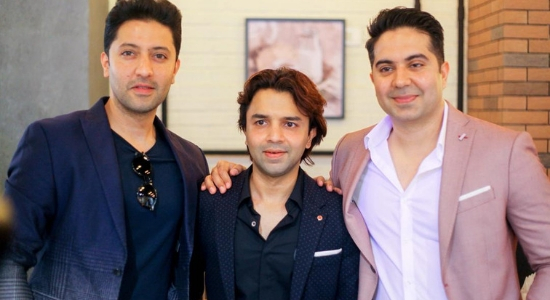
Left to right- Kunal Jethwani , Suraj Bahirwani and Nitin Jethwani (Co-founders of Papparoti)
The first time I bit into the Papparoti bun in Dubai, I always knew that I had a winner and had to bring this to India. It was a lot of hard work and took up a lot of time dealing with Papparoti Malaysia and Dubai, finally getting the brand into India is like a dream come true, but this is only the start though, we have a long way to go.
Papparoti Concept is Different from other Cafes/Kiosks in the Market
Along with our wide variety of coffees and signature teas, we have a unique and delicious bun concept. Our USP is our quality of buns which are exactly the same from Malaysia to Dubai to India and everywhere in the world. Our motto for the buns speaks volumes "every bite different expressions".
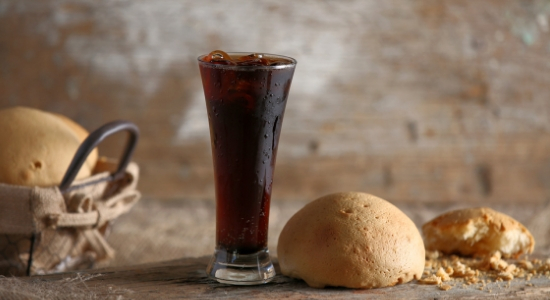
Cold Americano with PappaRoti Bun
All 400 plus outlets in the world serve exactly the same buns which are exported out from a kitchen in Malaysia to every cafe around the world.
We are the first players to get the fancy bun concept into India.
Besides, Papparoti is the first cafe to have a strong focus on food. We have an in-house kitchen team that serves freshly-prepared pizzas, pasta sandwiches and more, unlike other cafes who serve ready-to-eat items.
Also Read: How New-Age Bakery Café Is Addressing Millennial
Papparoti’s Competition in the Industry Segment
The F&B sector in India will always have high levels of competition from domestic and international players and when we arrived we were ready for that. Our strength lies in our uniqueness, excellent brand name and a wide range of products.
Home-baked Snack Industry in India
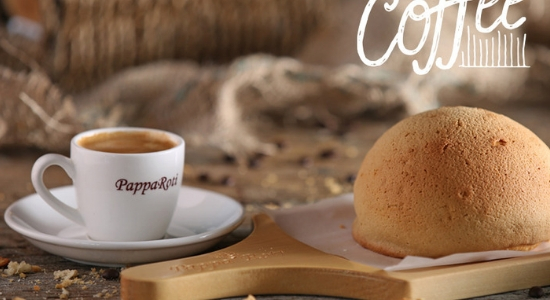
Milk Tea with PappaRoti Bun
India is among the fastest-growing emerging markets. The snack segment in the F&B industry is growing very rapidly in India, at over 20% annually. We are very confident about our product as the bun and chai concept is Indian by heart and, honestly, the consumers really care about is - taste.
In pics: Bon Appétit! 8 Best French Bakery Cafes In Delhi-NCR
Growth and Expansion Plans of Papparoti in Next Two Years
Currently, we have one store in Mumbai, one in Hyderabad and two in Chennai – a total of four stores. We will launch a store in Pune by the 2nd week of March followed by two more stores in Bengaluru in April. We plan to open a few more stores in metros and slowly move to tier 1 and tier 2 cities. We plan to have about 12 stores by the end of the year and about 25 by the end of 2020.
Franchise Partnership Model that Papparoti Currently Follows in India
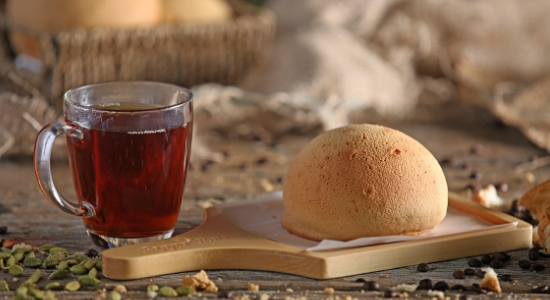
Black coffee with PappaRoti Bun
Currently, we are following the supply chain model. We charge a fixed franchise fee plus remuneration on sale in return of our brand value, know-how and expertise.
Key Points for a Potential Area Franchise Partner of Papparoti
Main points we consider for a potential franchise partner are Capital Availability, Locations, Passion for the Business and Scalability.
Franchisees Can Miss These Things Due to the Lack of Expertise or Unawareness
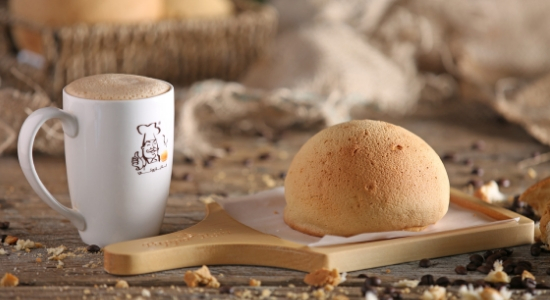
Milk Tea with PappaRoti Bun
What franchisees often miss, as they add locations and grow their portfolio, that accounting and reporting for a multi-unit franchise; it is altogether different from the accounting for one business. We often see newer multi-unit franchisees miss opportunities to operate more effectively because they don’t look at each location as a standalone profit centre, with the ability to share management expenses.
Biggest Mistake from the Incoming Franchisees and How To Avoid it
We want to work with new franchisees as a team. The problems a new franchisee might face are something we have already been through. So, a new franchisee should not be afraid to take our help and communicate. Our support, expertise and company resources will be extremely helpful to the franchisee. Secondly, the potential franchisee should learn to walk before he starts to run.

Dubai-based leading French bakery and Restaurant Pascal Tepper is all set to mark its debut in India with World Iconic Brands.
WIB or World Iconic Brands is a specialist franchise development company in India. Five-generation-old brand, it is a modern dine-in bakery and the brainchild of master baker Pascal Tepper who holds the 'Meilleur Ouvrier de France' title, a much-coveted recognition as the best French artesian in the baking trade.
“I have everything to discover from INDIA and INDIA to much to discover French bakery through Pascal Tepper French BAKERY; We have a franchisor and you have a very good future in INDIA do not let it go, work together hand-in-hand and together make Pascal Tepper French Bakery establishments coveted by all INDIANS.”
~Pascal Tepper
In a tête-à-tête with Restaurant India, Siegfried Nierhaus, Managing Partner and Founder of PTG Consulting, talks about the contemporary dine-in bakery concept, and the growth and expansion plans of Pascal Tepper in India.
Pascal Tepper, the French Dine-in Bakery and its Presence Across the World
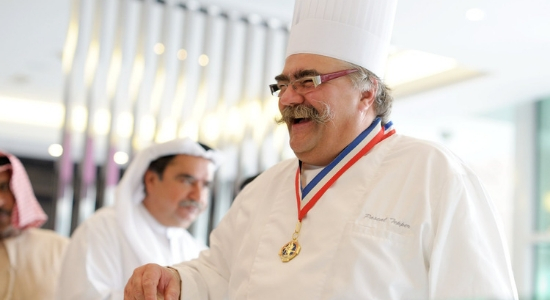
'Meilleur Ouvrier de France' Pascal Tepper
Pascal Tepper is a contemporary dine-in bakery concept. It is a mixture of best French bakery products and also serves other food and beverages dishes - from starters to retail items. Baker Pascal Tepper is the brand owner; he is recognized by the French President for being one of the best bakers. And that’s why the title 'Meilleur Ouvrier de France'.
Finding Right Partners
We started with Dubai in 2011 with the dine-in bakery. It was a phenomenal success. It is based on quality, consistency, value-for-money and a mix of a nice story which baker Pascal has brought to the fore with the bakery. The idea was to bring the concept out to the world.
We started in the UAE; we have five outlets there. A Pascal Tepper outlet requires an area of 10 to 600 metre per square; it varies. From the food truck concept to a fully-fledged dine-in bakery - we are serving throughout the day from 7 am to midnight. We have catering, dining and takeaways at Pascal Tepper. In UAE, Pascal Tepper is quite successful. After approximately seven years, we think it’s time to roll out the concept globally.
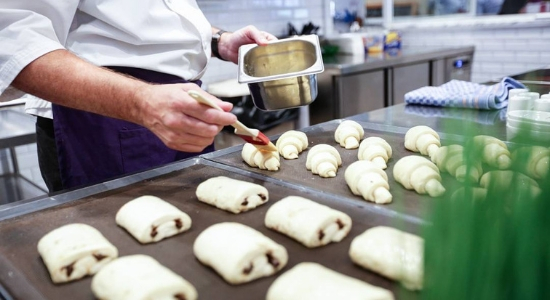
We are considering a lot of countries, but we are expanding with India first. It’s the first time that Meilleur Ouvrier de France is coming to India with his own concept and restaurant.
The Indian market is quite big. India is changing a lot these days because of the travelling possibility Indian community has. The exposure through travels had made Indians more conscious, and, therefore, we see a lot of business coming up in the country’s market.
The key is to find the right experienced partners in different parts of India, who are fulfilling our quality expectations.
I believe there is a big potential for our concept of different sizes in 5 to 7 key cities. The ambitious target is to have opened the first outlets in 2019 and have in total six outlets opened in 2020. A total number of 50 outlets in 10 years is our target.
High Rent Is The Major Challenge in India
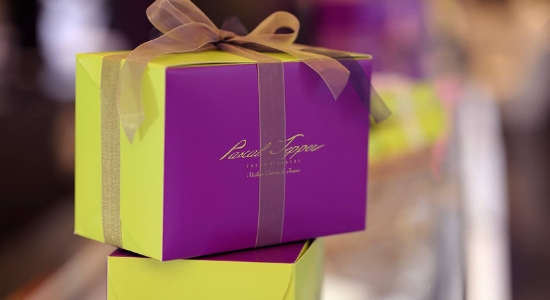
A major challenge in India will be the high rents. When you want to position yourself as a top range, as a high-end dine-in bakery, you have to be in a best-possible location. And the best-possible location costs a lot of money.
We are here to make all the stakeholders, the staff and the guests happy. There should be a financial gain to the investors as well.
Our next challenge will be to maintain the quality and consistency in India. We want to produce maximum inside the country and not import the products.
Indian Market for Pascal Tepper
India is always been very intriguing to me – its culture, history, scale and its “Gastronomie” with all the flavours and spices. Every time it is almost like arriving onto a new planet, and while India has always had a culinary influence on the world, its economic and cultural influence is growing. The country represents a large market with consumers who are curious about the world around them, and who are willing to try new concepts and cuisines. So it’s a very promising time to be here. France is a very popular tourist and business destination for Indians so the French cuisine and savoir-faire is not a secret anymore to some Indians. It is time now to bring to India the “Best French Baker” recipes and produce the best possible French bread on site and develop an exciting F&B concept for the ever demanding and growing population.
Pascal Tepper’s Growth Strategy in India
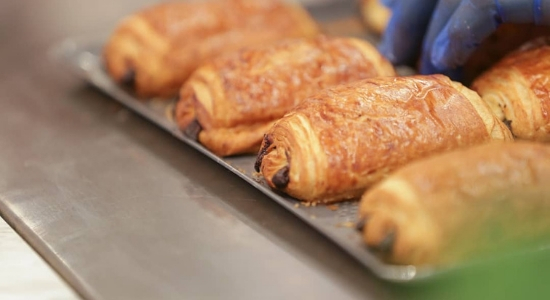
We believe that India has a great potential for our Pascal Tepper French Bakery concept, because of the enormous market and the local production with the available ingredients. If we succeed in this amazing and exciting challenge to develop with our partners a successful Business Model and quality and consistent Food and Beverage outlet, we will be able to develop almost everywhere globally.
Ideally, we should have in every big city our Flagship bakery and restaurant outlet, 3 to 10 smaller bakeries, some Food Kiosks and a Production kitchen.
We could start as well with only the flagship bakery and restaurant where we will produce all our food items and specialities on site.
Marketing Strategy
We want to position our concept as a casual dining Bakery and Restaurant. The Baker products should be the best in the city as we are carrying the best French baker title with us in the brand and the name Pascal Tepper stands for Quality and consistency. Pascal Tepper itself is one of the most “French-looking” bakers with his unique moustache and customer will recognize his face very soon. Our customers will be able to choose from Dine In, catering, delivery or take away and we want to communicate properly on the different ways of receiving Food or beverage items from Pascal Tepper French Bakery.
Money to be Invested?
I think the most important for our brand is to bring the “Know how” of running successfully Food and Beverage outlets, bringing the recipes and savoir-faire of our Menus, the training techniques for the future staff, the brand and its Values to the destination. We will leave the money invested to the professionals and Indians who believe in our brand.

Each year, the bakery landscape constantly alters itself to meet the consumers’ demand. Health is an individual’s foremost priority and so, vegan, gluten free, trans fat free, cholesterol free, preservative-free foods are some of the options people consider while making their food choices. Baked goods, specially creamy pastries, feather light puffs and artisan breads are a foodie’s favorite.
Some bakery trends that will be shaping 2018 are:
Edible toppings: Edible flowers, candles and other 3-D designs on cakes and cupcakes is a trend to celebrate special occasions. Many supermarkets have introduced their own selection of edible flowers with varieties including candied crystallisedrose petals, marigolds and pansies.
Vegan Cakes and Bakes: With the number of vegans rising, the trend for vegan cakes and bakes is seeing an increase this year. Also, the ready availability of ingredients and specialized pre-mixes makes it effortless for the baker to deliver to the choosy palate!
Doughnut fillings: Chocolate doughnuts, sugar glaced ones are so passé. Coconuts, colorful sprinkles, fruit based fillings, various colored and flavored chocolate glaces, crunchy toppings are ways in which chefs present their imaginative side.
Dessert Tables: From weddings to birthday parties, popularity of dessert variants are on a high this year. Instead of one stand-alone cake, the bakery business is set to see a variety of fancy sweet-treats on the plates. Macaroon towers, cake pop stands, cupcake platters, chocolate fondues, petit fours, bite sized samplers and making a comeback.
Buried in berries: People are obsessed with berries these days. Blueberries, strawberries, mulberries, raspberries, are doing the rounds on different dishes these days, be it cakes, ice creams, etc. When it comes to cake decoration, berries add a stunning finish to the look of the fancy cakes. An avalanche of juicy berries will be the easiest way to add an elegant, modern touch to a classic vanilla sponge or simple layer cake
Loafing around: It is noticed that bakers are more curious than fearful of yeast dough these days, with the realization that bread making is more than a well risen loaf. On bakers to-‘dough’ list these days are sourdough specials, babas and brioches and anything from a panettone to a panini is preferred and can be just as pleasing as a pizza, pita or a paratha. For the baker, the world is a global village where a
New wave Cookies: Cookie making has seen broader horizons this year with the use of alternate flours, flavors and techniques. We’re seeing jumbo cookies, gooey cookies and a return to the favored choc chip variety, but far less sweet and with far more complex flavors and textures. The ideal byte for todays on-the-go, time-strapped generation.
Botanical Flavors: Floral notes of rose, lavender and hibiscus will be making their way into 2018 baking, alongside savory flavors from thyme, rosemary and basil. Added flower power brings an enigmatic and subtle botanical flavor to everyday baking, transforming a middle-road chocolate, vanilla or berry cake into something truly outstanding. Top tip – lavender and vanilla is a divine combination, but go easy on the lavender otherwise your treats will risk tasting soapy!
Baking is fun and with ready availability of ingredients, new techniques, interesting packaging ideas and attractive, inviting presentations make 2018 an exciting year to look forward to. These trends will surely transform baking making it a cakewalk for the innovative chef and offering exciting, inciting and inviting options to the fickle and finicky customer. Happy Baking and Bon Appétit!

While key disruptive trends are impacting the food industry, with how food and cuisine changes are happening in foodservice, well-known Pastry chefs & Gourmet masters have set a benchmark with their style of cooking and thus their businesses are much scalable in the Indian market.
The food and beverage industry is undergoing change not seen in decades. Confluence of megatrends is leading to disruption and innovation that is set to change the industry and consumer choices for a long time to come. The Food Service sector globally and in India is also adapting to these trends.
These Chefs turned Foodpreneurs have observed the global and Indian industry from a unique vantage point. Read on to know more about their journey:
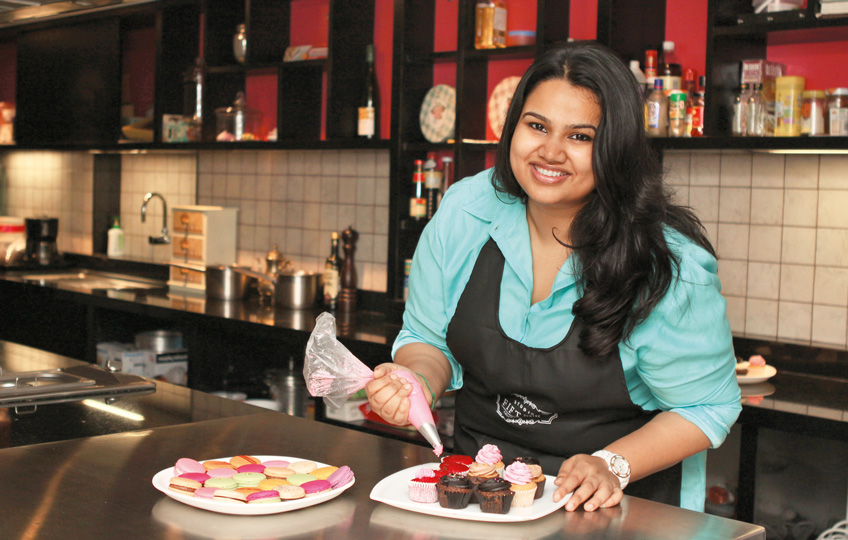
“The Baking Success”, Pooja Dhingra, Founder, Le15 Patisserie
Her obsession with desserts made her dream turn into reality and as a High-End Pastry Chef, she is the leading the Macaroon business today.
Talking about the evolution, Pooja Dhingra said,” When living in Paris, I became familiar with French pastry & desserts and realized its absence in the Indian market. It was my dream to bring my Paris experience to Mumbai.” That’s exactly what led her trademark Macaron business flourish in the niche Indian market.
When we started 8 years ago, Pooja continued,” There weren’t too many standalone pastry shops. No one did French pastry the way we are doing it today. Our branding, packaging and even our marketing stand out differently in the market.”
I think there is a great evolution where customers have become more open to trying new things. Indeed, an opportunity for Chefs and Restaurateurs to change their product line and be in this exciting place right now.
For us, Pooja added,” Consumer experience is very important. Not only from the product that they eat but also the interiors & exteriors of the store matters much. Also, much attention is paid to how every aspect of the business is consumed.” For any chef, paying attention to these details adds up the value in their business.
With Chefs like Pooja Dhingra, Le 15 Patisserie led this whole revolution and disrupted the Indian Pastry scene.
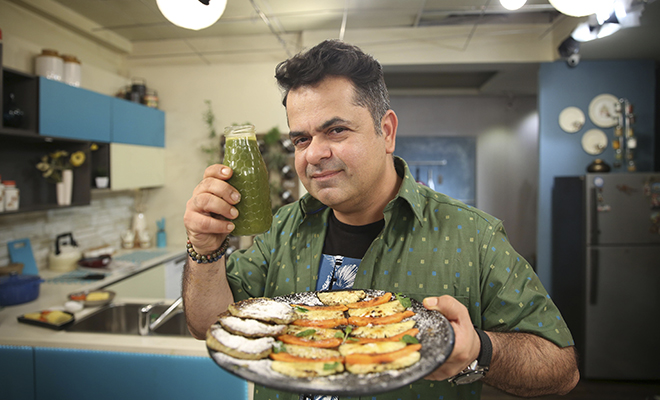
“Consumers are the King”, Vicky Ratnani, Celebrity Chef & Consultant
Talking about his journey Vicky Ratnani goes back to his cooking days abroad where the voyages were about cooking for large numbers yet for fine dine & large scale meals. It opened doors to new languages, working with 37 different nationalities, cooking a new menu every day gave me a sense of satisfaction to work with different kinds of produce.
“The more you live in India, the more Indian you get”, said Celebrity Chef Vicky Ratnani and that’s exactly what brought him back in this space and elevate his experiences in the Indian Market. He continued by saying,” In this interesting journey, you will find yourself adapting your international exposure and sharing it at the same time with local people. Likewise, working with farmers, with the seasons has been an integral part of my life.”
One of the first Chefs in Television, Vicky taught beyond local ingredients and educated the audiences with his unique and simple cooking methods. Vicky exclaims,” It’s been a journey of learning, experience, restauranting and communicating with people on a different bandwidth.
Commenting on the much-awaited disruption he said,” Disruption made the Indian food much more popular in different countries. The depth at which people are getting hyper-local, working with sustainability and clean eating, has gained a wider acceptance in comparison to the past.”

According to an analysis by apex industry body Associated Chambers of Commerce and Industry of India (ASSOCHAM), the quick service restaurants (QSR) sector in India is currently growing at a compounded annual growth rate (CAGR) of 25%, and is likely to touch the Rs 25,000-crore mark by 2020 from the current level of Rs 8,500.
By 2020 it is expected that 35% of India's population will be in urban areas by 2020 totaling to 52 crores compared to the current urban population of 34 crores.
Thus the business unfolds endless opportunities for the budding restaurateurs and entrepreneurs, who want to make their mark in the restaurant business.
Here are a few business ideas, which can be explored in restaurant industry:
Café:
According to a report by Technopak Advisors, a consultancy firm, the per organised café market in India, which grew almost six fold in the last five years to $230 million currently, is likely to hit $410 million by 2017, maintaining a compounded annual growth rate of 13-14 per cent.
This makes cafés as one of the most sought after business ideas as well as making business in the country.
Food truck:
This is new culture adapted from the west, which is finding its way into the mainland India. India has witnessed small scale hawkers and food push carts, in which hygiene and safety of food is the matter of question.
Introduction of food trucks in India will provide variety as well hygiene out of mind, while savoring the lip smacking food items. Plus the benefit of food truck is that it is not stagnant, thus getting customers is easy.
Cooking classes:
The number of cookery reality shows has encouraged half the population of the country to be a cook and try different cuisine fusions and be a master chef.
One can grab the opportunity and open a cooking class for women in society or for children, who aspire to be chefs in future.
Spread your knowledge and earn money as well as praises, with low investments.
Bakery:
Bakery products have become the important meal of the day. The varieties of breads available and celebrations for occasions have made this business reach heights.
One can open a bakery with low investment and the demand is always high, which makes this business small yet profitable.
If one is an expert in cake baking, then theme based cakes are so in and the market will work in their favor.
Catering services:
This service is popular in food business as people approach for every small and big occasion and gets together.
Other than this people hopping from city to city for their demanding jobs, crave for home made food, where catering services come into play, especially the ones, who supply in hostels or P.G.s or the office canteens.
If one ties up with offices and event planners, I am sure this small investment business will take gigantic shape in future.
Opportunities never knock twice, so open the door when it is still knocking. Grab the opportunity and be a part of restaurant business.

Chef Sinha is a pastry and bakery expert with experience working in hotels, Patisseries and fine dining establishments across Australia and India. Amit attended the Academy of Pastry Arts, one of Asia’s best pastry and bakery schools, between 2015 and 2016. He was awarded the Best chocolate display at the Asian Pastry Cup 2016, at which the team he had put together won the bronze medal. He holds a Diploma in Hospitality from the William Angliss Institute of TAFE of Melbourne, Australia. Here are the excerpts from the interview:
What made you pursue a Chef’s career?
This is not something which I always wanted to be, I was aspiring to be a Doctor. The very first year for my medical entrance exams I didn’t get through, so the following year I also applied for the all-India level entrance exam conducted by the National Council for Hotel Management. The selection process was successful and I secured a spot at IHM, Bhopal. I guess I was not meant to serve at a Hospital, but ended up serving in Hospitality.
How did your journey start in bakery and how has the ride been so far?
It was not till I moved to Australia in the year 2005 that I developed my interest in the pastry & baking field. While I was in Melbourne, working with some of the finest chefs, who are so passionate about their work, I gained the vision and the working style along with the skill sets. The journey was full of long and hard-working hours, from early morning start to late night shifts. I think proficiency in any field requires immense passion, hard work and creativity. In this particular field one must also be very passionate and pay a lot of attention to small intricate and alluring details. Tailoring to the customers’ needs is also very important as the product must be what they wanted and MORE. This is even truer in a sprawling and competitive Food and Beverage environment like Delhi-NCR.
What are your accomplishments as a Head Pastry Chef so far?
Being an Executive Chef doesn’t mean your career journey stops there. You need to keep pushing boundaries and have the passion to keep on going. One must stay true to one’s aspirations and focus on one’s own goal. If you’re not cooking to impress yourself, then what’s the point in being a chef?But at the same time, external acknowledgements can often be a source of motivation, as they reassure me that others also appreciate the fruits of my endeavours. I have acknowledgements as Best Bakery/Pastry Chef and few more to keep motivating me.
How do you think bakery trend in India has changed over the past few years?
I think the industry is getting better and better. Now we have accesses to the best raw materials from around the world which was not the case earlier.This is a growing phase of the F&B industry in India and people are getting a better understanding of the basics and skills development with increasingly popular masterclasses that can be seen on television or online or undertaking short courses or Diplomas that are now more numerous and accessible than before.
What do you like to bake the most?
Modern European Patisserie and Boulangerie.
What’s your signature recipe?
There are some recipes which are feather to my hat. I’m known for baking pretty ambrosial Chocolate Mousse, Chocolate Almond Sponge and Cocoa Spray.
What’s your upcoming project?
L’Opéra is in the process of a large pan-India expansion, which began with the opening of our outlet in Dehradun earlier this year. We are planning to have around 60 points of sale within five years, including in cities such as Mumbai, Bangalore, Chennai, amongst others. I am delighted to continue providing culinary excellence to this unique, award-winning and world-class institution.

Bakery products, due to high nutrient value and affordability, are an item of huge consumption. With population rise, the rising foreign influence, emergence of female working population and the fluctuating eating habits of people, bakery products have gained popularity among people, contributing significantly to the growth trajectory of the bakery industry.
Bakery holds an important place in food processing industry and is a traditional activity. The bakery industry in India today has an important place in the industrial map of the country. If industry reports are to be believed, the bakery industry has achieved third position in generating revenue among the processed food sector. The Indian Bakery market is estimated to be worth Rs. 16,500 crore, growing at a healthy 7.5 per cent per annum. It is one of the largest food industries consisting various product categories. These bakery products are fast catching up with the popularity trend as lifestyle of Indians are rapidly changing.
The bakery segment in India can be classified into the three broad segments of bread, biscuits and cakes. Today, they are not restricted to bread, cakes and biscuits, but to other bakery products also. Here are a few trends that will redefine the pastry industry in India:
Geographical Innovation: With advanced aspiration for increased socialisation, Indian consumers are forcing the demand for more hang-out options. The segment’s innovation has powered the rise of newer café formats like bakery cafés, which reverse the concept of cafés by extending existing bakeries and chocolate retailers to offer complementary beverage items. Thus, unlike a regular café, a bakery café is, at the core, a provider of baked food, with the beverage segment only a complement to the menu. A typical bakery café menu includes a wide selection of breads, encompassing such exotic variants as wheat, rye, five-grain, multigrain, cracked wheat, flute, baguettes and ciabatta, and other baked goodies like brioches, croissants, cookies, muffins, cakes, scones, strudels, brownies, pies and puffs.
The concept of bakeries and bakery cafés, although has gained traction in recent years, is not new to India. Earlier, bakeries were set up as a result of the British influence. Constant product innovation is a major challenge for a bakery café. Given that many of the food products offered at bakery cafés are best enjoyed absolutely fresh, efficient production and inventory management is a must-tackle challenge.
Experimentation with flavours: Experimentation has become a key driver in the pastry market and a way to spark interest with younger consumers in particular. One way in which everyone's interest is quirked is by using unusual flavour combinations. Globally, such innovations are finding appeal with consumers who are demanding newer options. I myself experiment with combinations of cardamom and chocolate or orange and chocolate and even green tea with chocolate, for instance.
Healthy options
For those who want to have their cake and diet too, calorie-controlled items fit the bill. Consumers will pay more if what they buy is good to eat. They understand that nutritious options come at premium. So preservative-free, cholesterol-free, soy-free, GMO-free, low-sodium and 'suitable for diabetics' are the product categories that will definitely be more popular. These satisfy your craving without adding to the calories & making you feel guilty after having them
Fusion Sweets
Culinary logic suggests that only similar flavours should be paired up but Indian food is an outstanding example of how radical flavours, when rubbed the right way could work together to create some delicious magic. Perhaps this is the reason why the alchemy that is Indian cooking lends itself to innovation and experimentation. All over the world, Indian cuisine is creating fans of good taste. In such a scenario, 'fusion desserts' are winning over hearts and stomachs. My baked rasgullas are extremely popular with patrons, as are the Banana and Hazelnut Laddoos.
Jar Cakes
Jar cakes have really caught the pastry lover's fancy. They look pretty convenient to carry and are also a beautiful gifting idea. Where a regular cake becomes too fragile to carry, these jar cakes are easy to mobilize. They also allow you to have your cake, eat it and keep some in the fridge for tomorrow.

Tell us something about your company? When did you planned to venture into eggless bakery business?
We started with the bakery showroom in June 2014 in Jalandhar with complete range of 100 % eggless bakery products such as cakes, cookies, dry cakes and Biscuits. We have received overwhelming response because of our focus on everything EGGLESS. Sensing the Gap in eggless cookies market on pan India level we launched our cookies packed in attractive boxes. Our cookies come in 11 different flavors in the pack size of 75 grams, 200 grams and 400 grams.
How do you decide pricing for the Indian market?
We believe that the customers are willing to pay for high quality product, which is also made hygienically. Our products are manufactured using premium quality raw ingredients in our state-of-the-art manufacturing facility. Our pricing also reflectsthe competitive landscapeand prices of other large FMCG companies in India.
Since the products are very innovative, we feel there is less or no competition for our products as we are seeingtremendous growth in our sales month on month.
From where do you source the products?
Our cookies are manufactured 100% in house. Majority of our raw material and packaging material is sourced locally. However we also use best available imported ingredients in our recipe.
What is the supply chain process at your end?
Our process is to appoint super stockiest in a state and together develop distribution network across the state. At present our super stockist are managing a network of 11 distributors across North India and our distributors supply to over 600 premium retailers across 5 states.
Are you also supplying your products to other restaurants and hotels?
We are currently supplying to Radisson Windsor in Jalandhar and Country Inn hotel in Jalandhar & Amritsar. They use our cookies in mini bars and as part of welcome kit in hotel rooms. In addition our premium cookies are served with hot beverages.
What are your branding, marketing and expansion activities?
Our vision is to set up a pan India distribution network for our 100% eggless bakery products specially packaged cookies. We plan to aggressively add more distributors in North India and plan to launch our products in west and south India by end of this year. We currently advertise in PVR, Print advisement, Radio, food magazines, social media, in store promotion material such danglers, posters and much more.
We are currently selling our products at Super market chains such as WH Smith store, Spenser’s store, Hyper city and Big basket. We are in discussion with super market chains to launch our cookies across India. We do plan to get into export of our cookies later this year. We are also looking to give out franchisee for our retail format of Bakery showrooms in North India.
Talking about innovation of the products. How often do you innovate them?
We have carefully researched Indian as well as international recipes for bakery products and innovated recipe for making handmade cookies. In addition we firmly believe that quality of the packaging has to be as good as the product itself. So, we focus on developing world-class packaging using contemporary Indian design aesthetics. I usually travel internationally for work and observe what’s happening around the world and try to innovate the product keeping in mind Indian palate

In an interaction with Franchise India, Akshay Bector talks about how Mrs Bector’s Food evolved, the leading F&B trends and the importance of a supply chain.
Tell us about your journey so far?
Mrs. Bector is a company which is largely into bakery business. The journey has been challenging. We are very happy to deliver what we have and we have built a number of relationships that we have today in the Indian market. We have focused on adding value to the products.
The beginning was never easy. Our journey started with our relationship with McDonald’s. We had a small beginning. We started off as a joint venture with Quaker Oats. When Quaker Oats was bought by Pepsi Co, the shares of JV were bought by the Bector family and subsequently we have grown to what it is today on the basis of a lot of innovation which has answered the needs of the local customer. Huge amount of innovation has been done since then and new products have been launched. That relationship led to manufacturing in India on a broader feature as we have never made before. So, few years down the line and as the Indian market was opening up we started marketing this product in the market. That really helped us and the business has served the niche customer well and has added value to the people because this is a very food selling thing.
How are the F&B trends today in the market? Is the restaurant industry really growing or is it that they are declining even though their marketing strategies are working well?
I think we are in the middle of certainly a difficult situation. The economic scenario is not holding very well and generally the customers become very conscious about spending. Beyond that we have also seen that the government has taxes to a very large measure on the restaurant industry and it is far more than what is applicable on general food products. I think it is a very big deterrent because at the end the restaurant does compete with home consumption because out-of-home consumption is not much more expensive than at-home consumption. I think the government desires to get more taxes from the restaurant. As we move within the next two years we would expect the food industry to employ millions and millions of youngsters to find that high level tax curtail the growth of business and this is actually not in national interest.
We see that more and more foreign brands are coming and they are really successful in comparison to any Indian restaurant owner who is just a beginner. What you contribute to the foreign brand?
Foreign brands come with a format of well designed management system and philosophies. They have well settled supply chain, expectation in system and core management system and they come in with a very strong market. Indian restaurants have not been able to pick up. The local restaurant chains have clowned on various systems that notch the recognition of core product and offering which is their USP. Beyond that there is a very sound supply chain. Most restaurants have failed from a start-up point when they have not ingested the supply chain. The world’s largest restaurant chain started from the backyard but went on to invest heavily in technology repeatability, which has enabled it to grow across the world. Indian restaurant chain needs to invest in supply chain the most.
Many restaurants say that meeting the supply chain is a hurdle. How can one counter that?
Supply chain means setting on a set of suppliers that would deliver the products when the restaurant wants. Consistently they should have the ability to service that meet. It is going to start from a management commitment to policy and systems and once that commitment is there the rest will follow. It is not possible to expand a restaurant chain without having a supply chain in order. You might start an outlet or two but if you start franchising and wish to expand the chain, then to have a good and robust supply chain is paramount.
Copyright © 2009 - 2026 Restaurant India.




